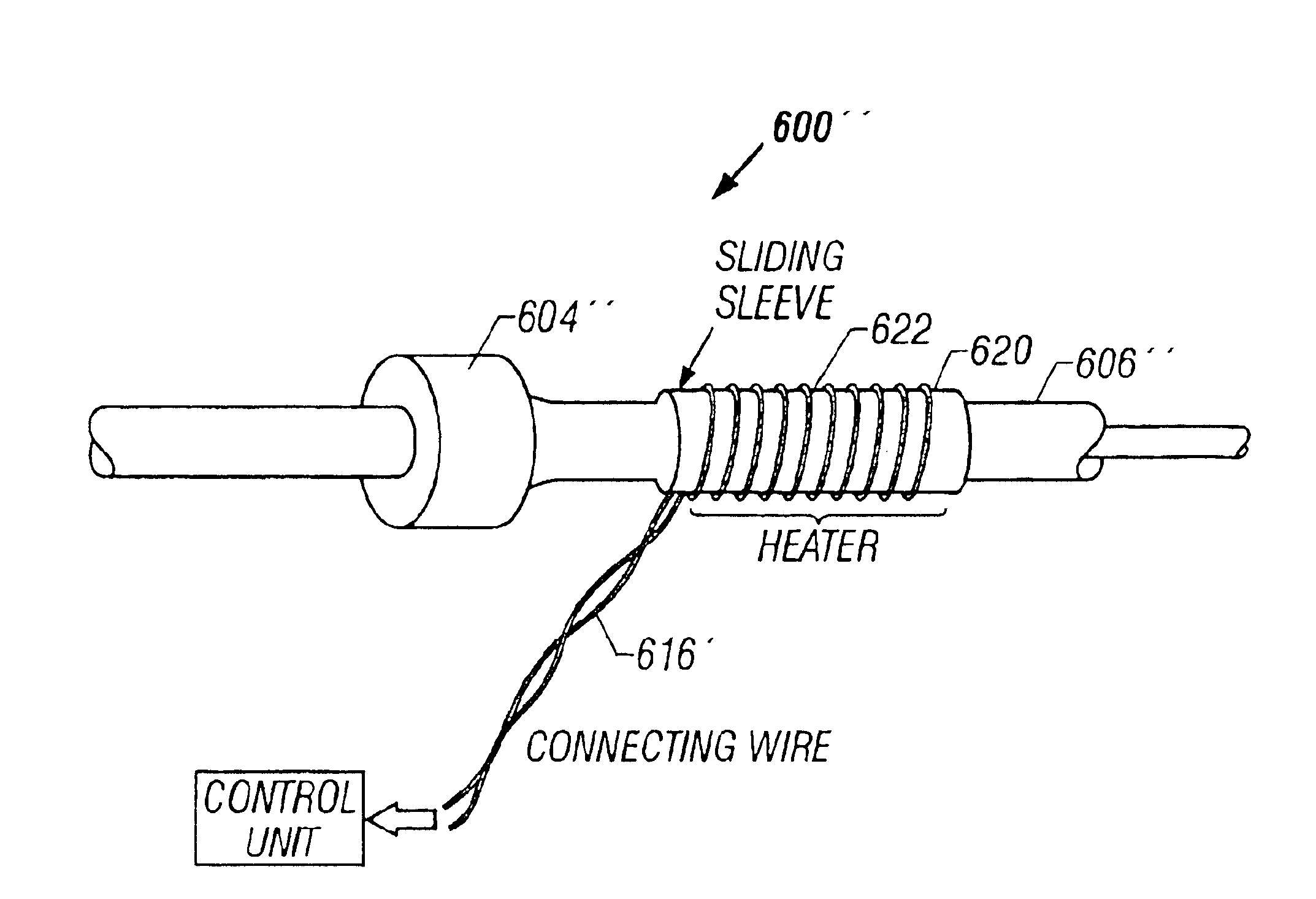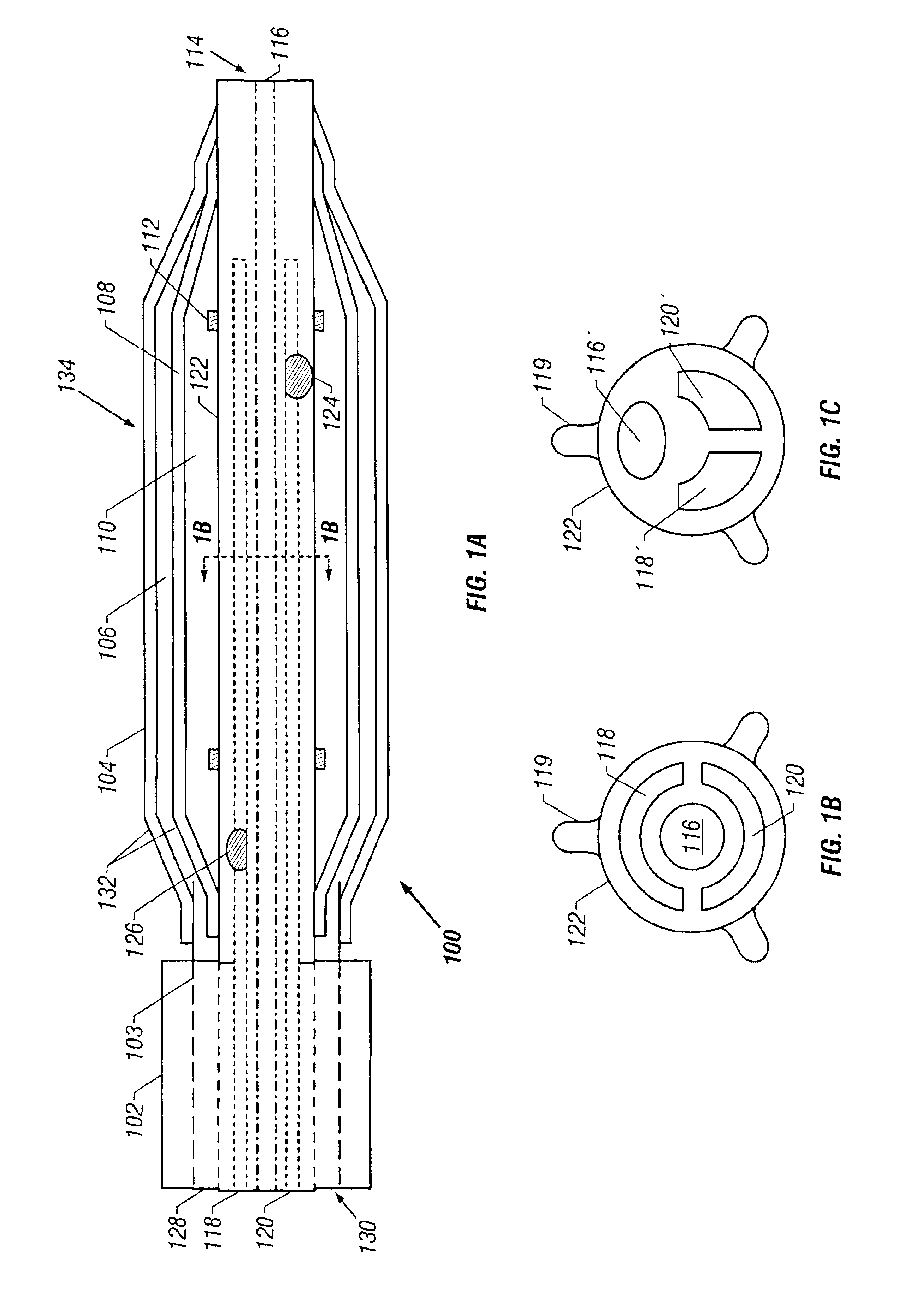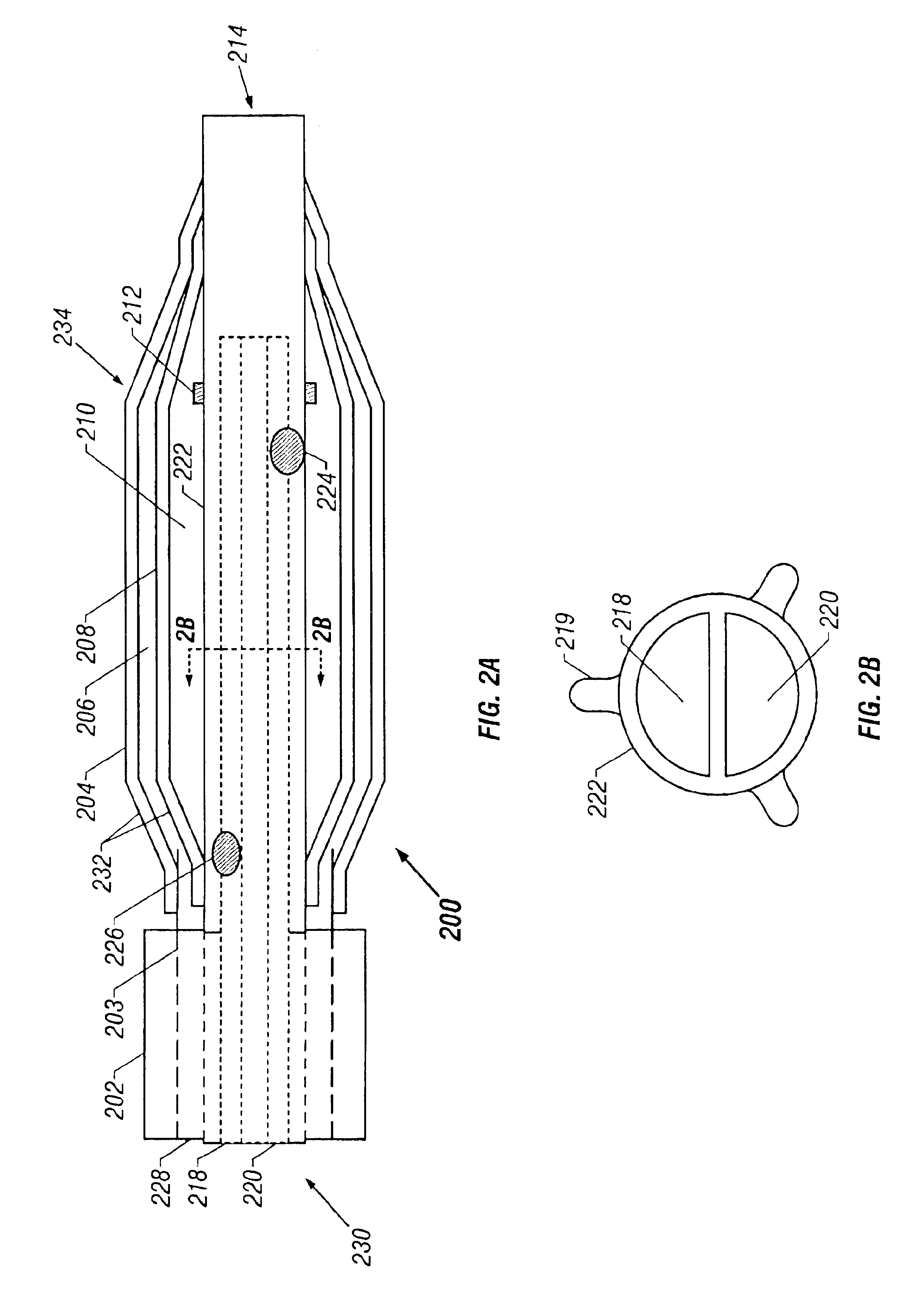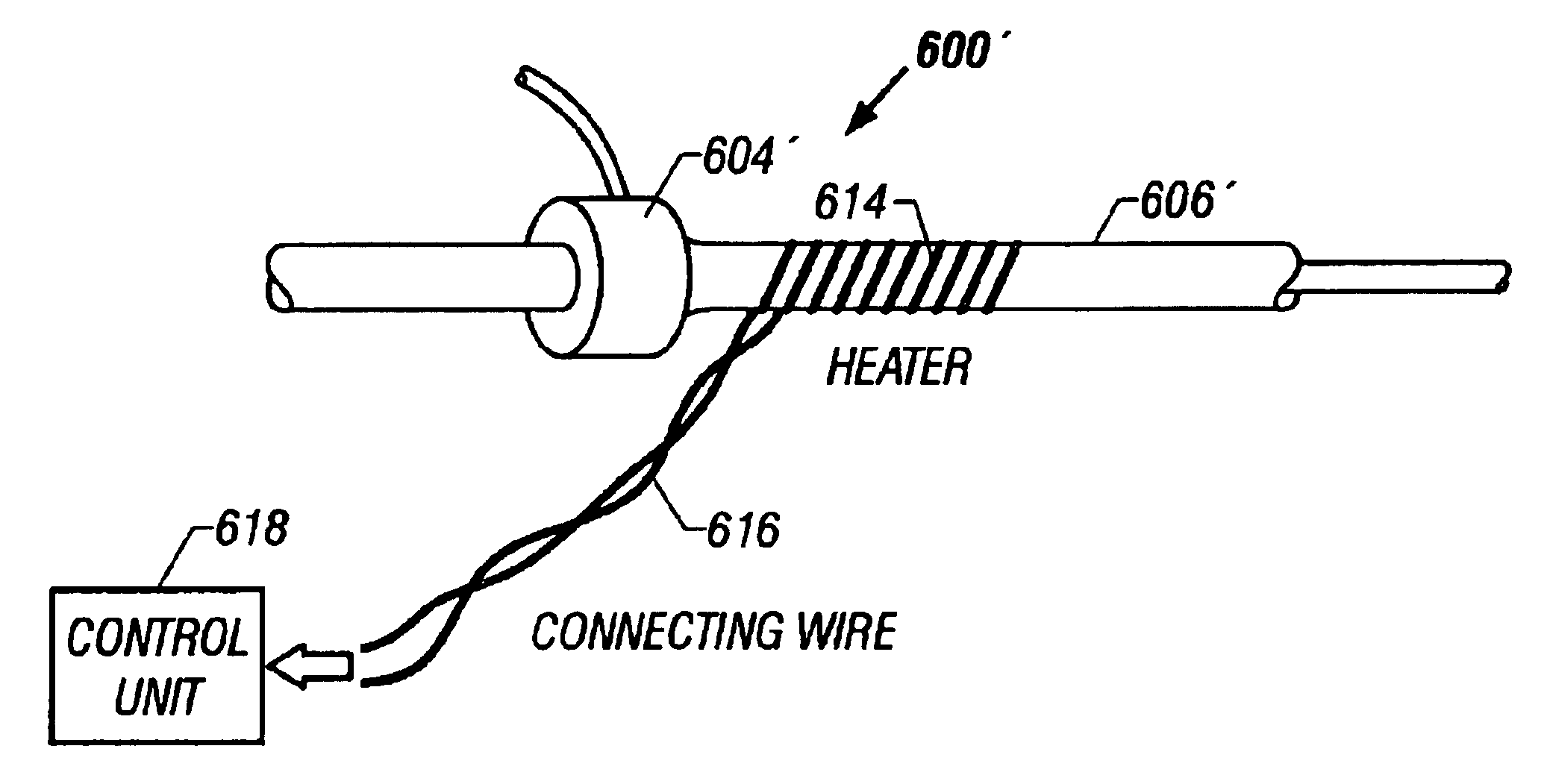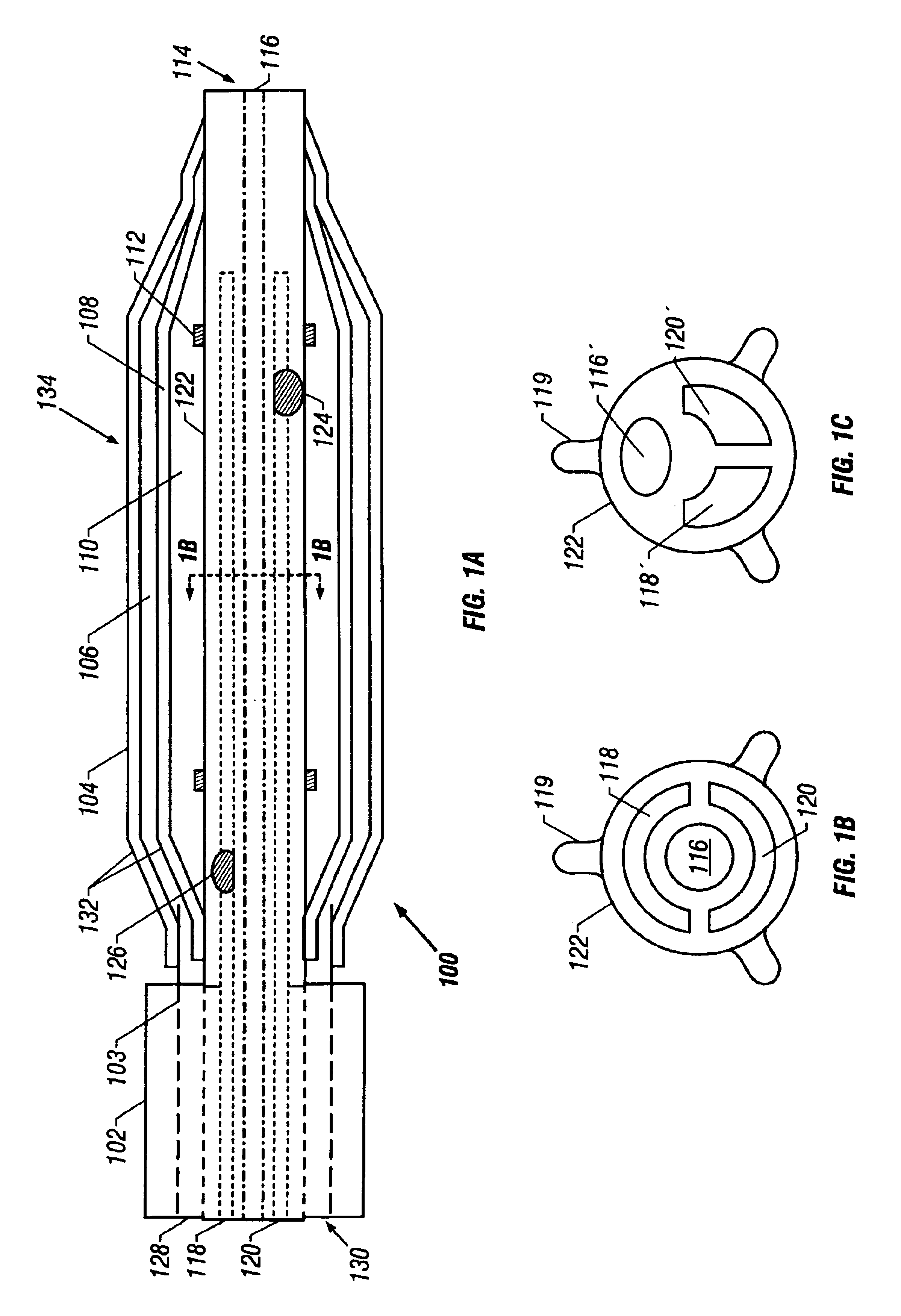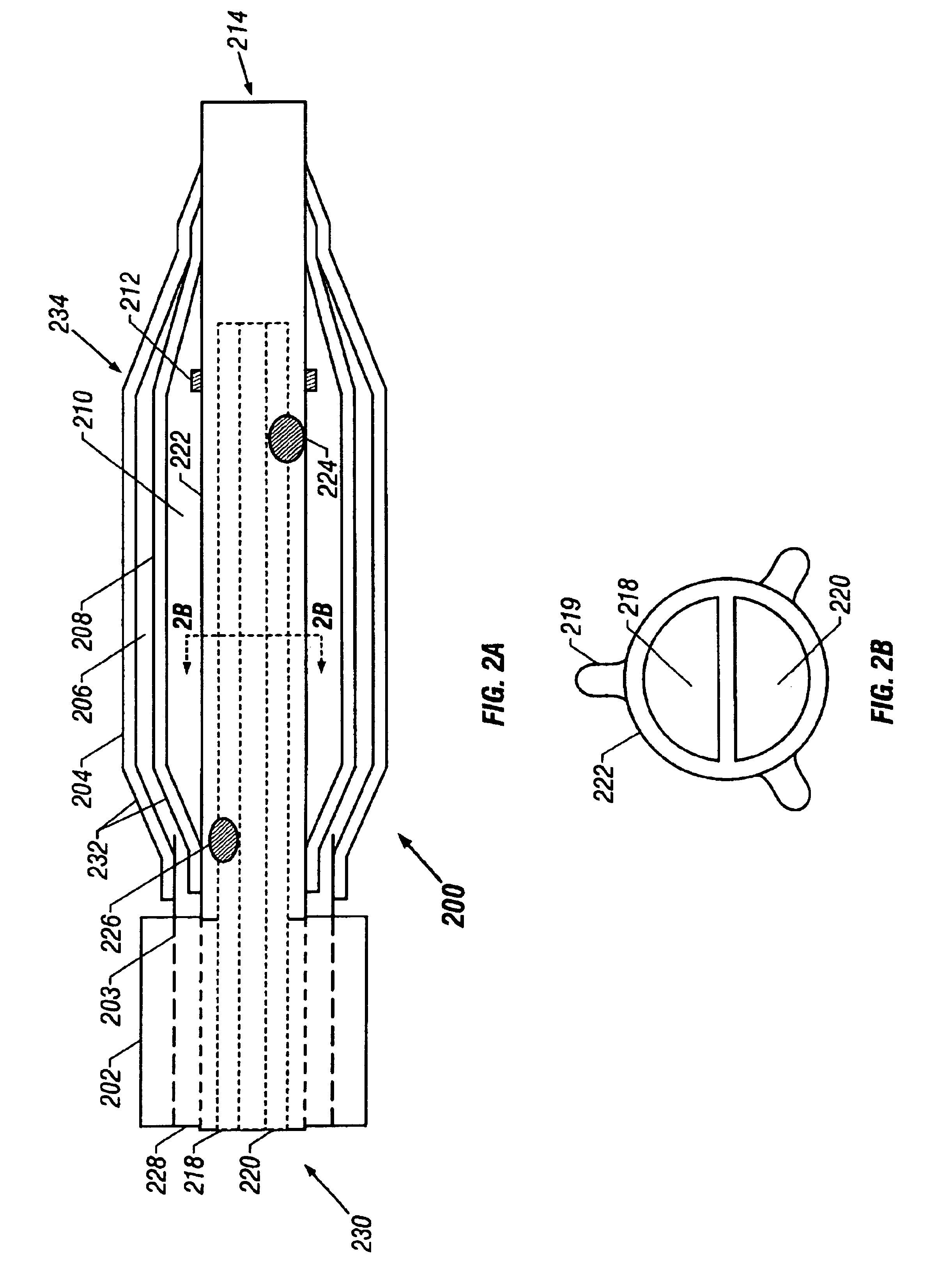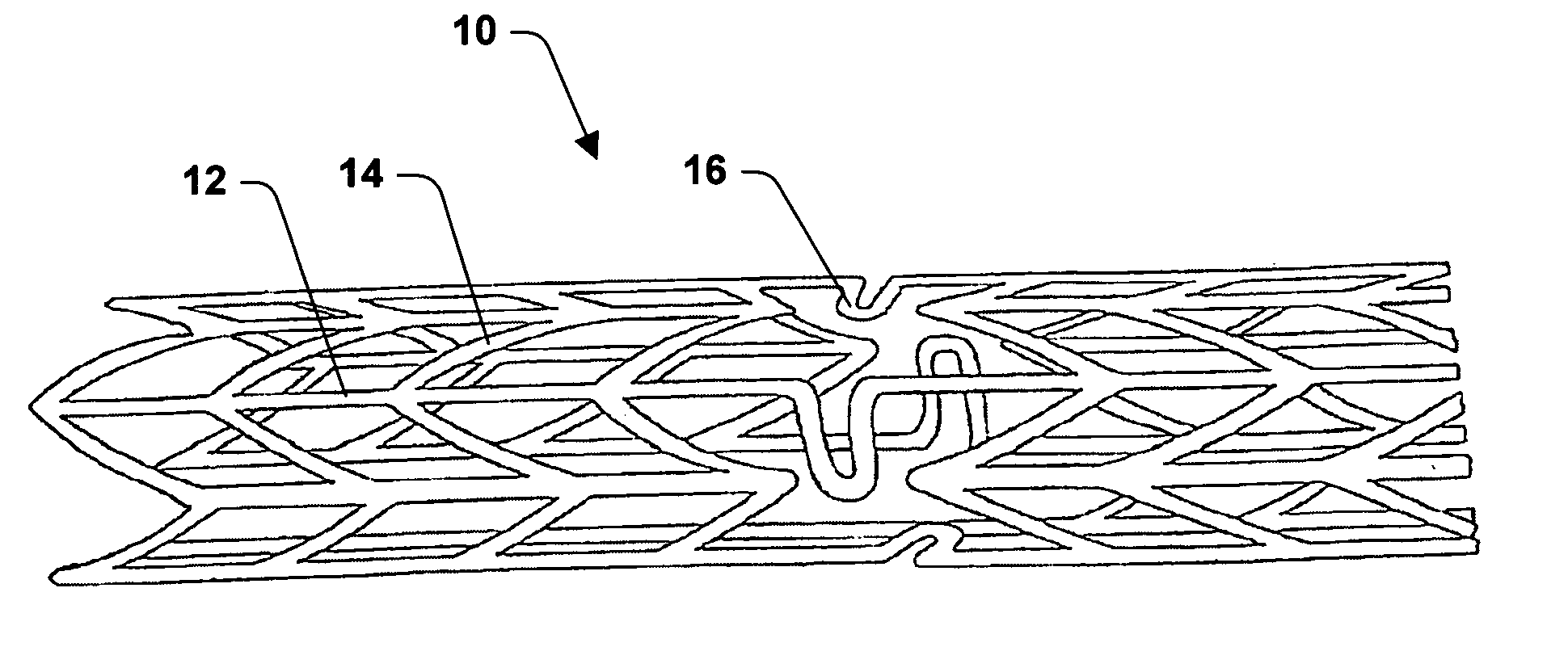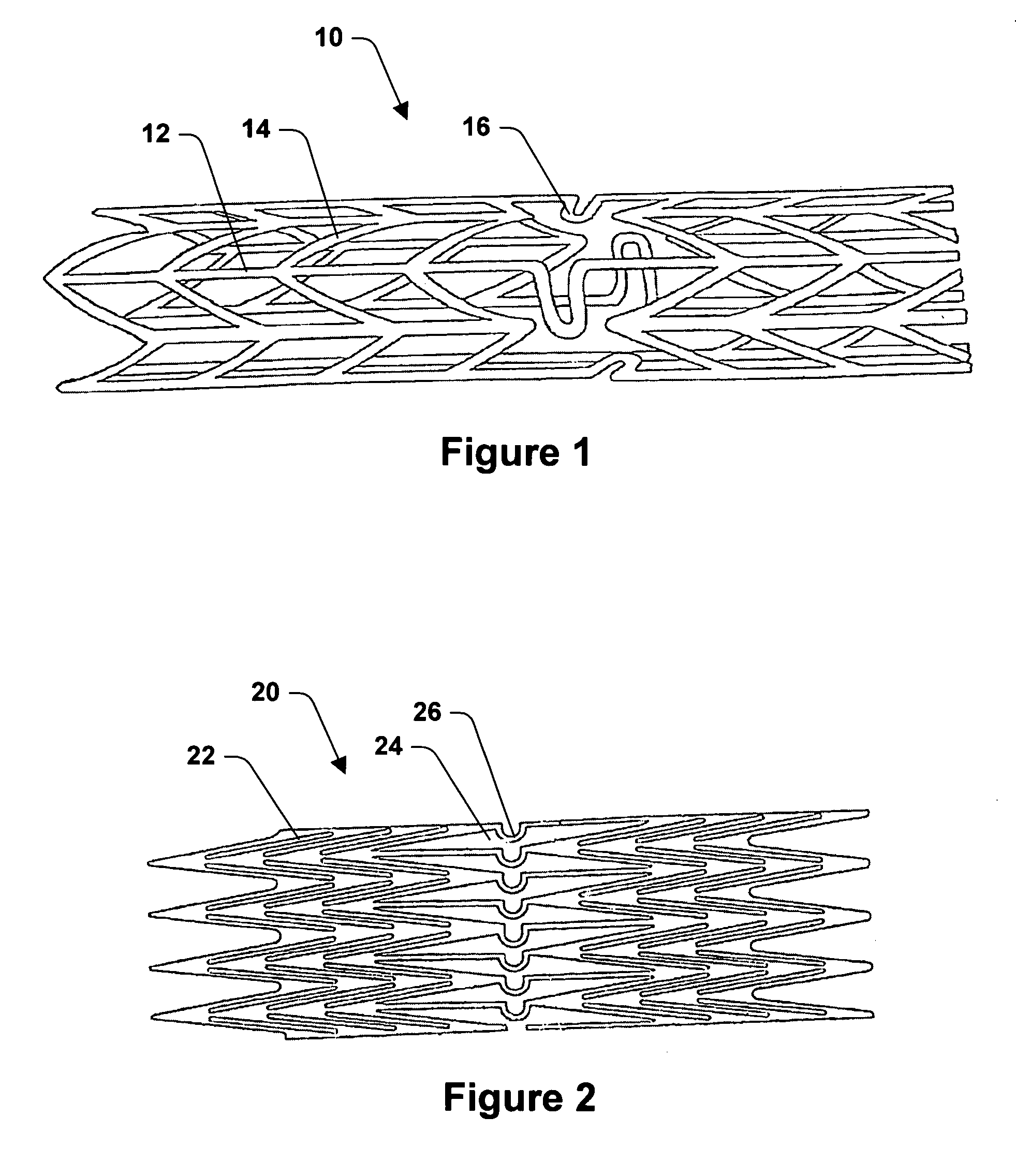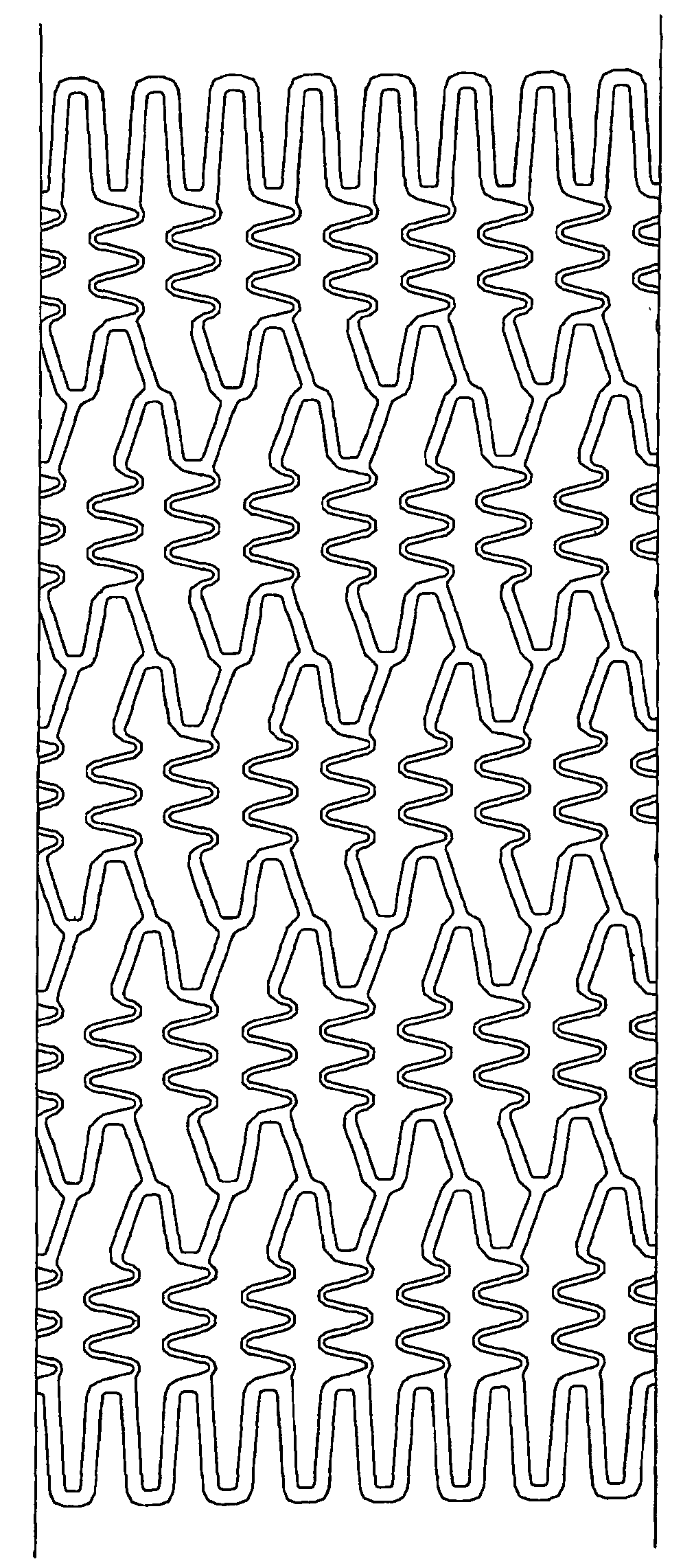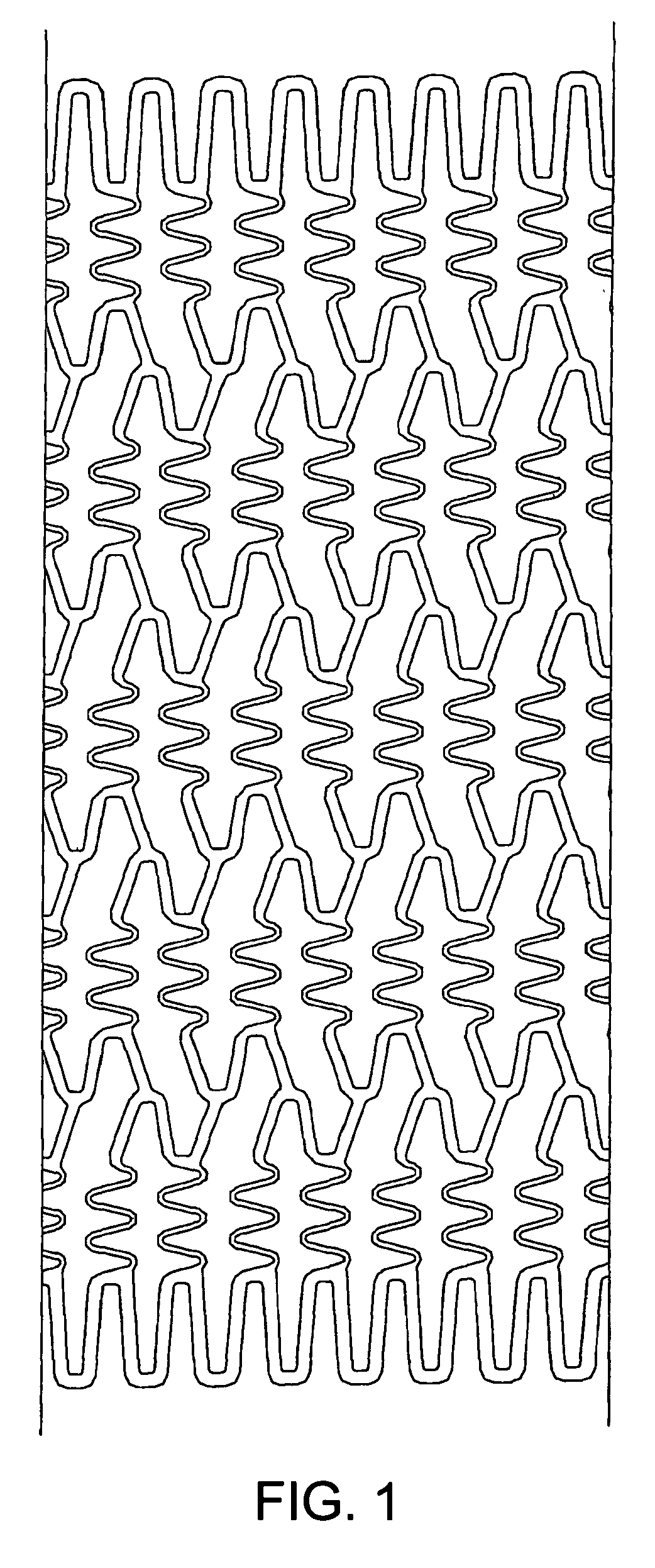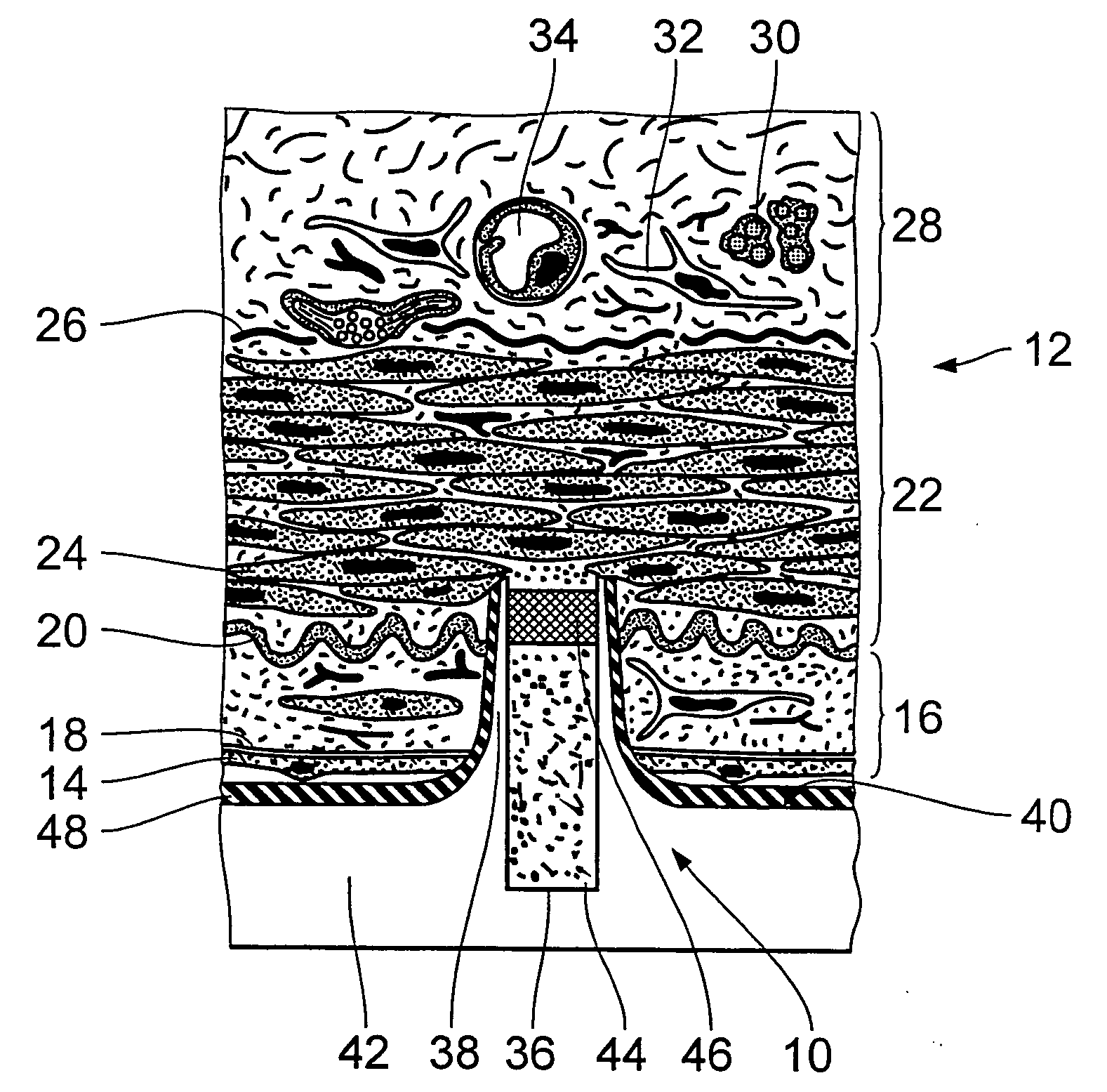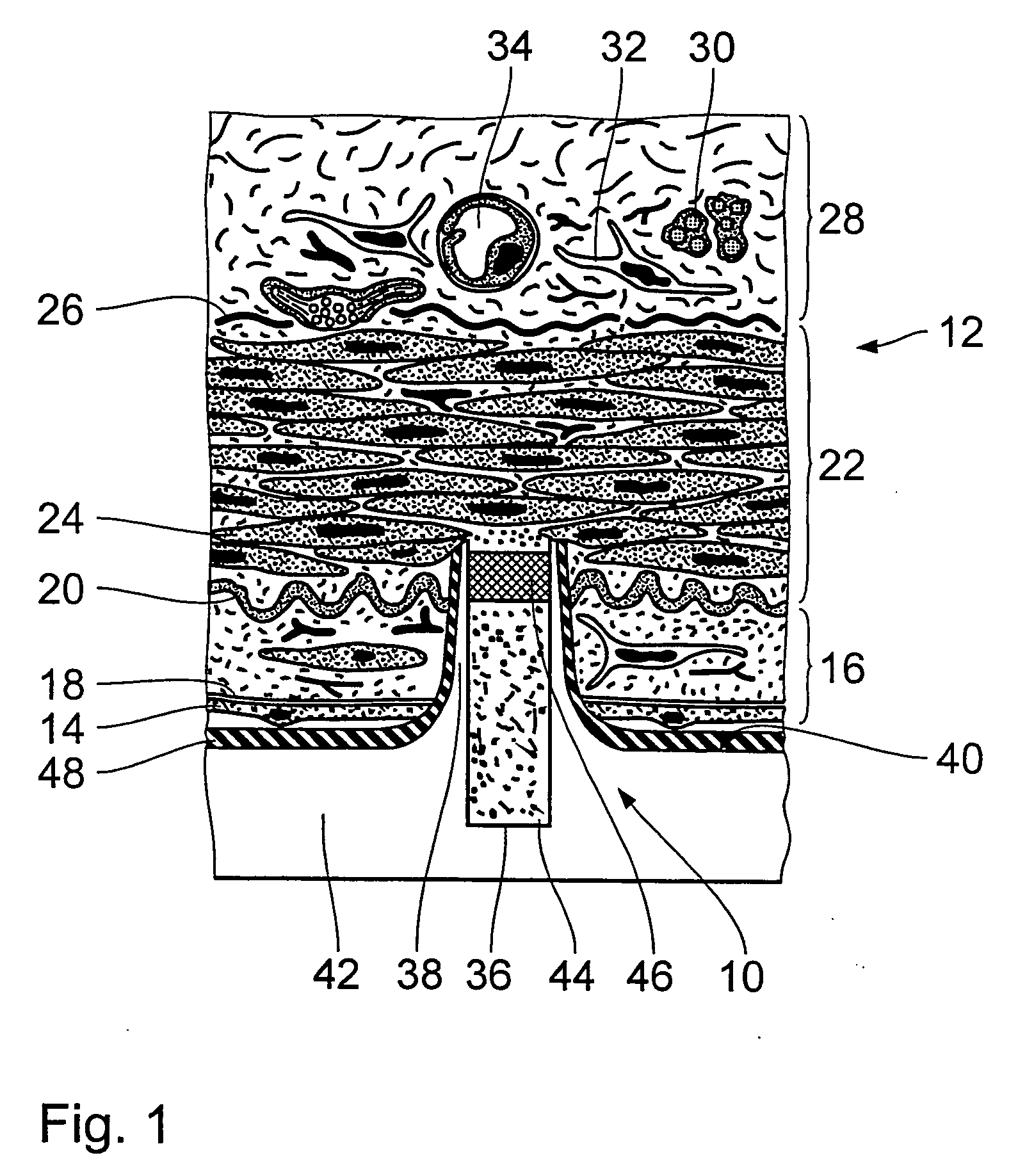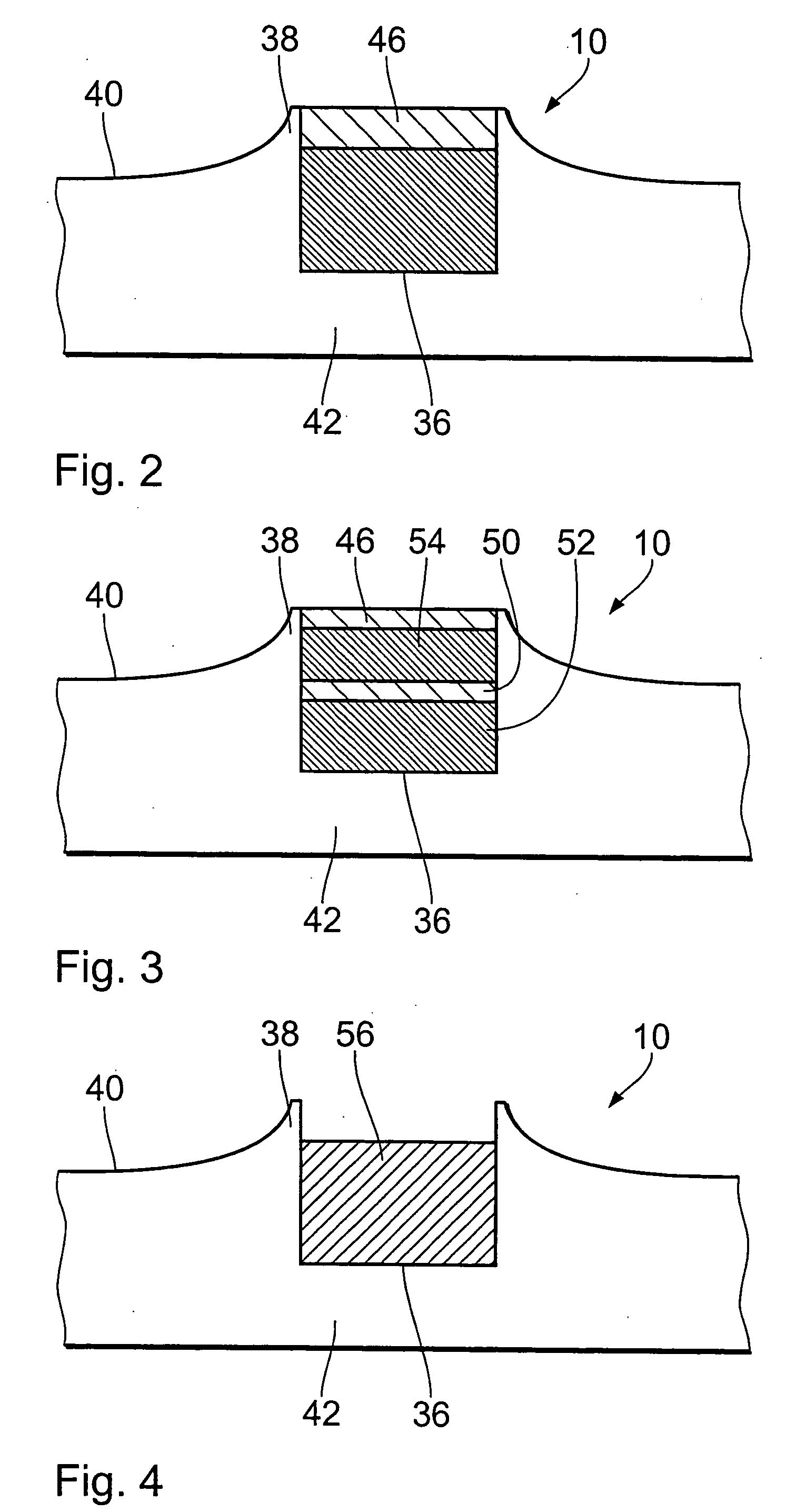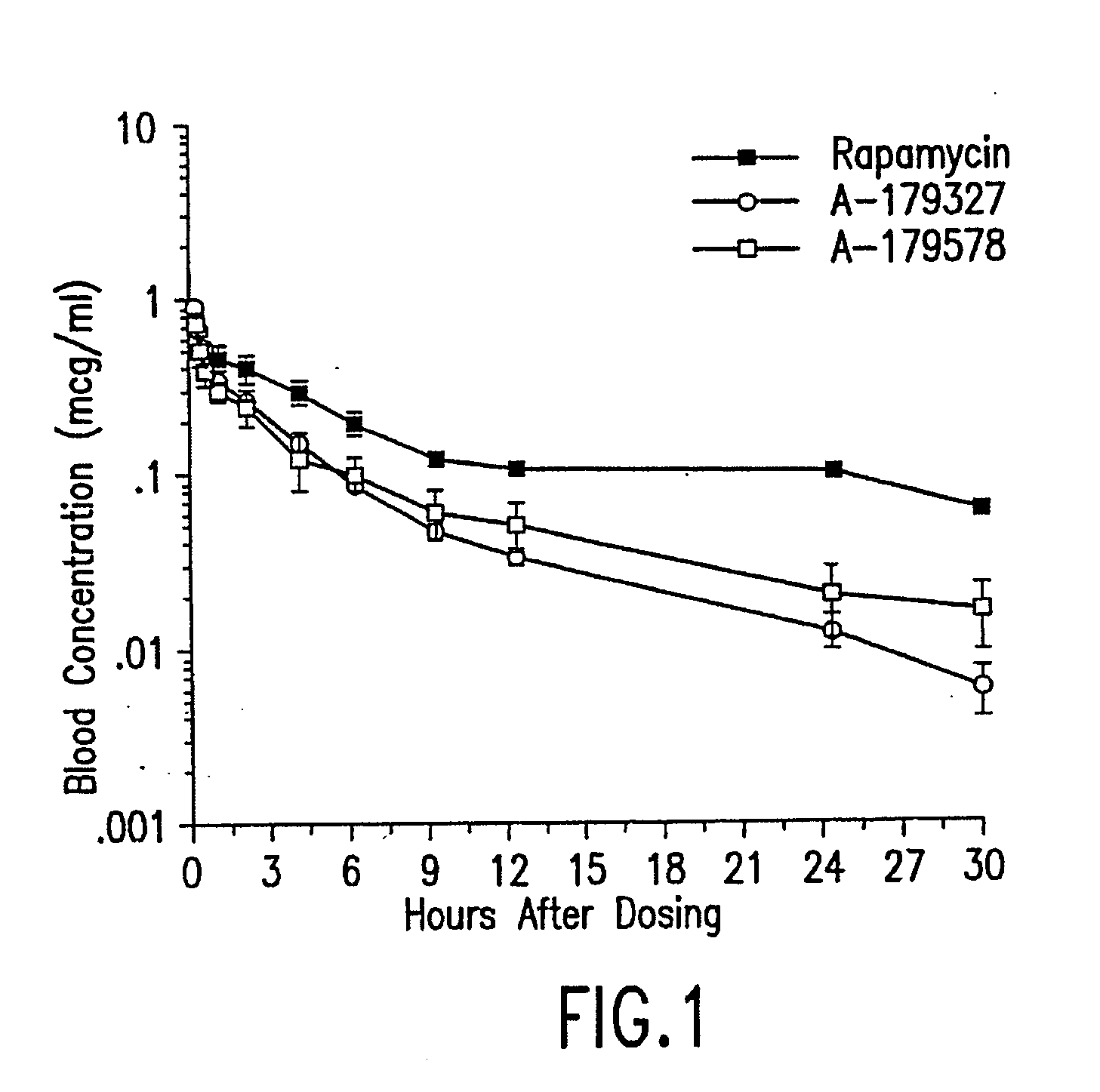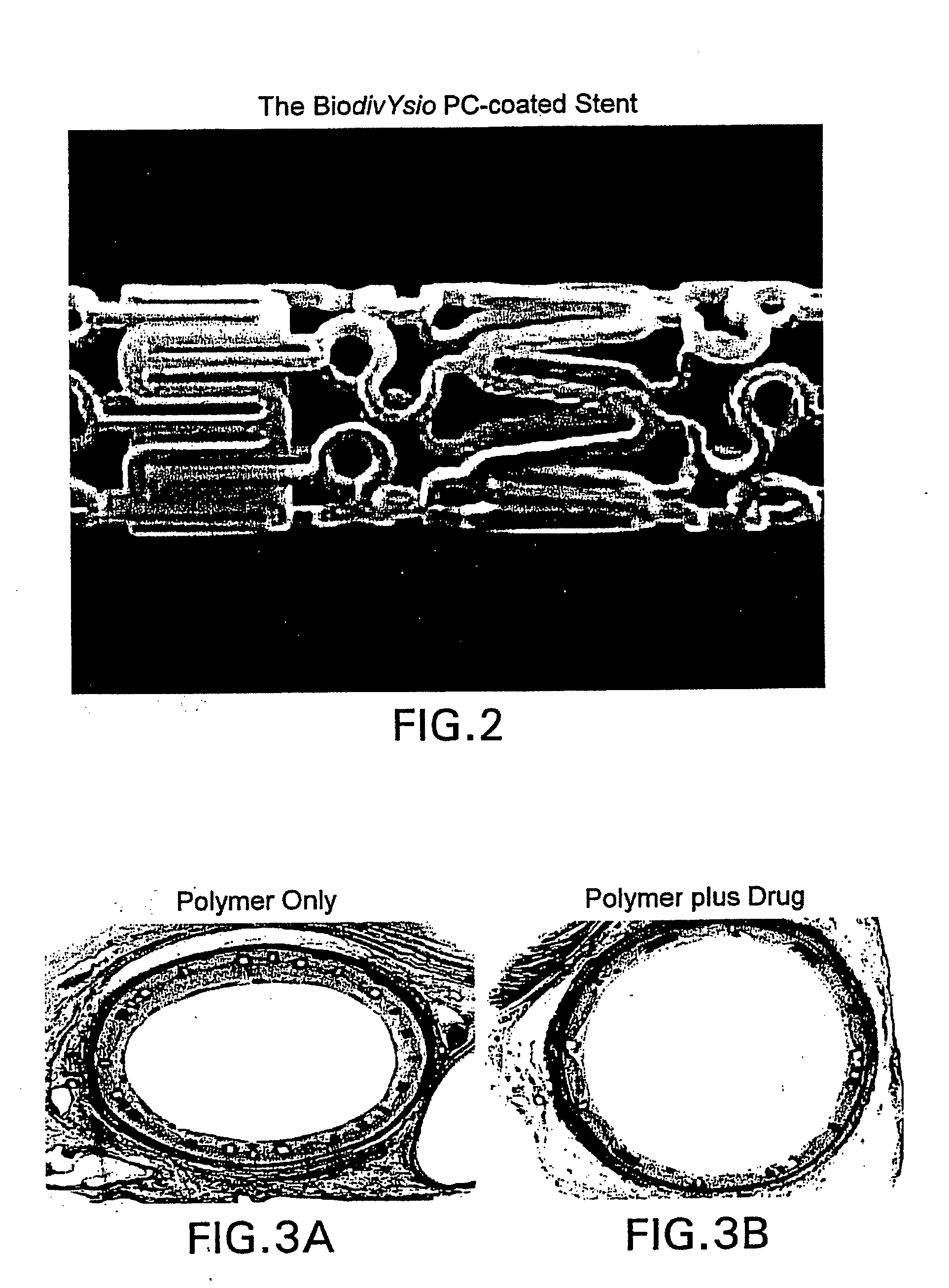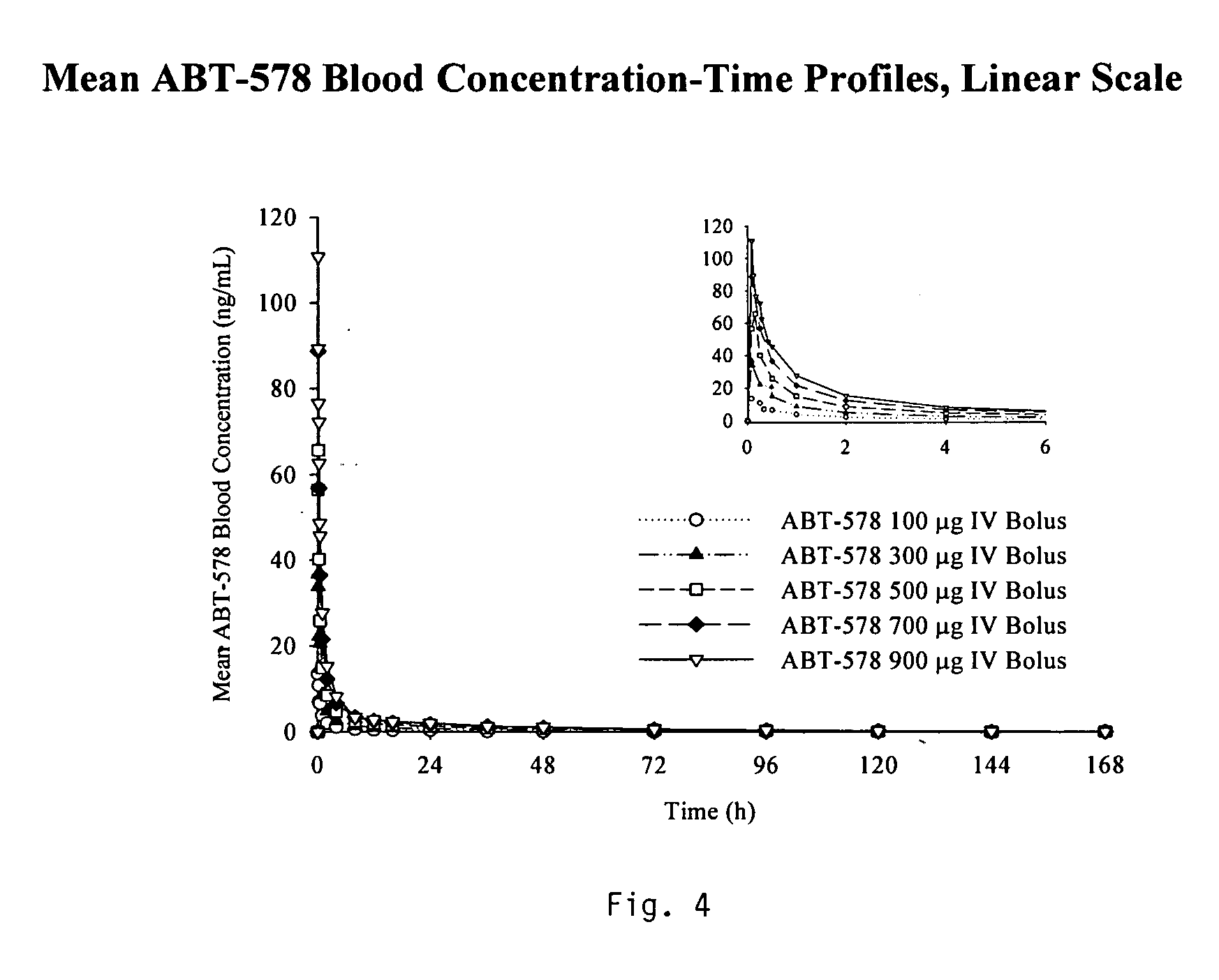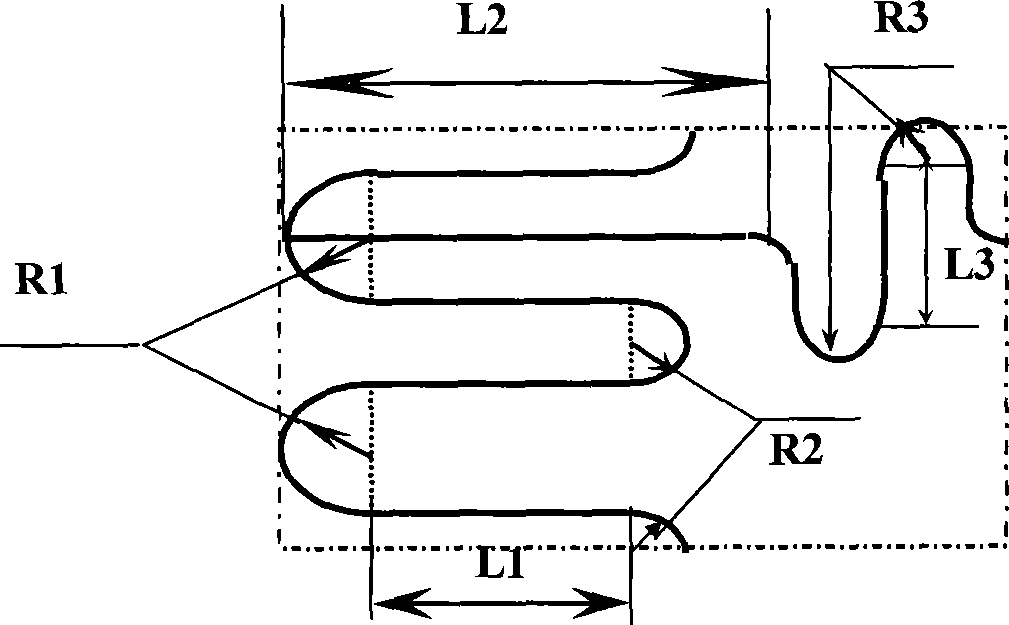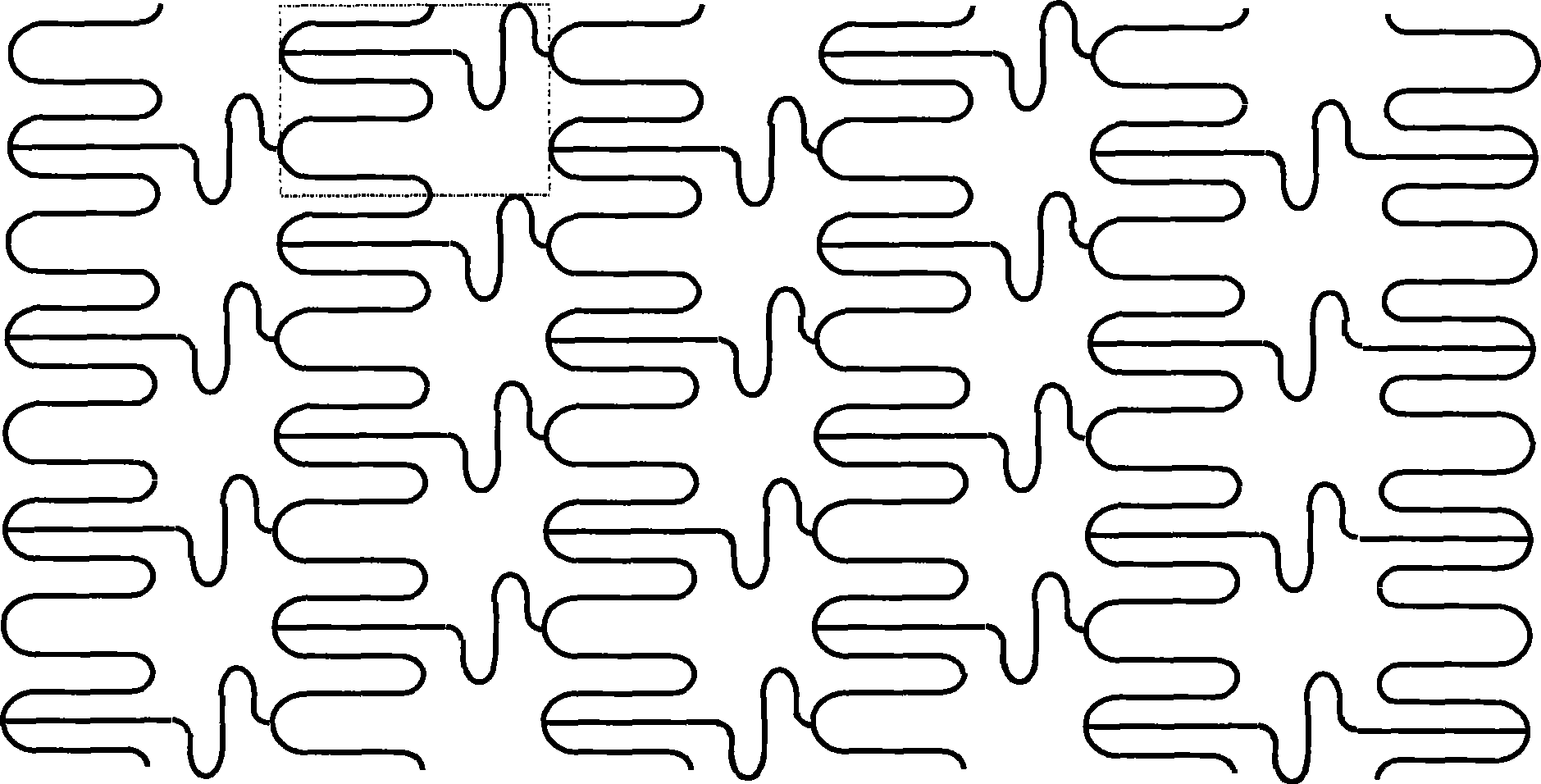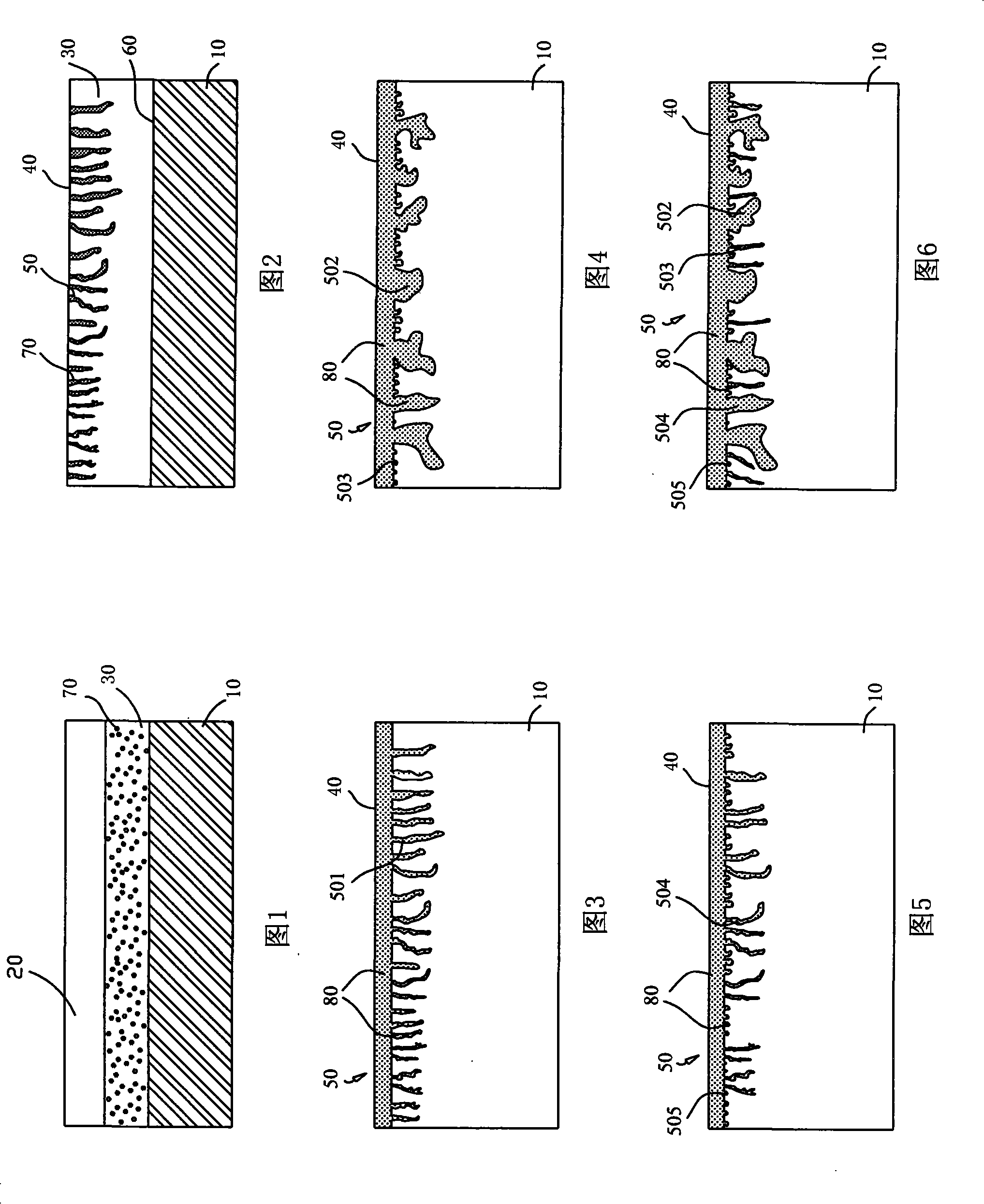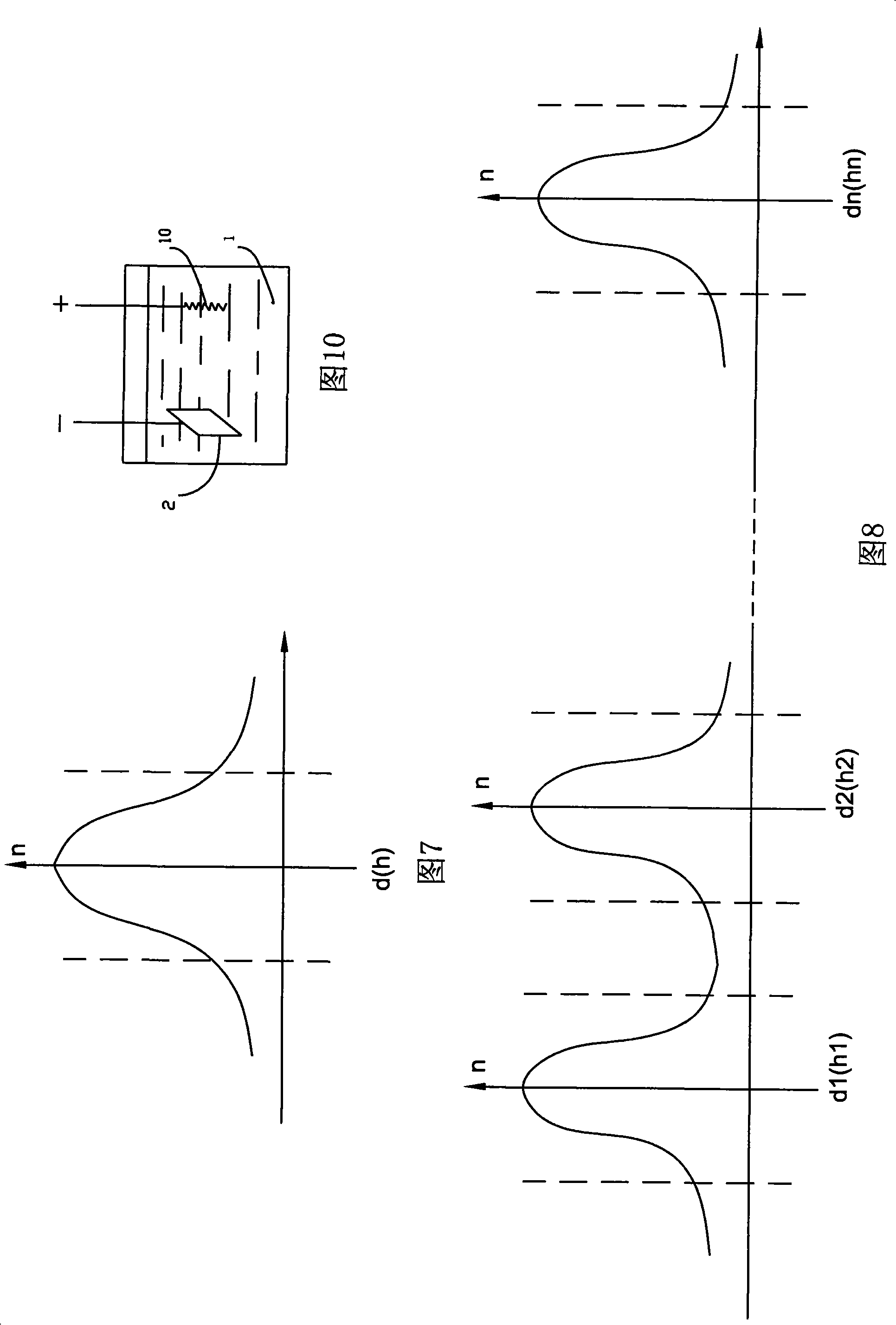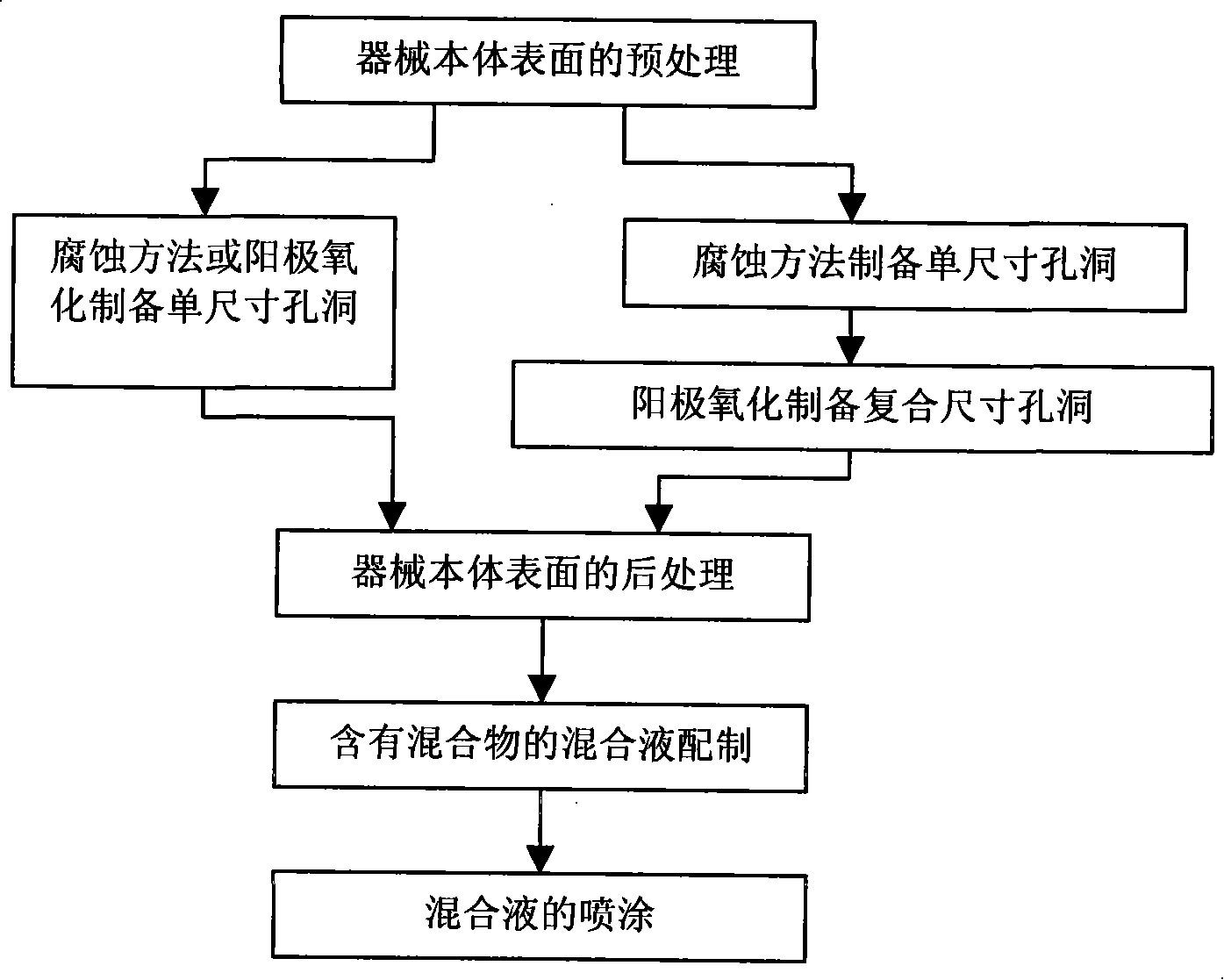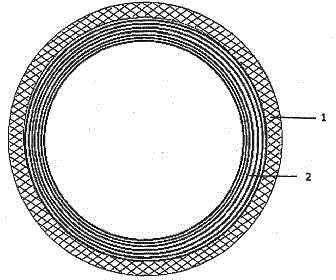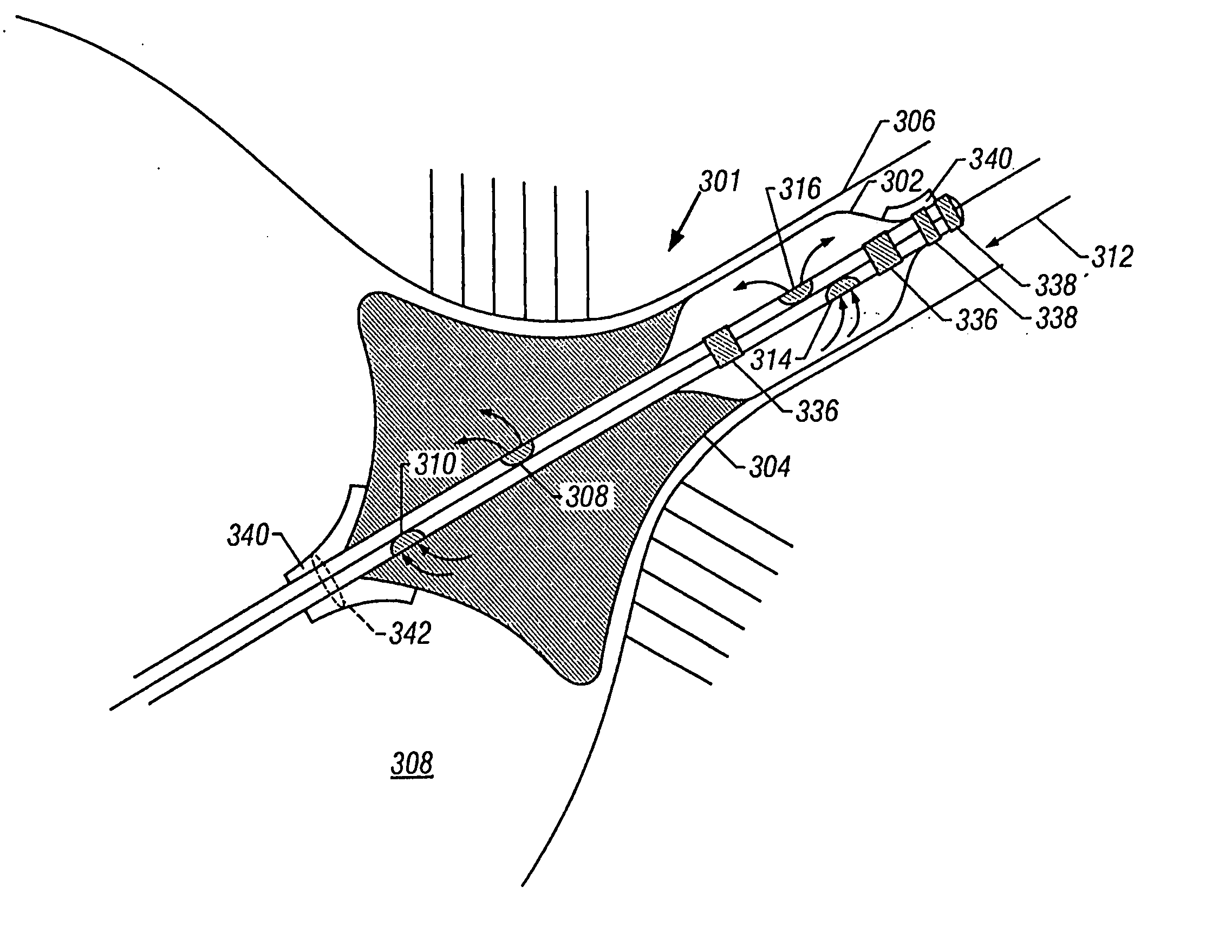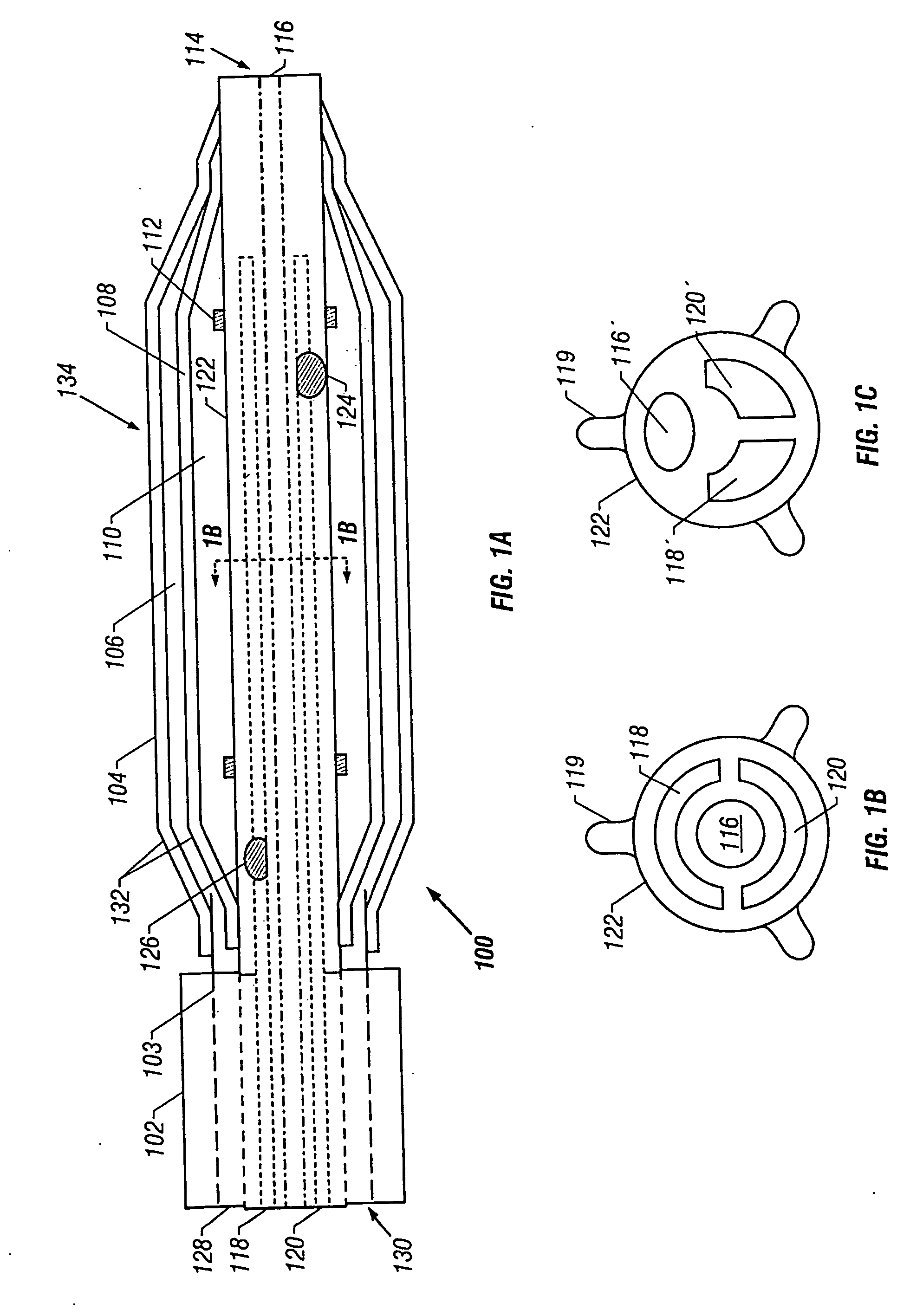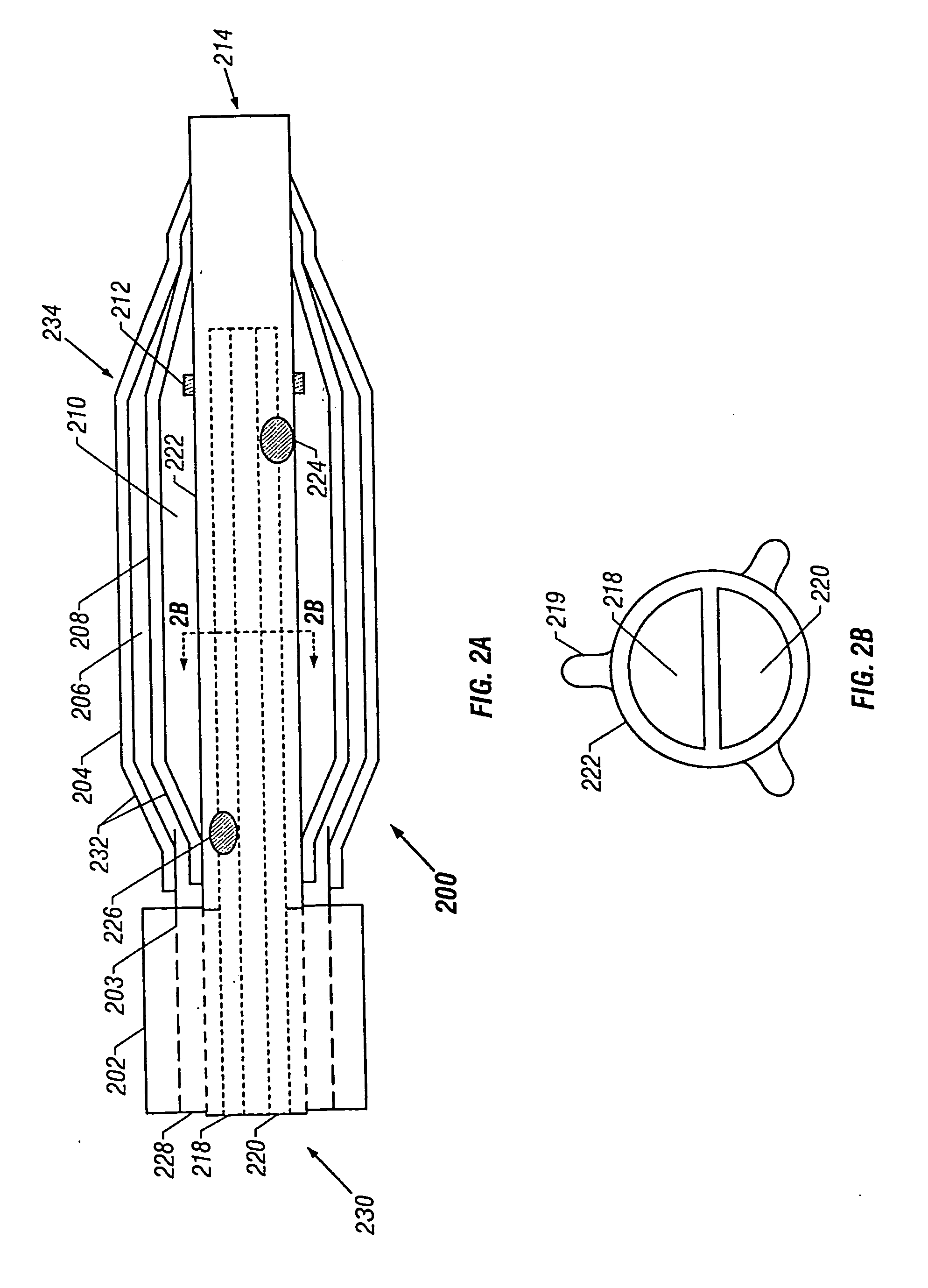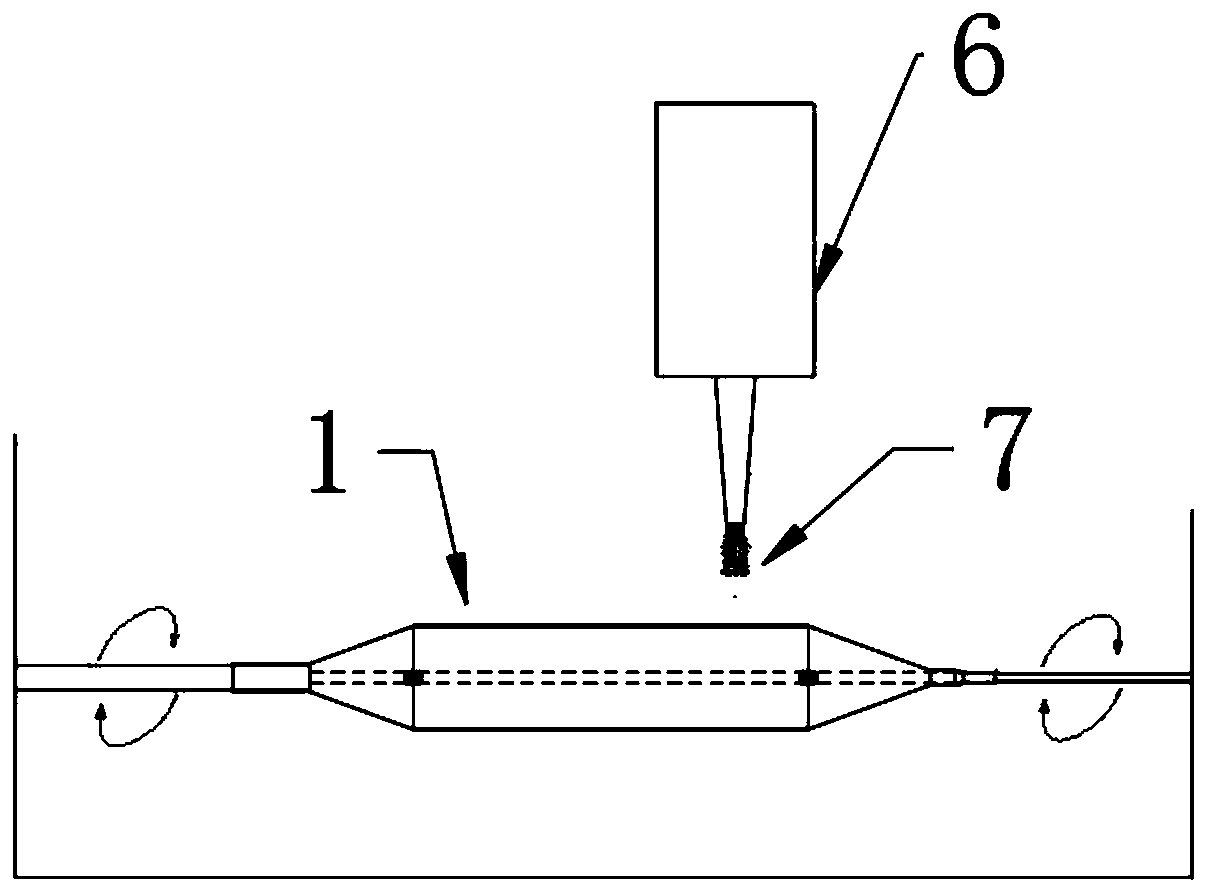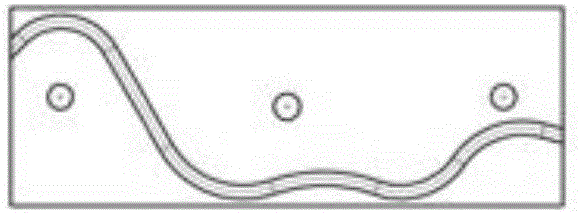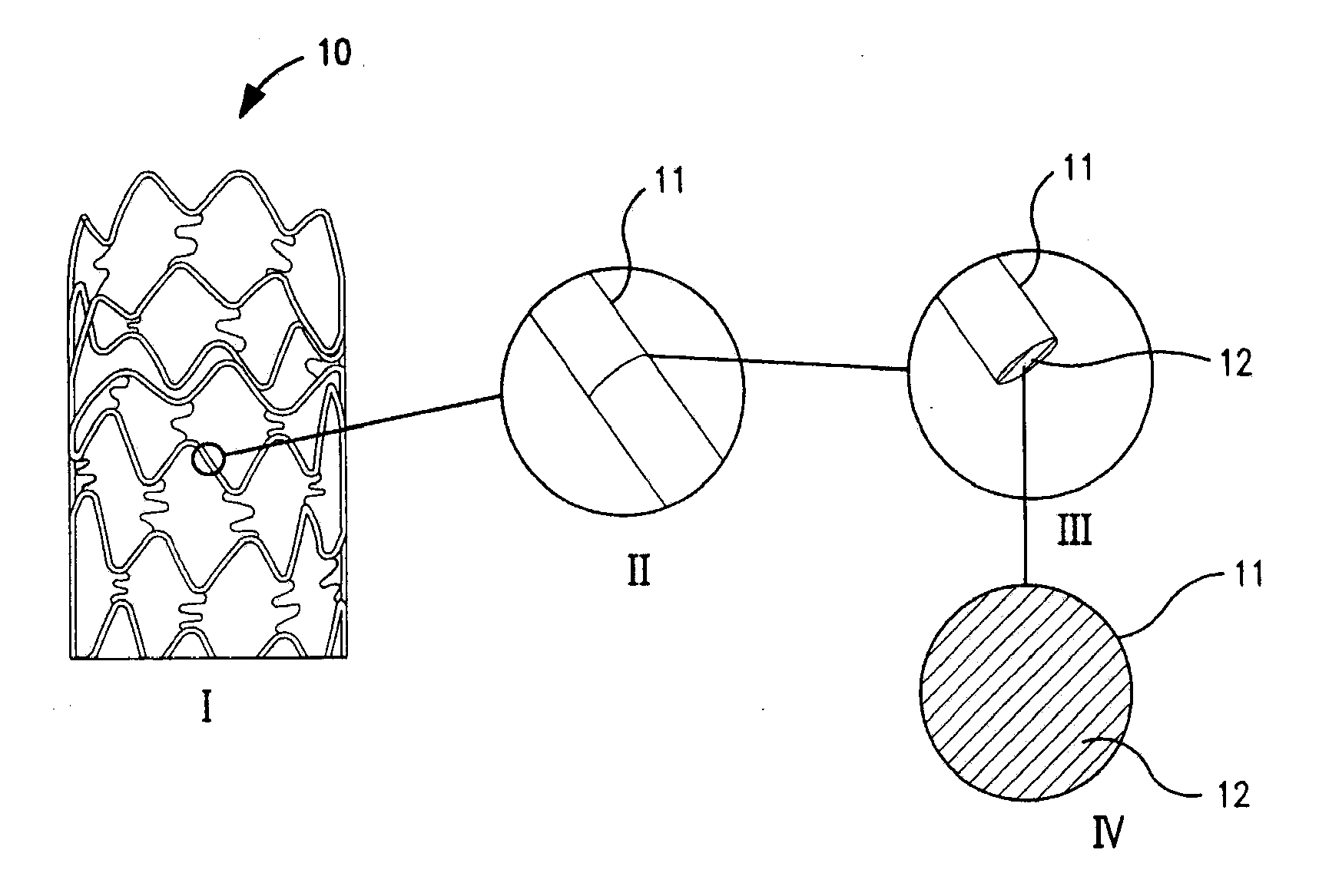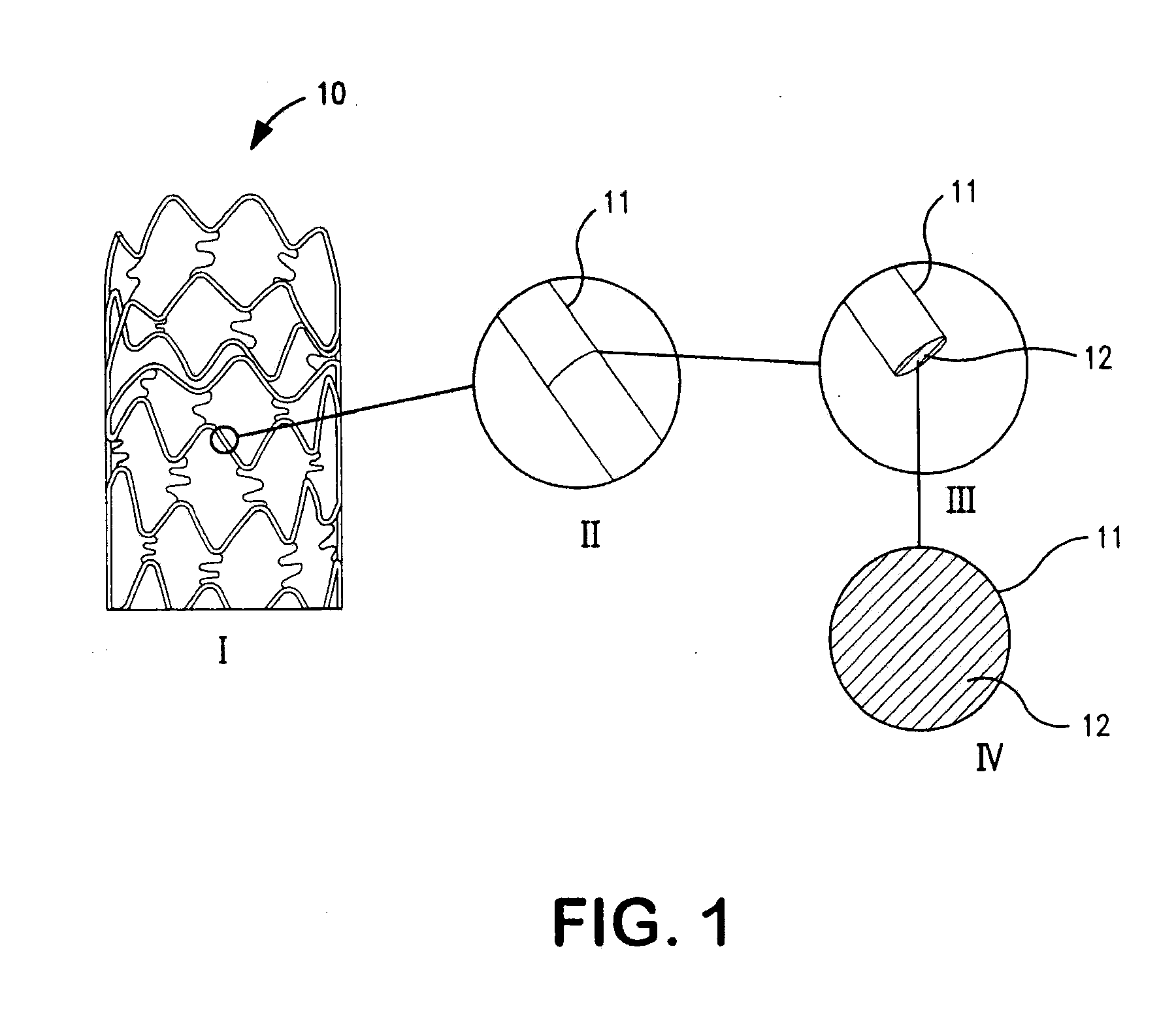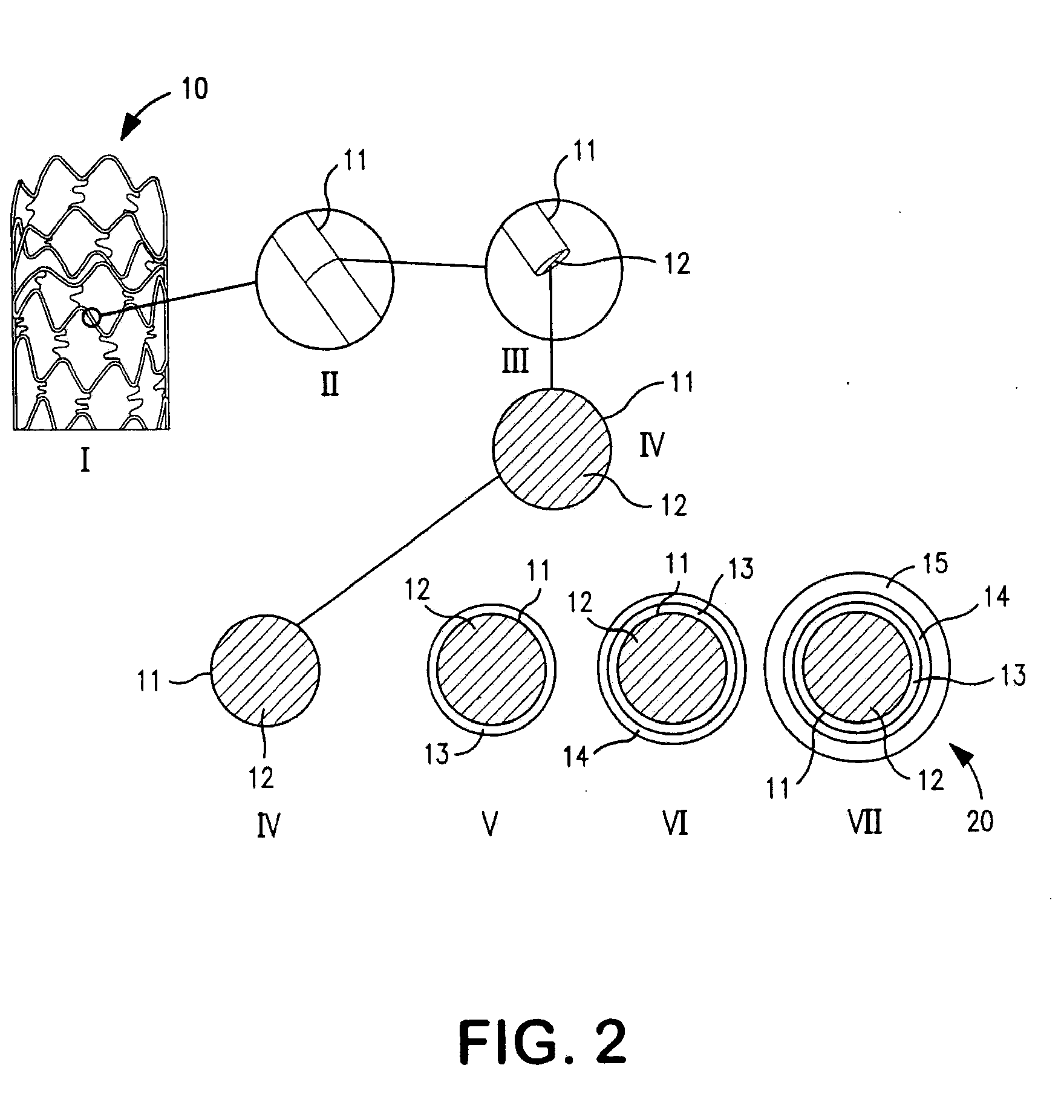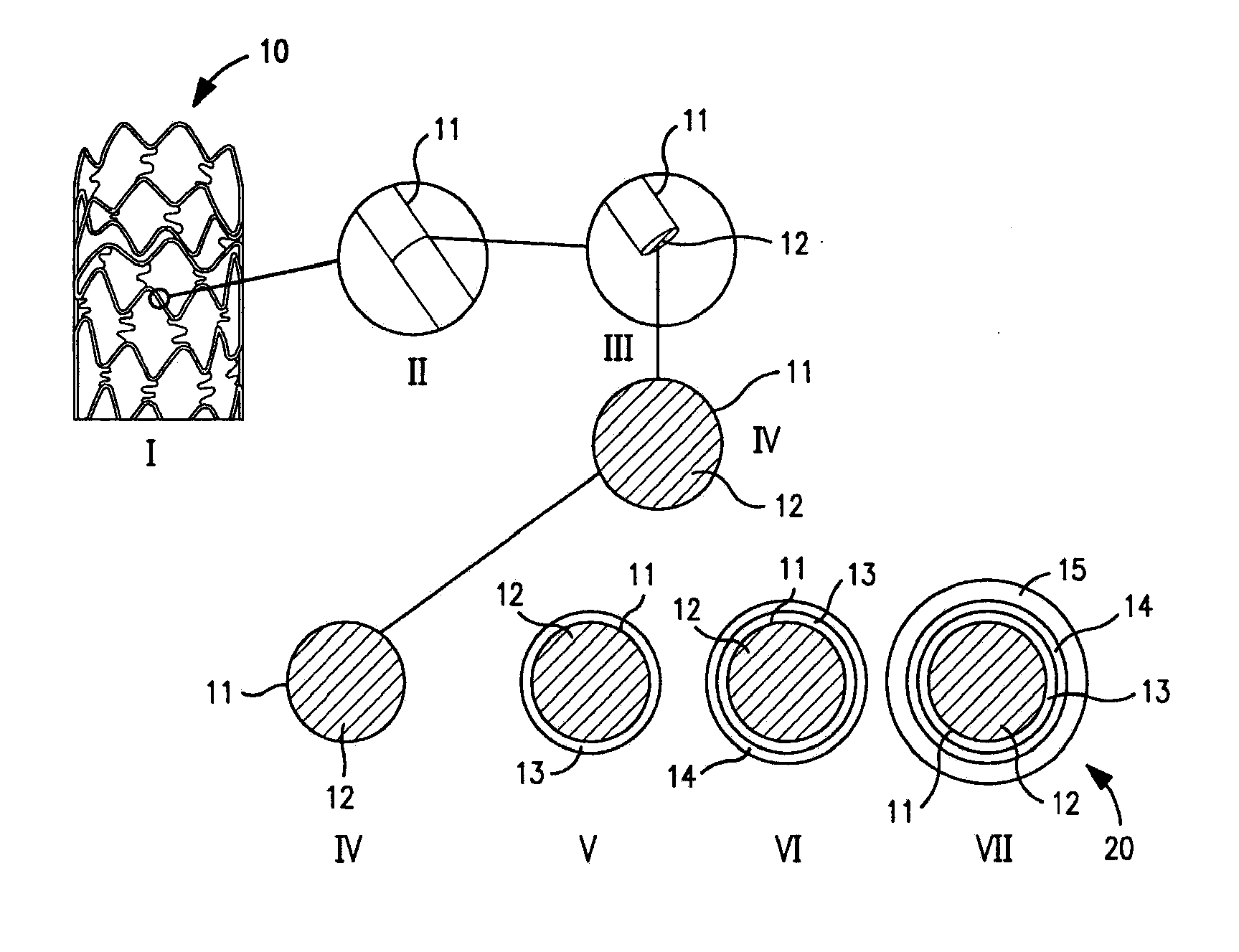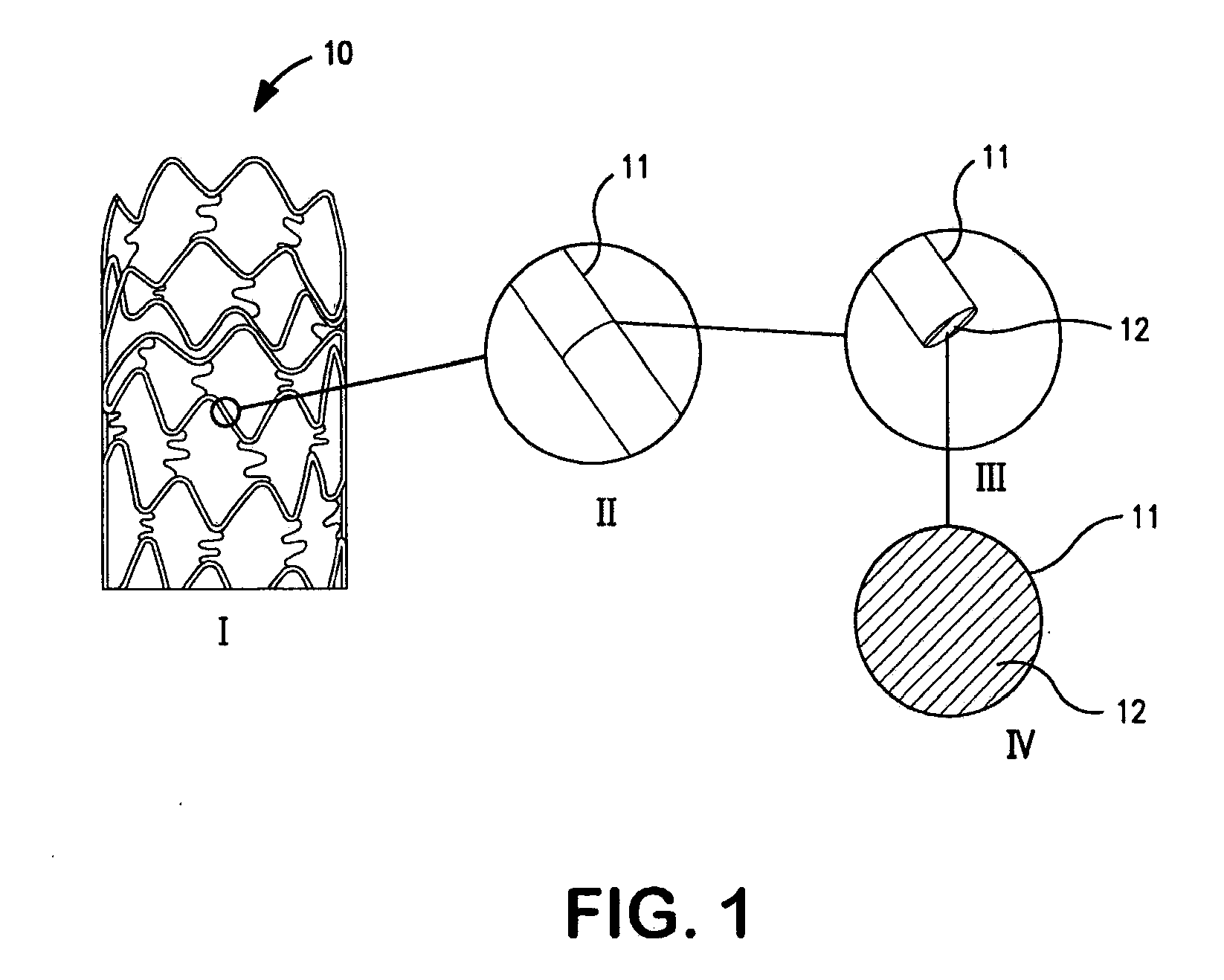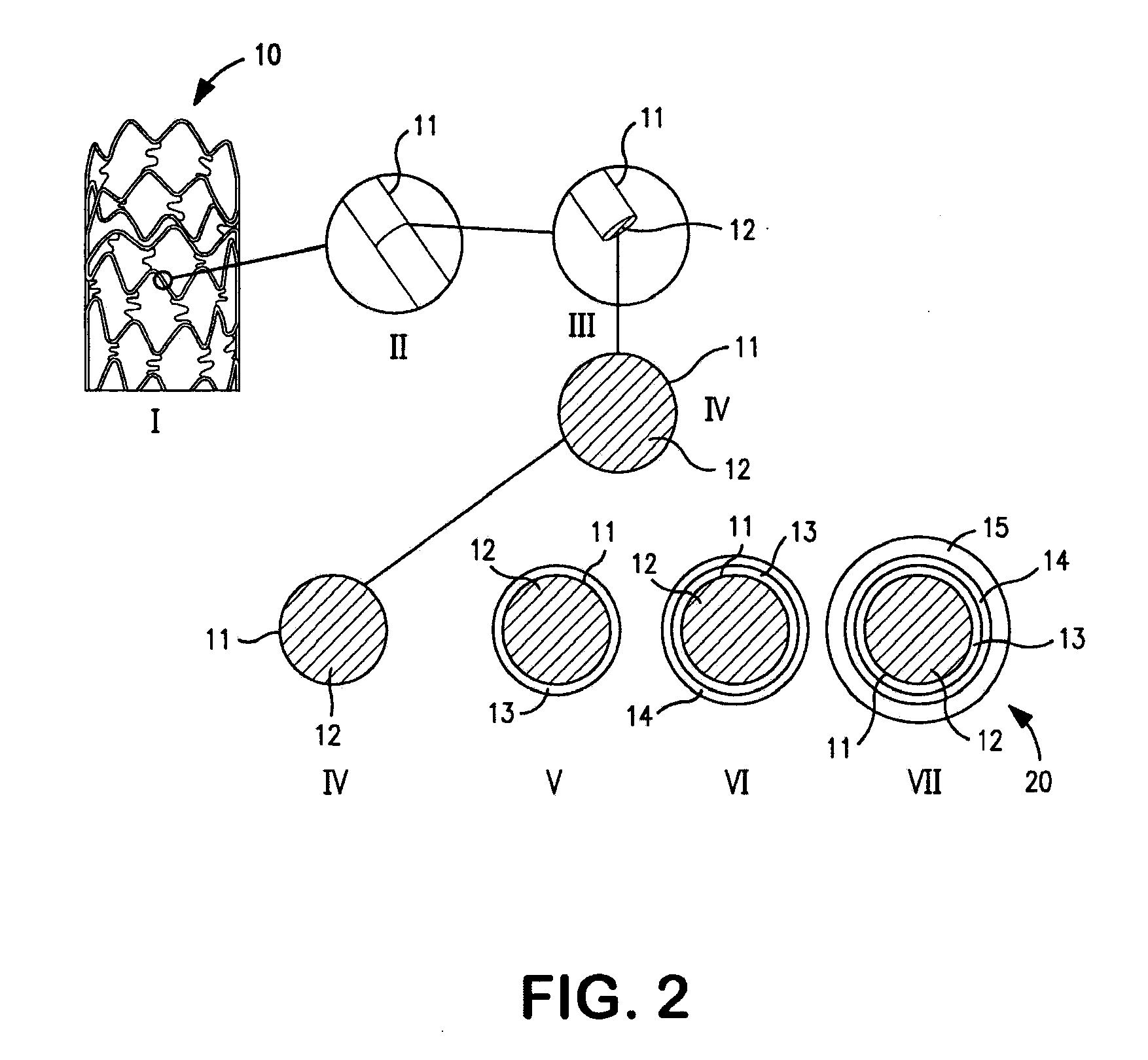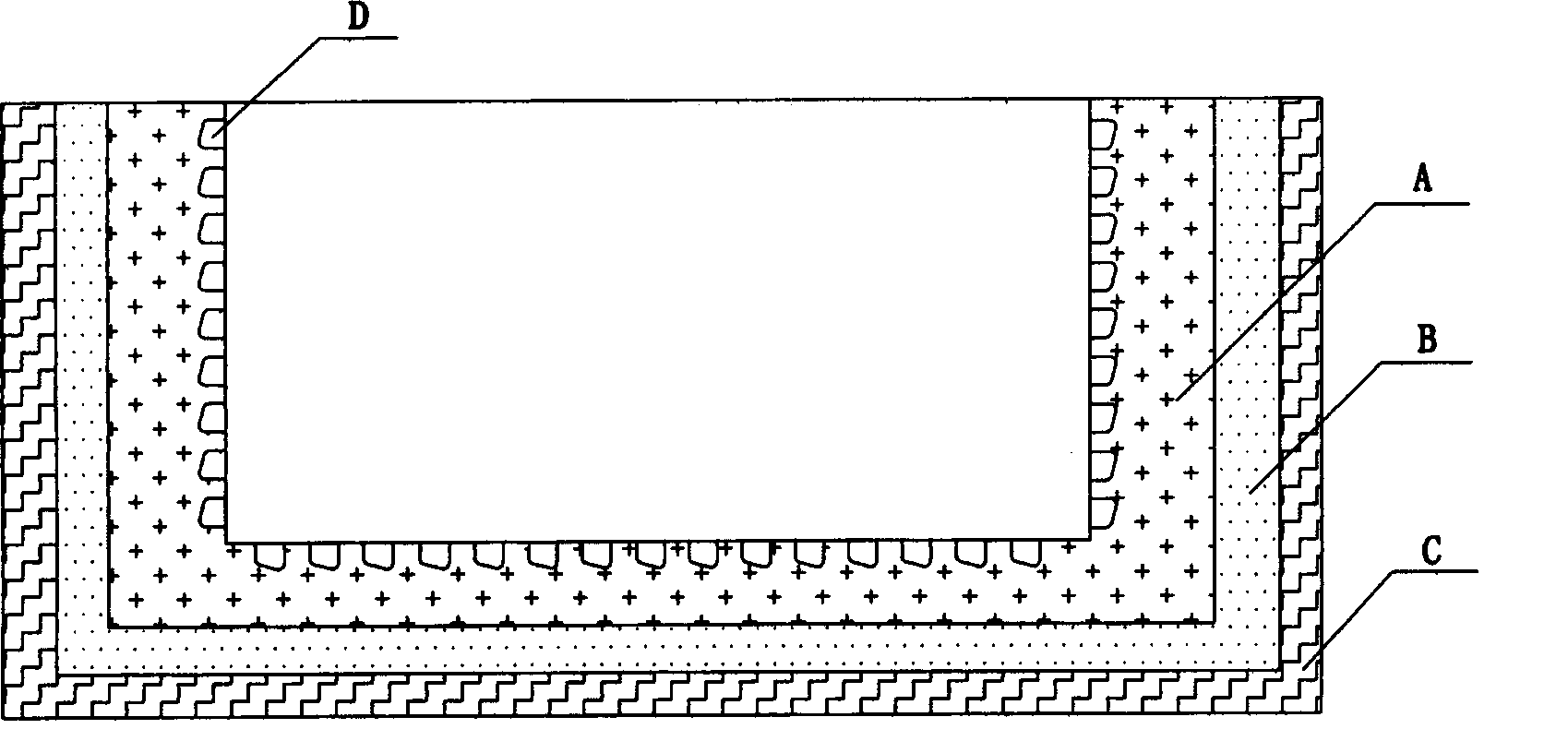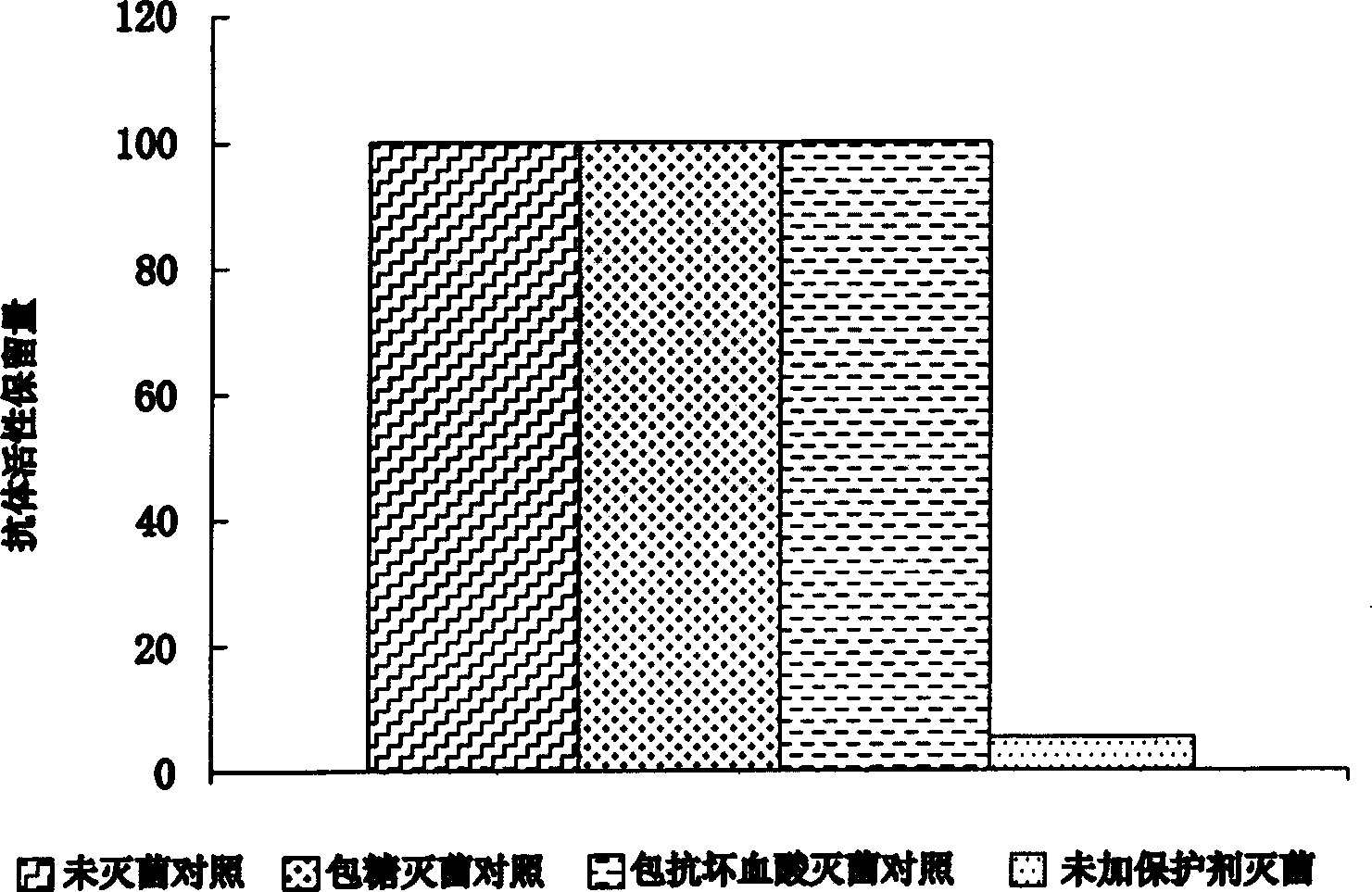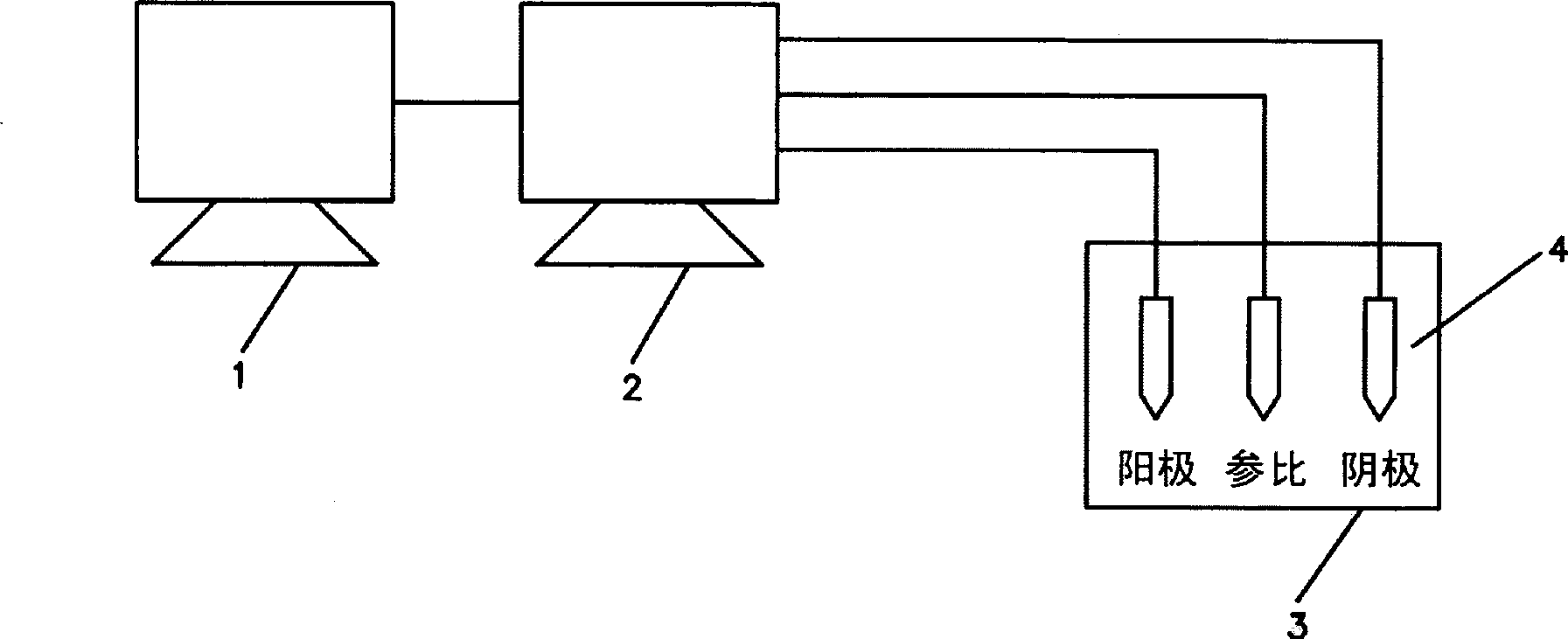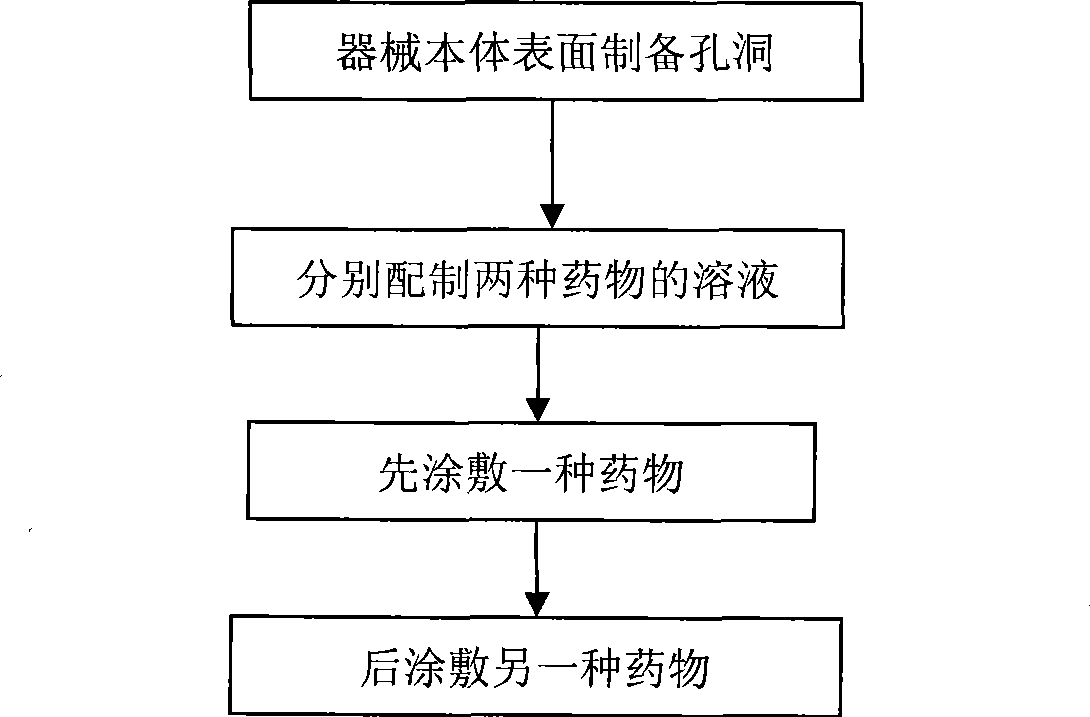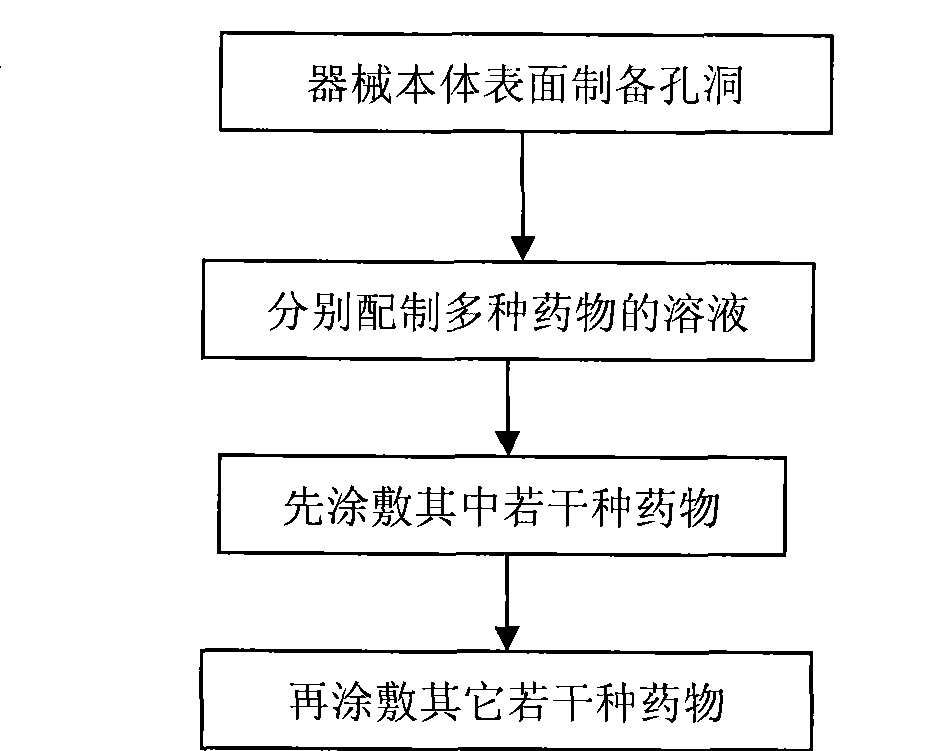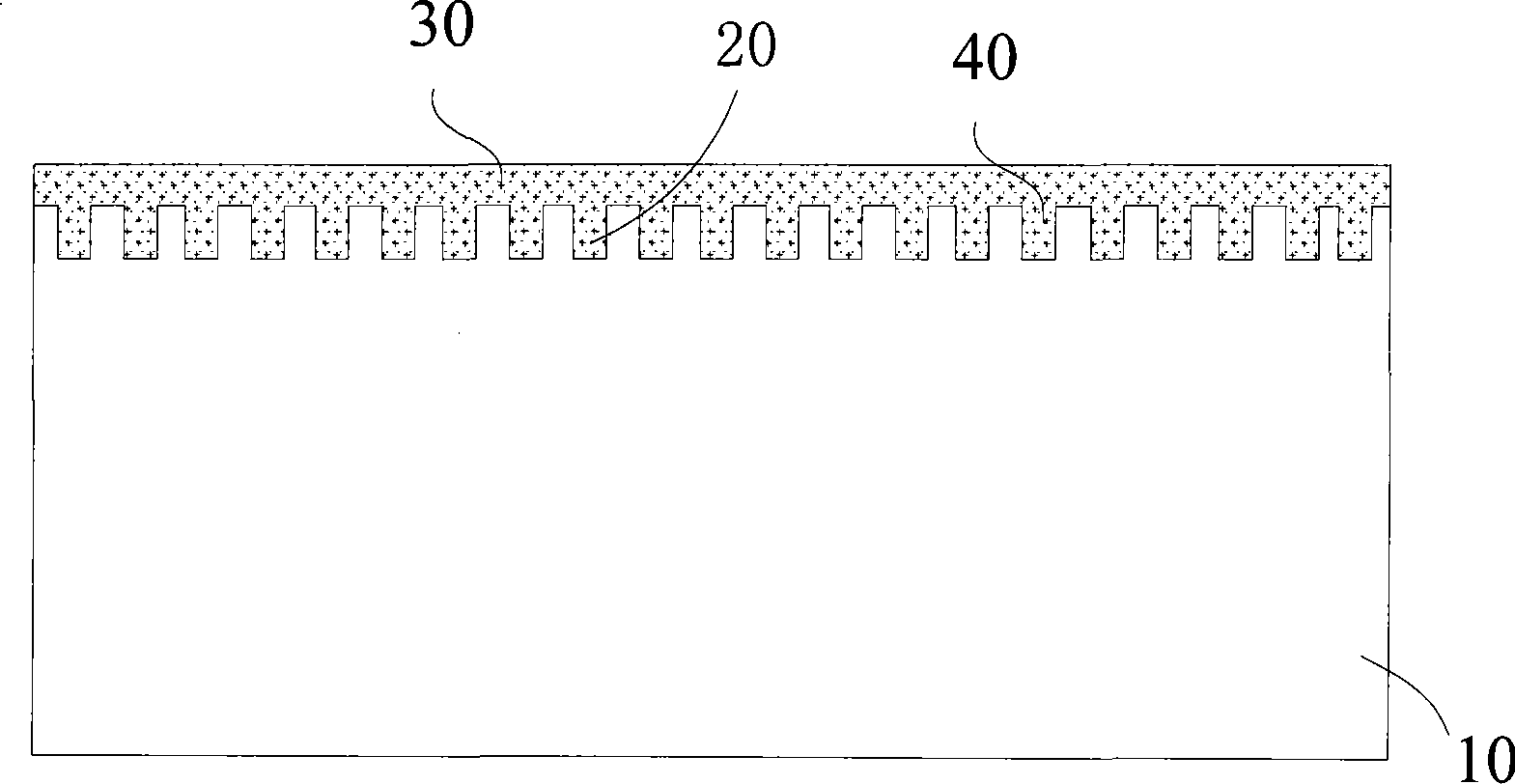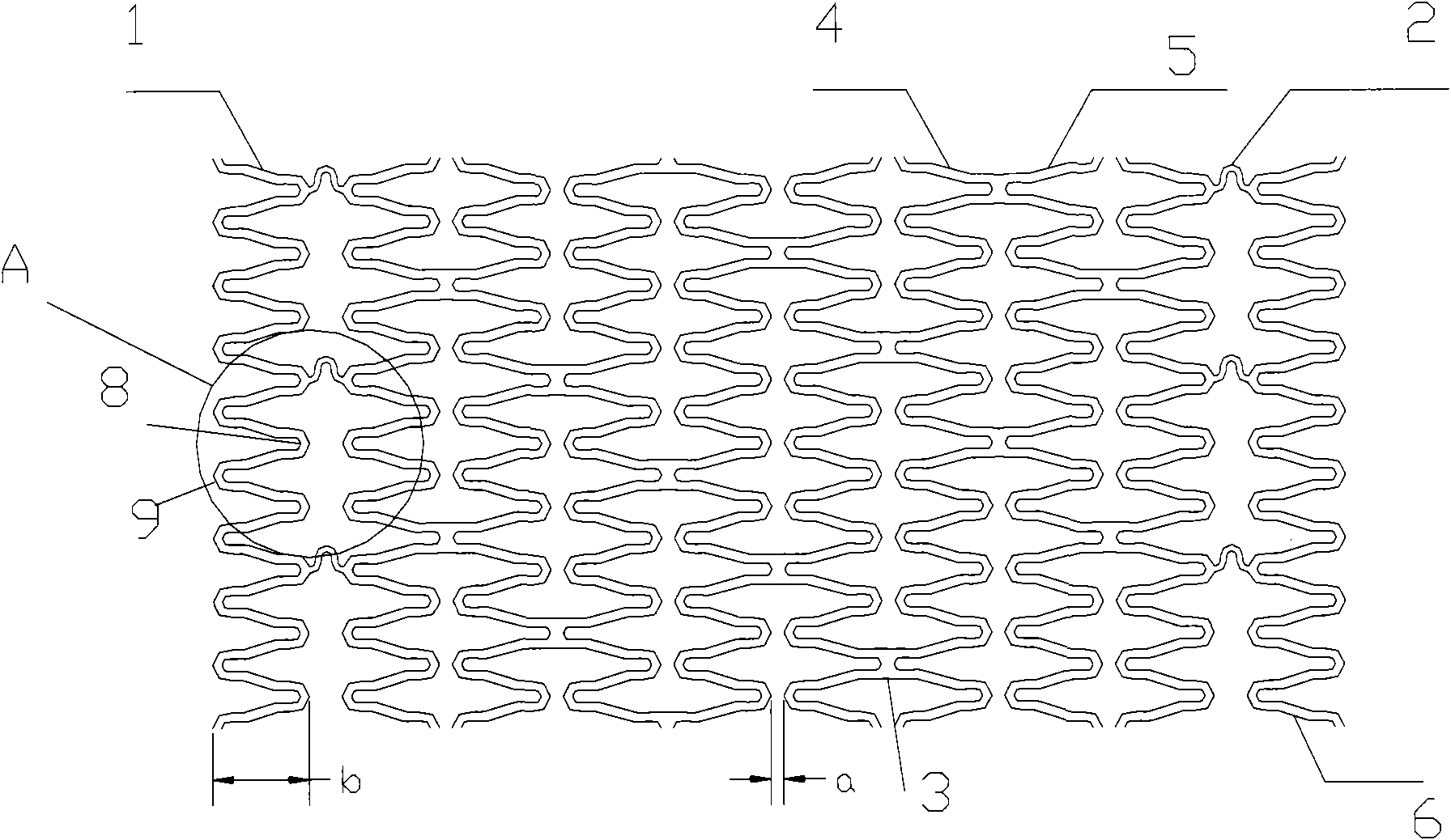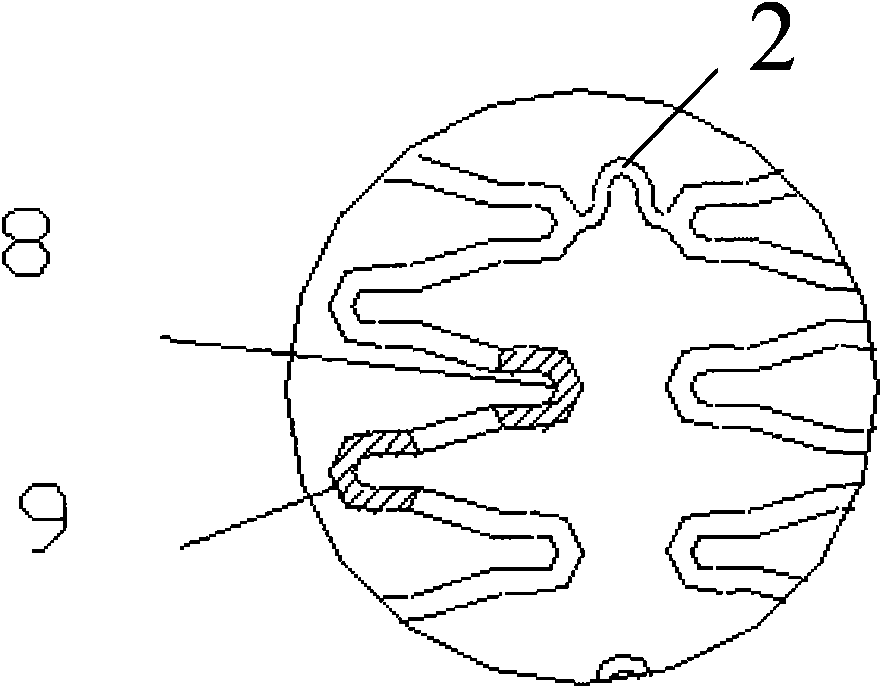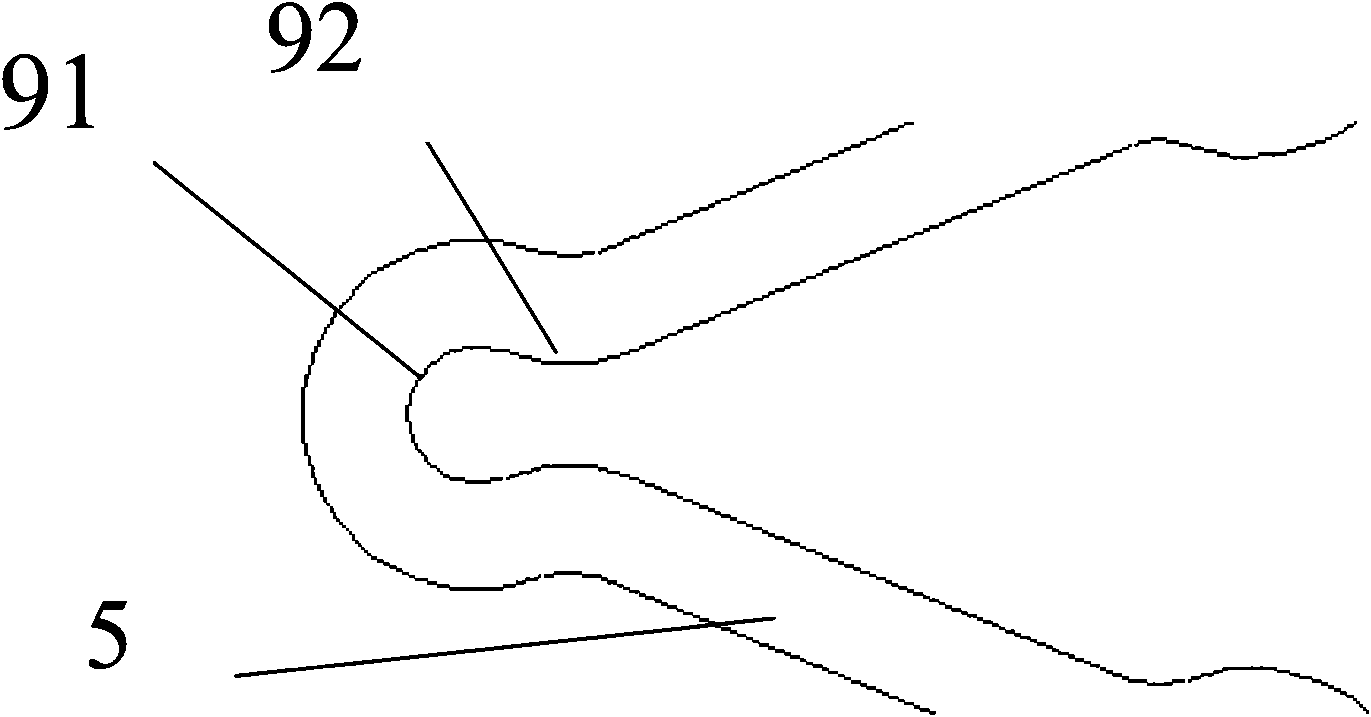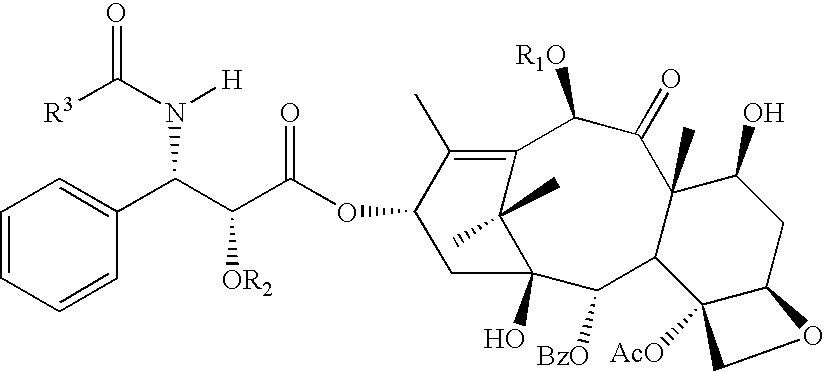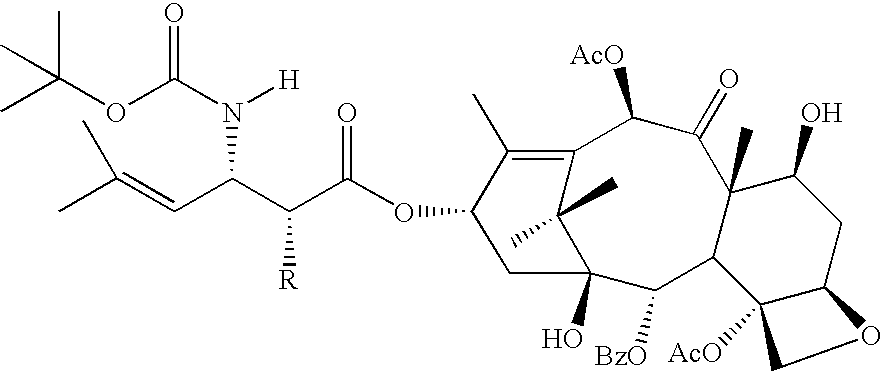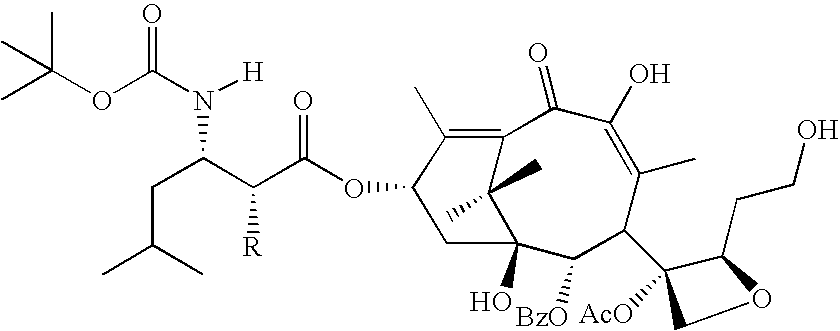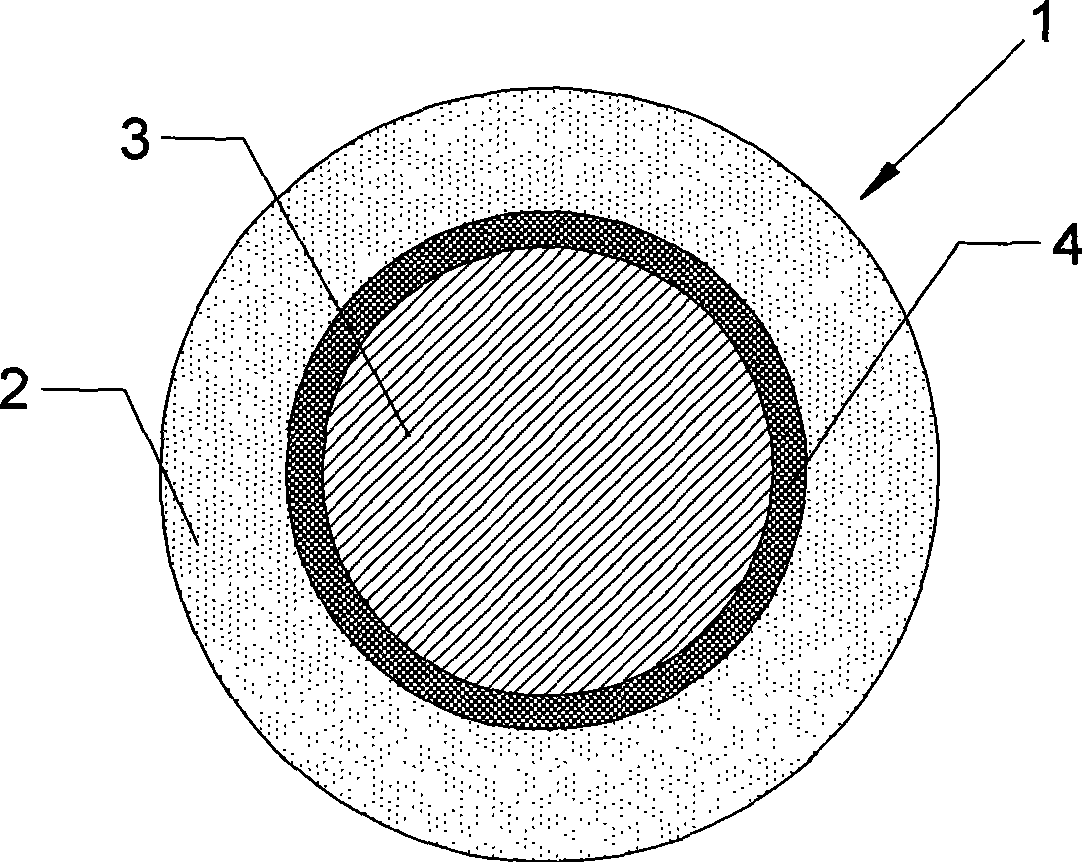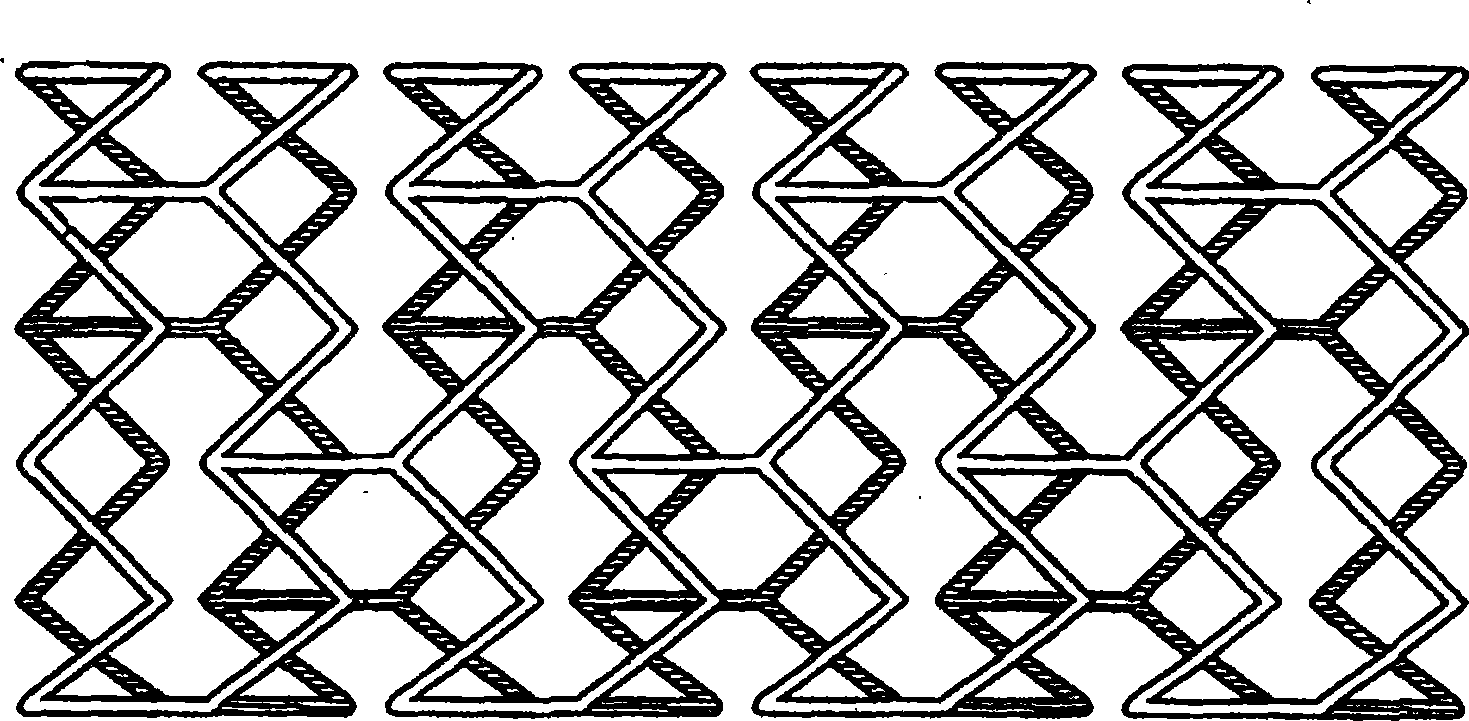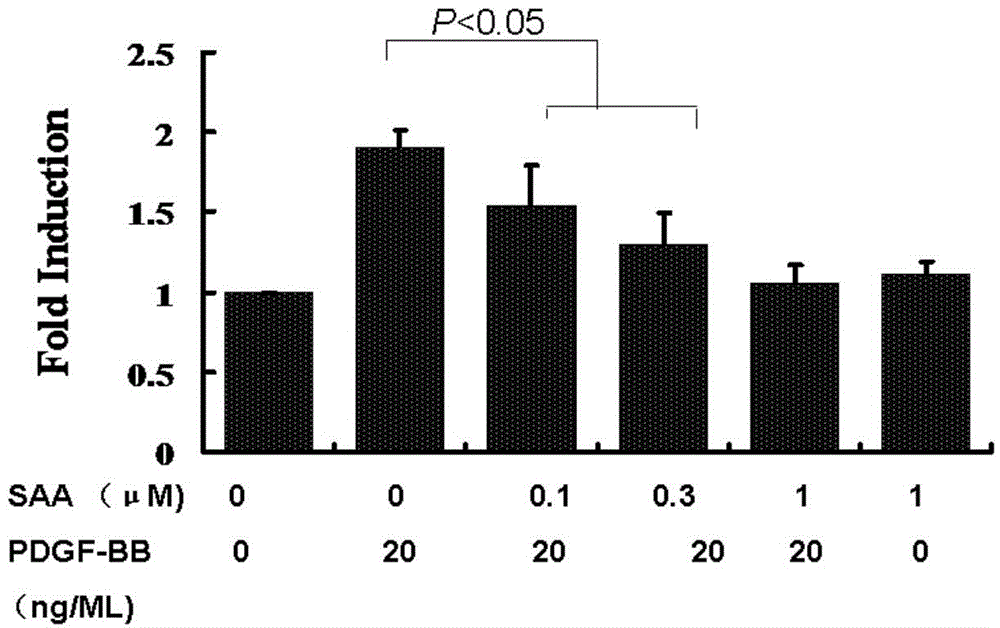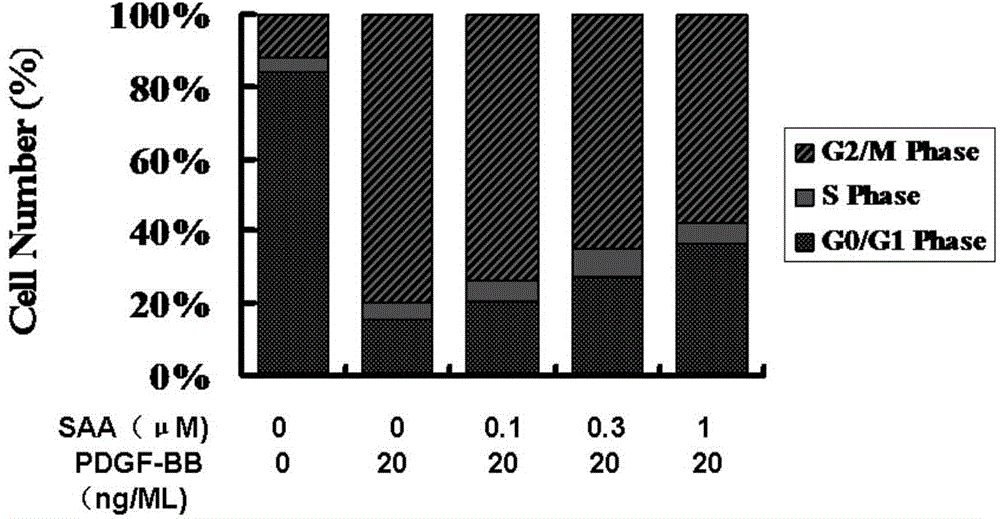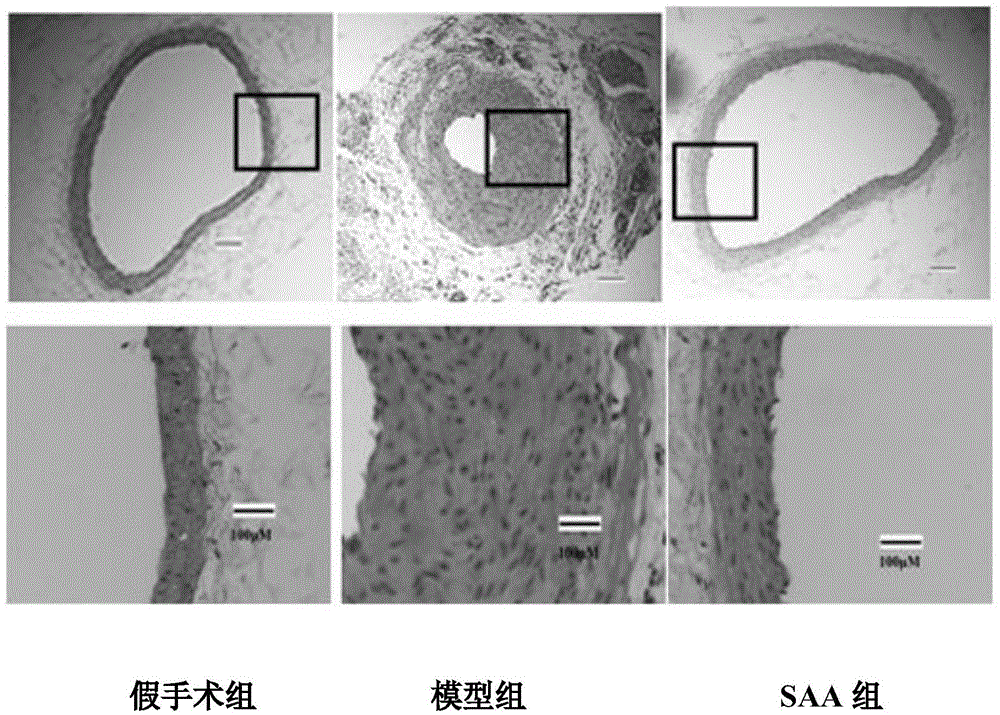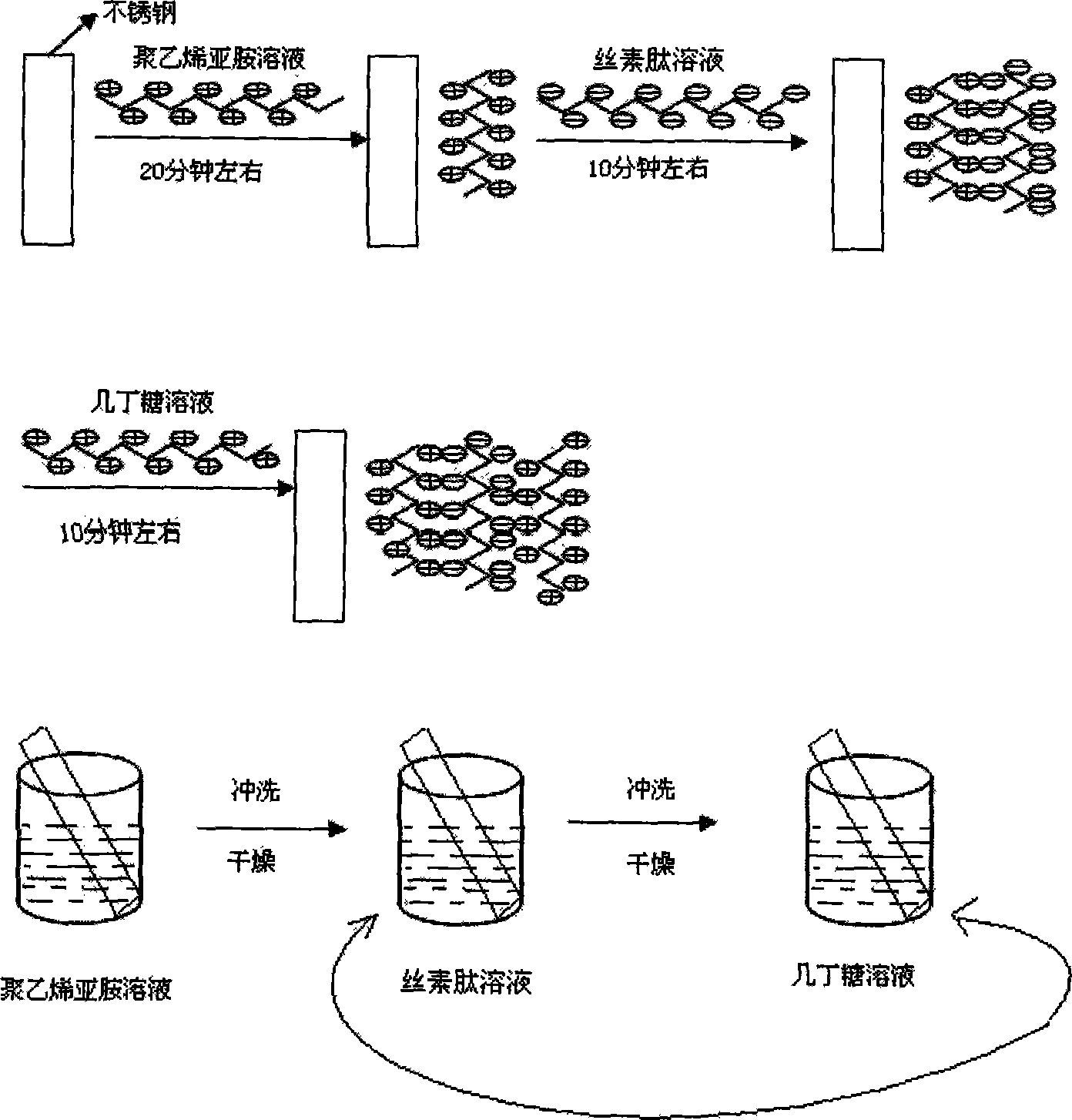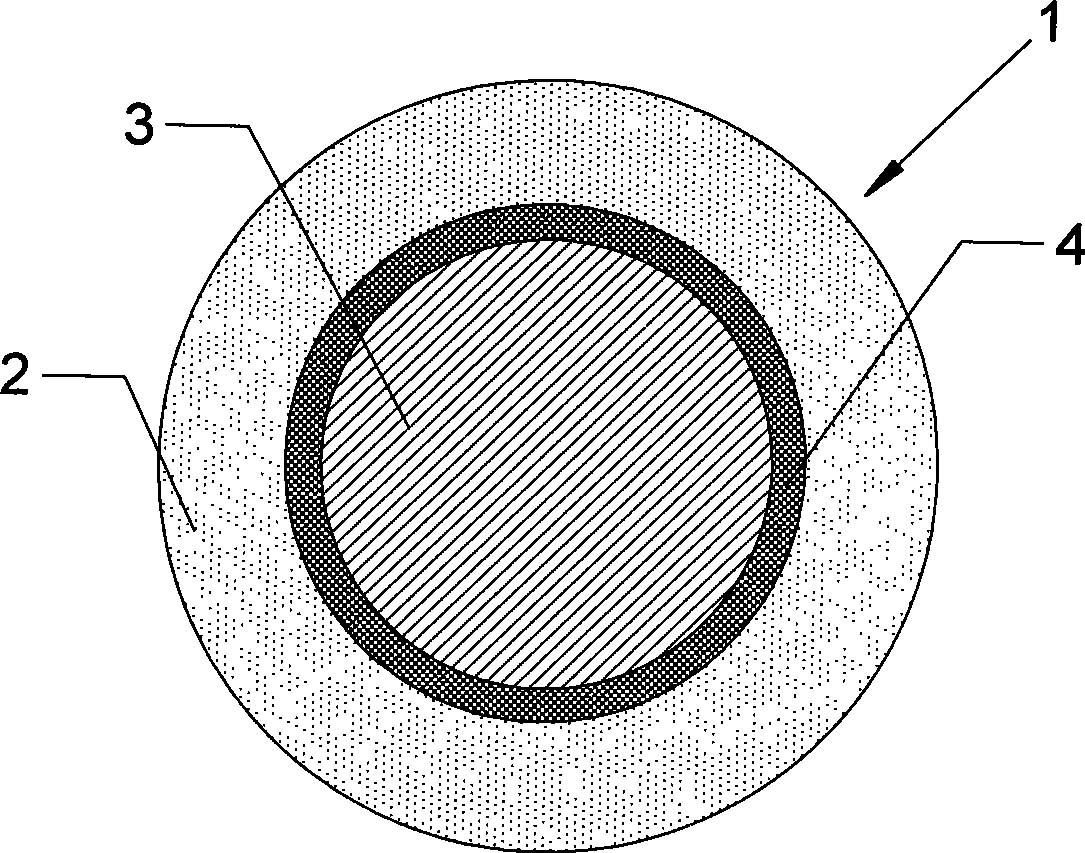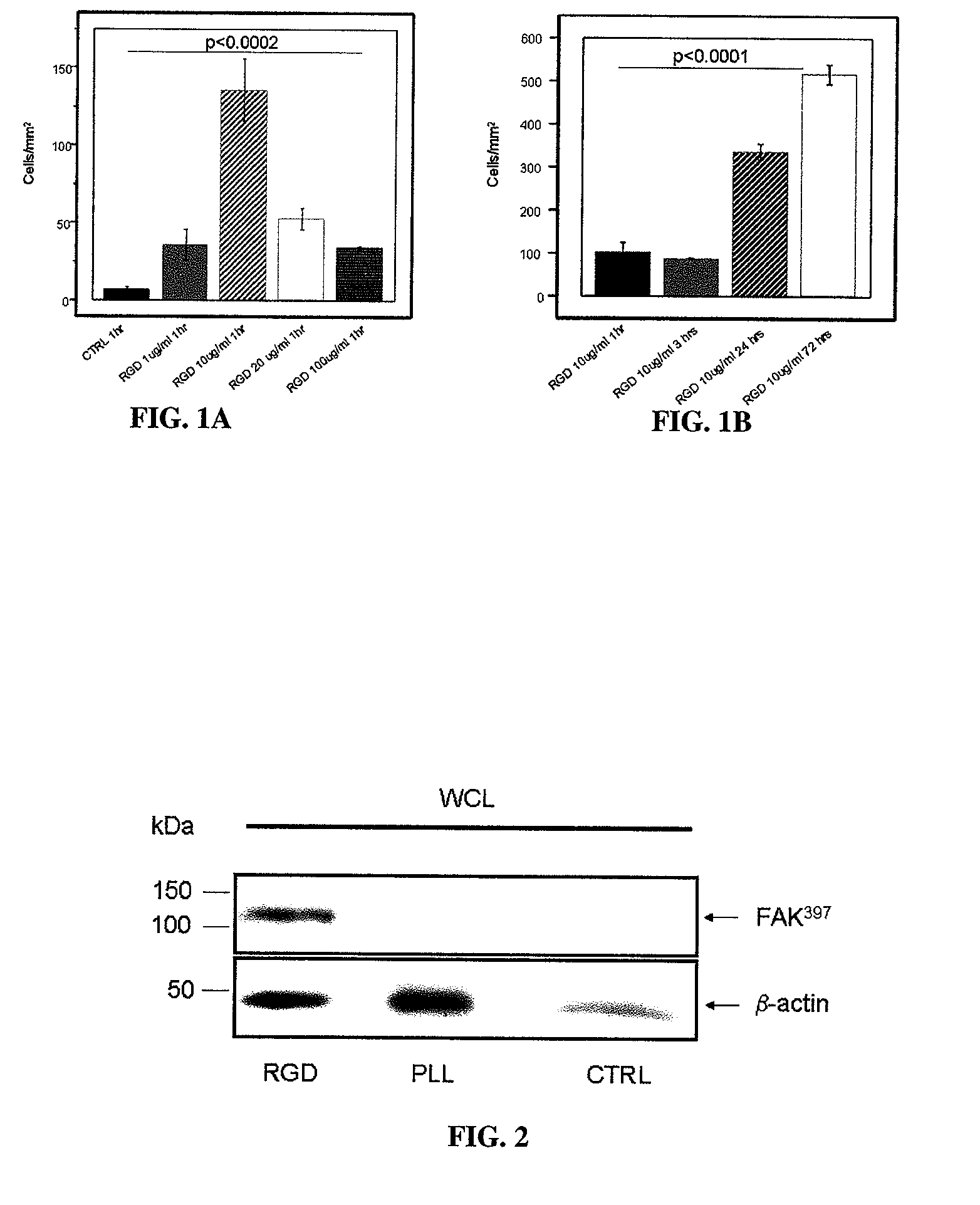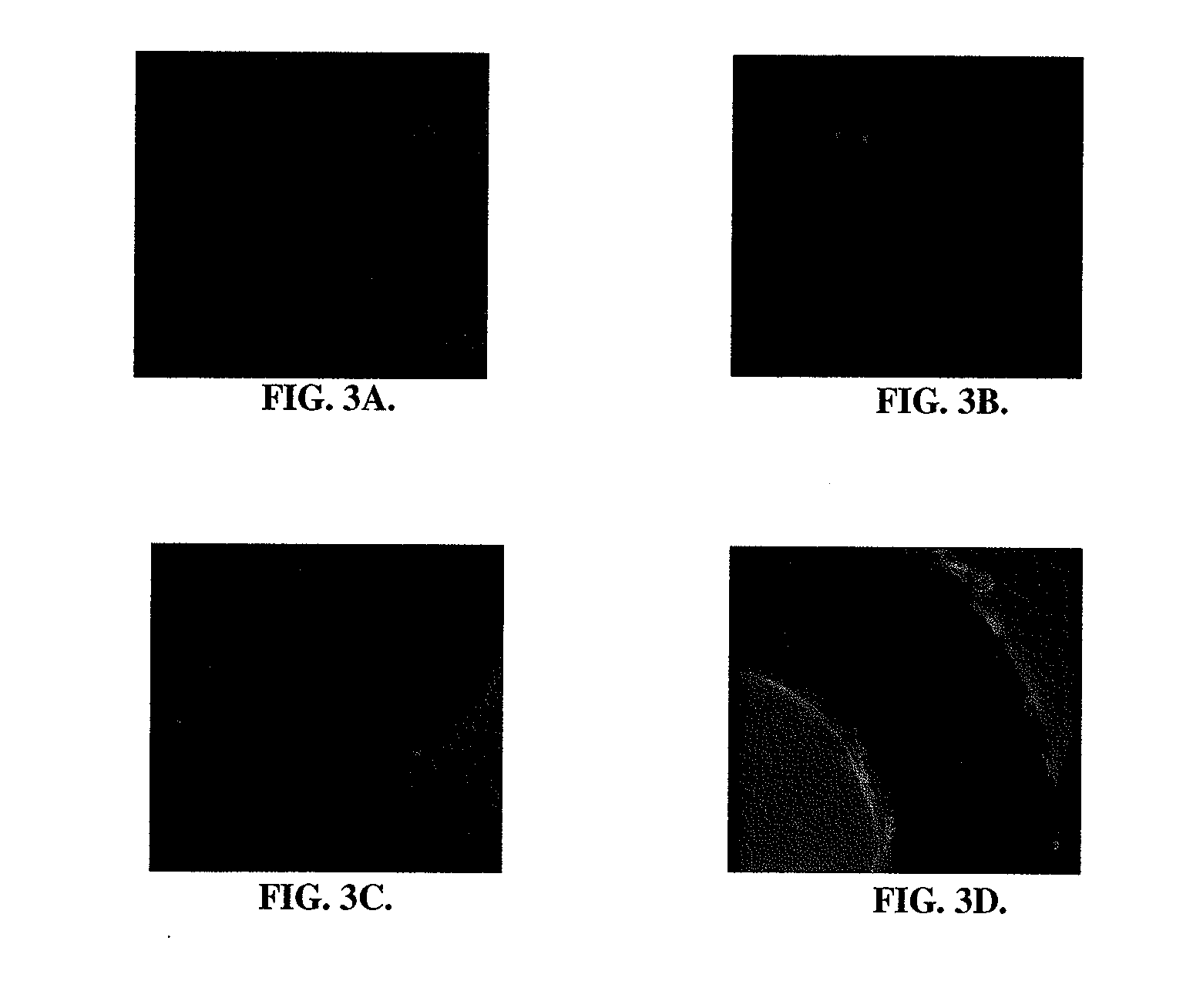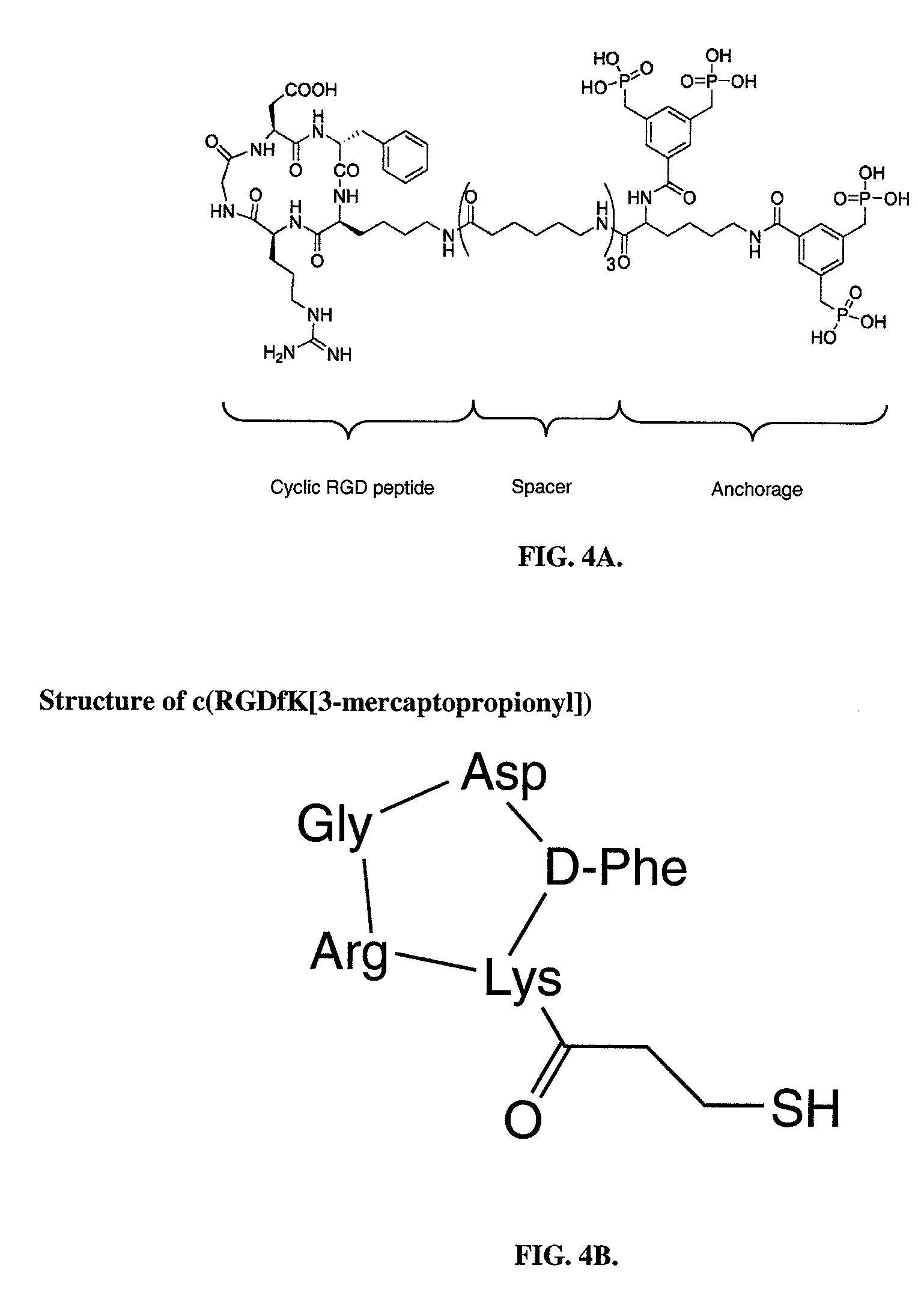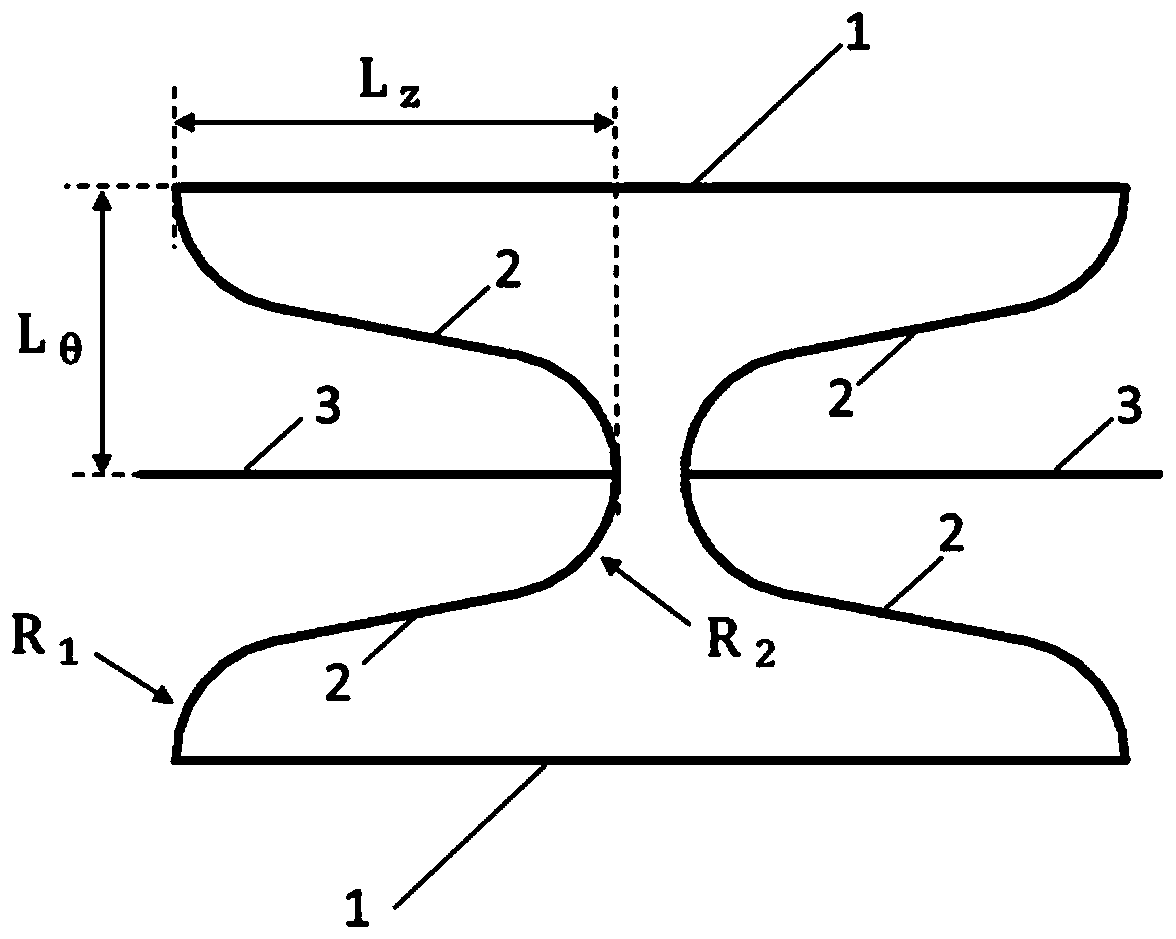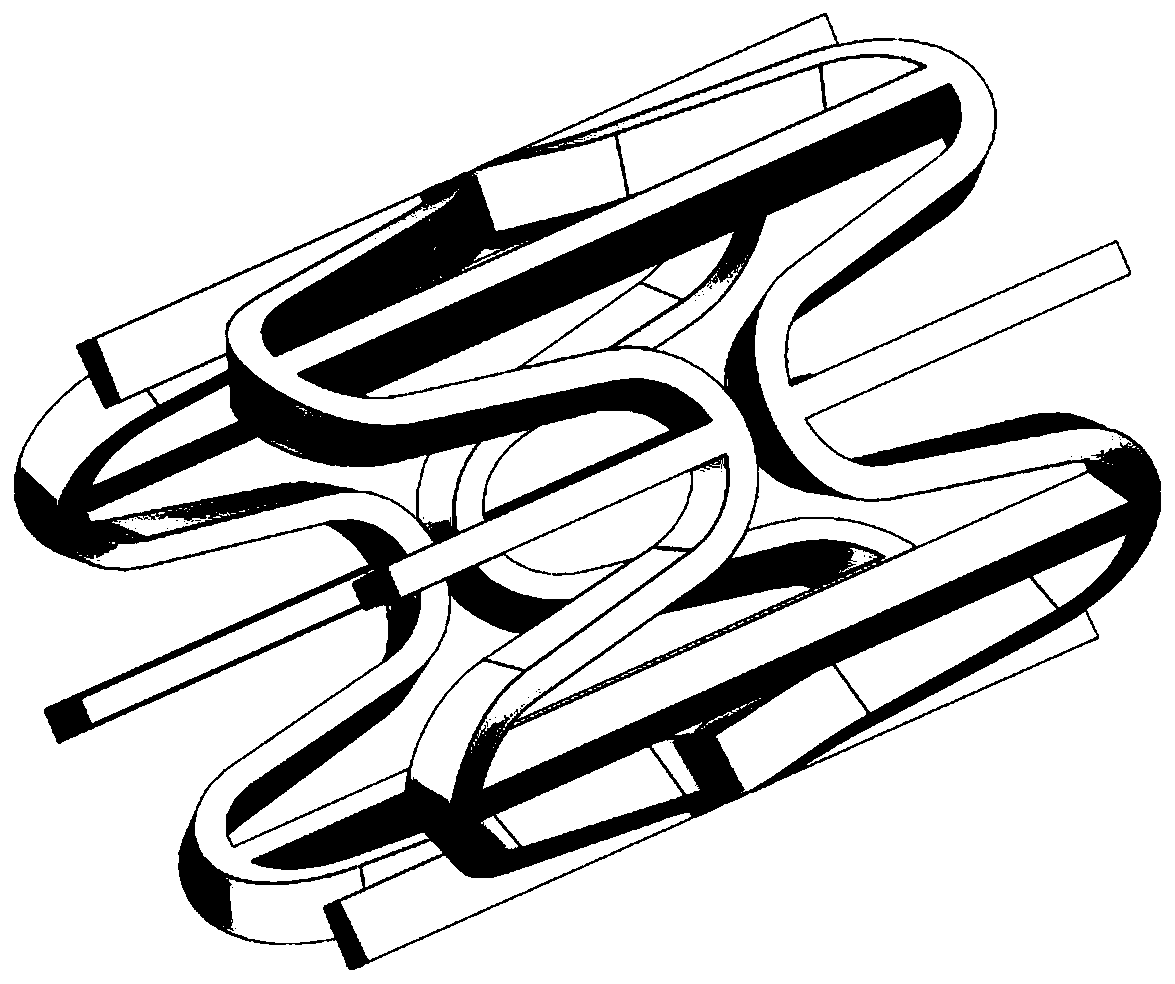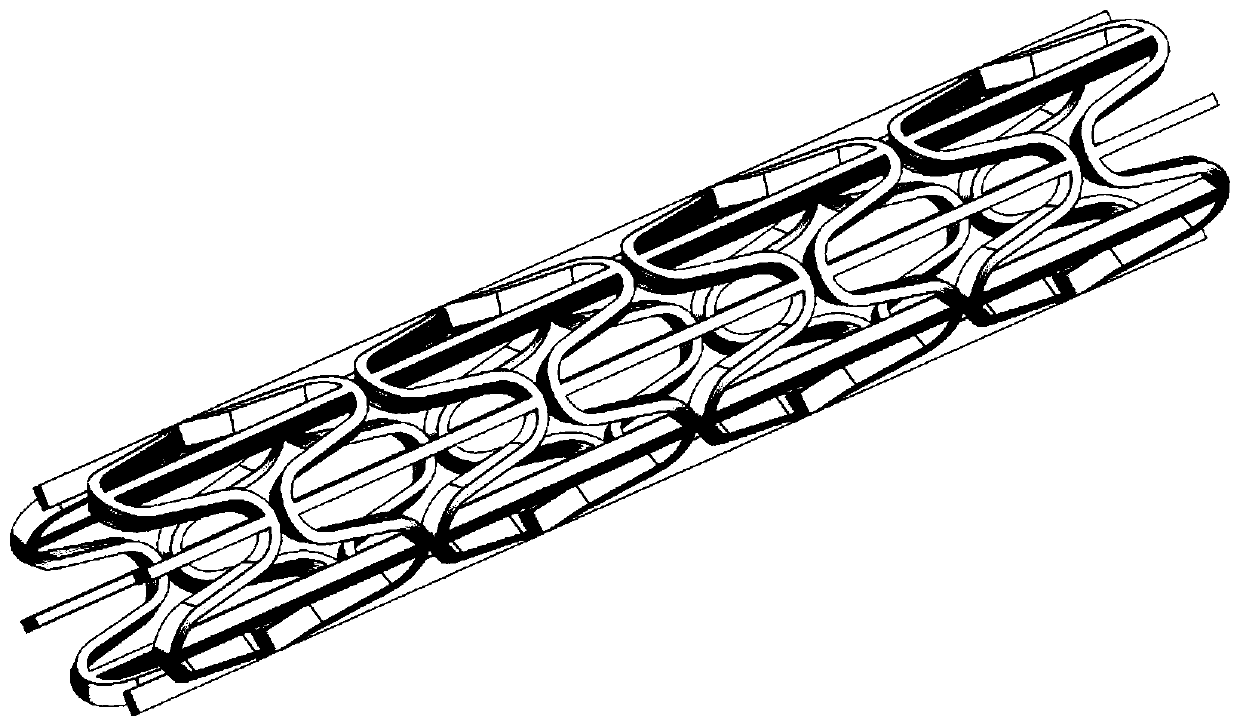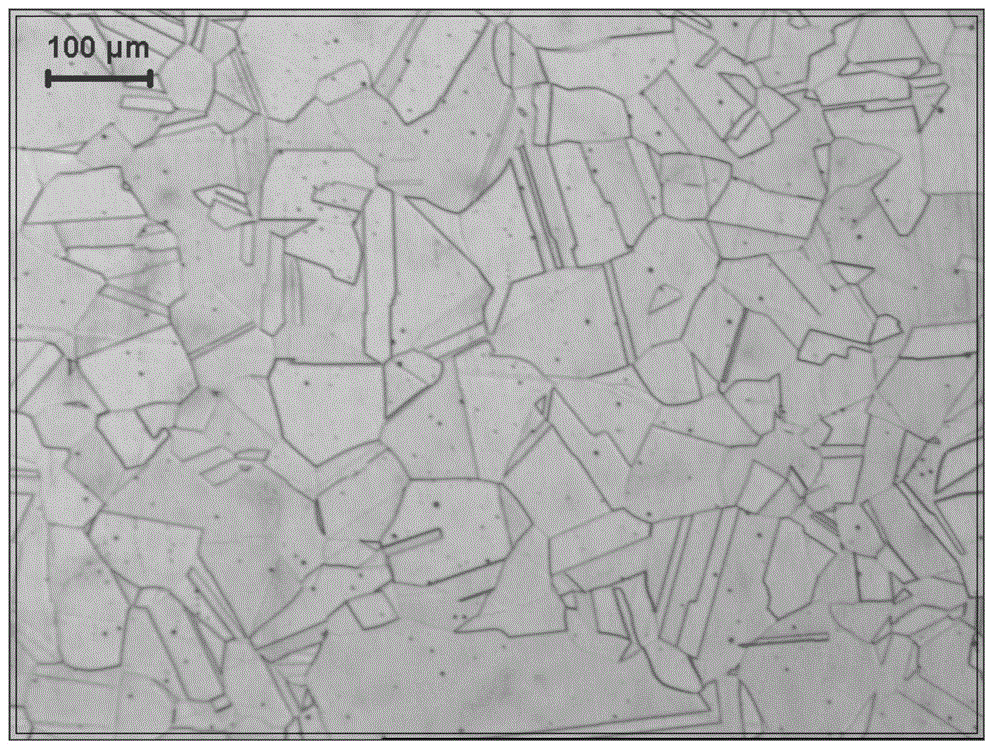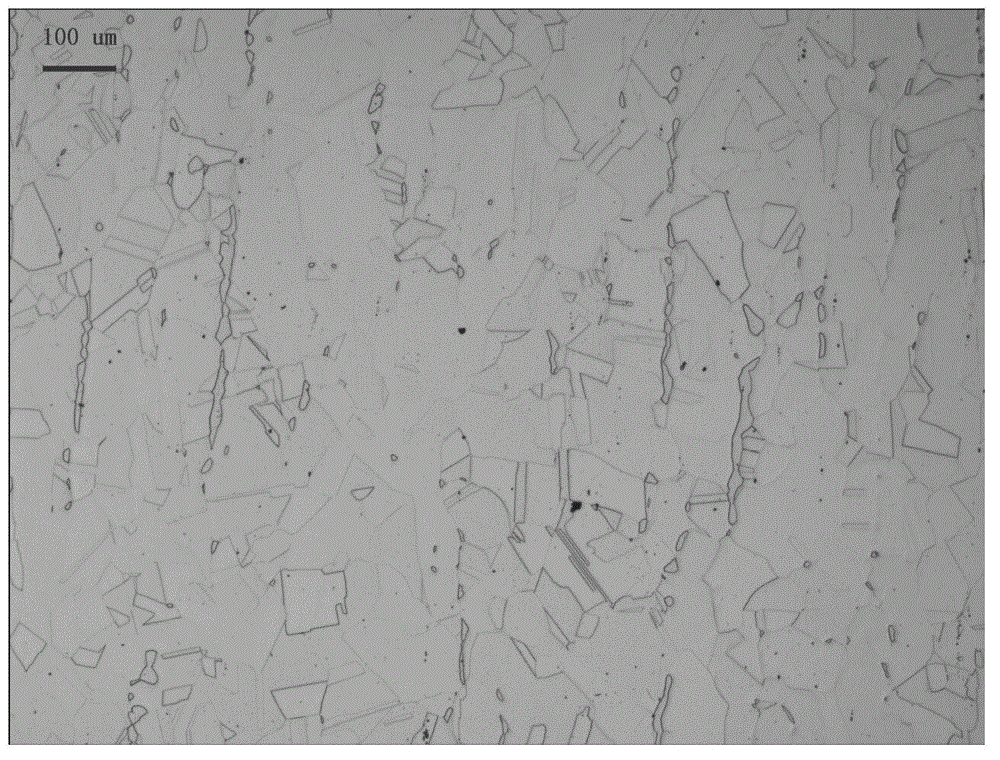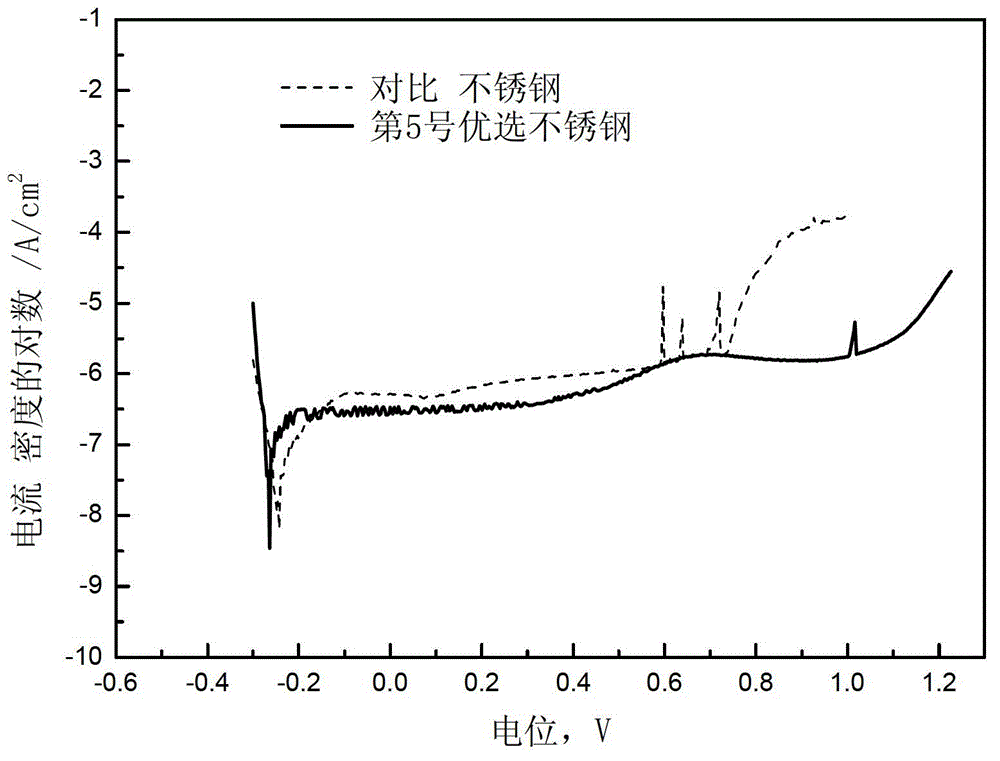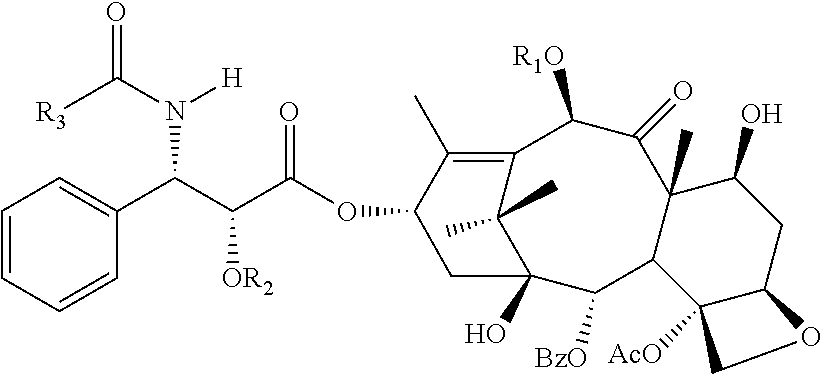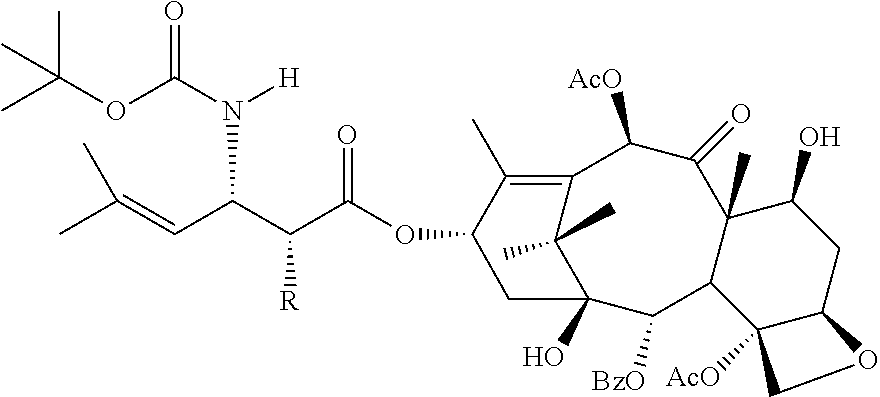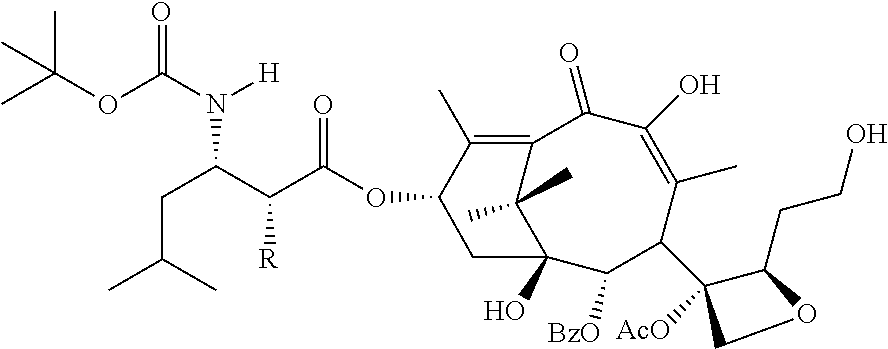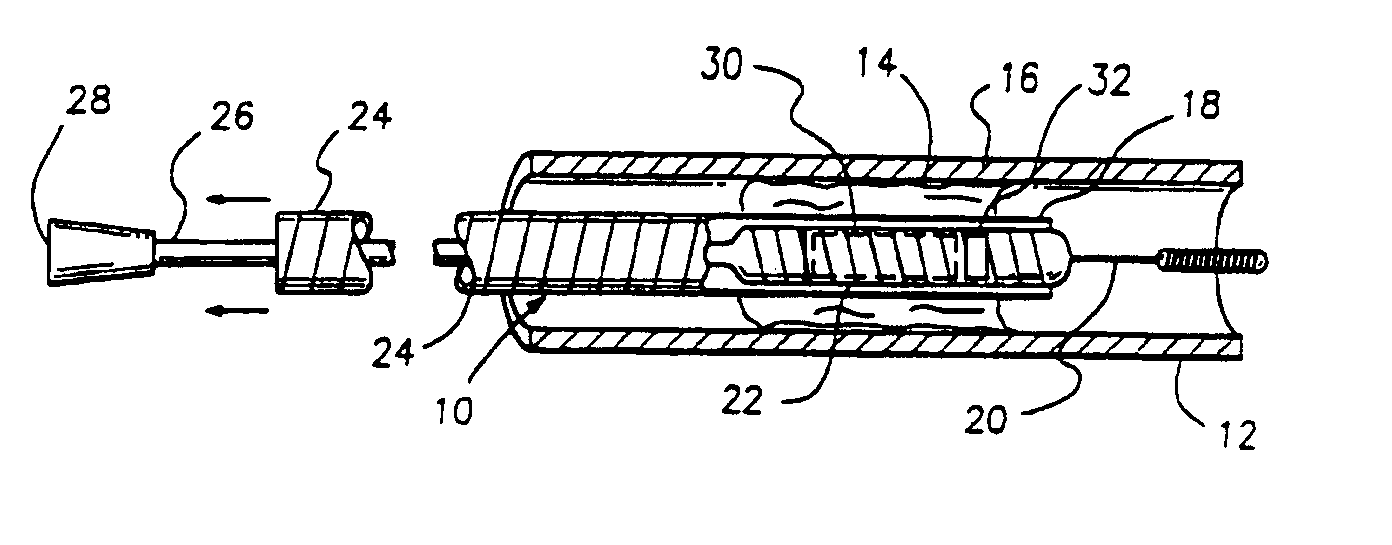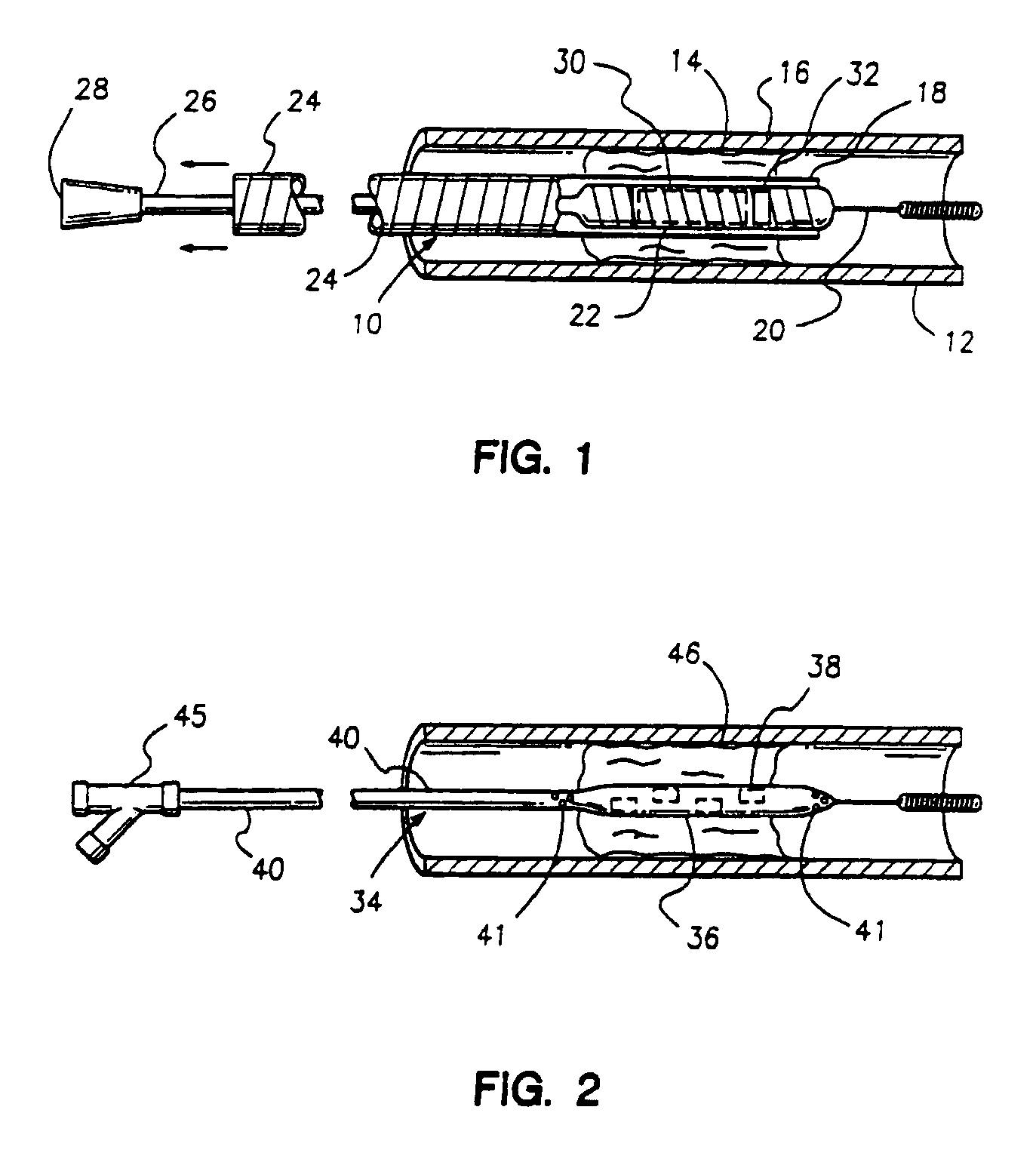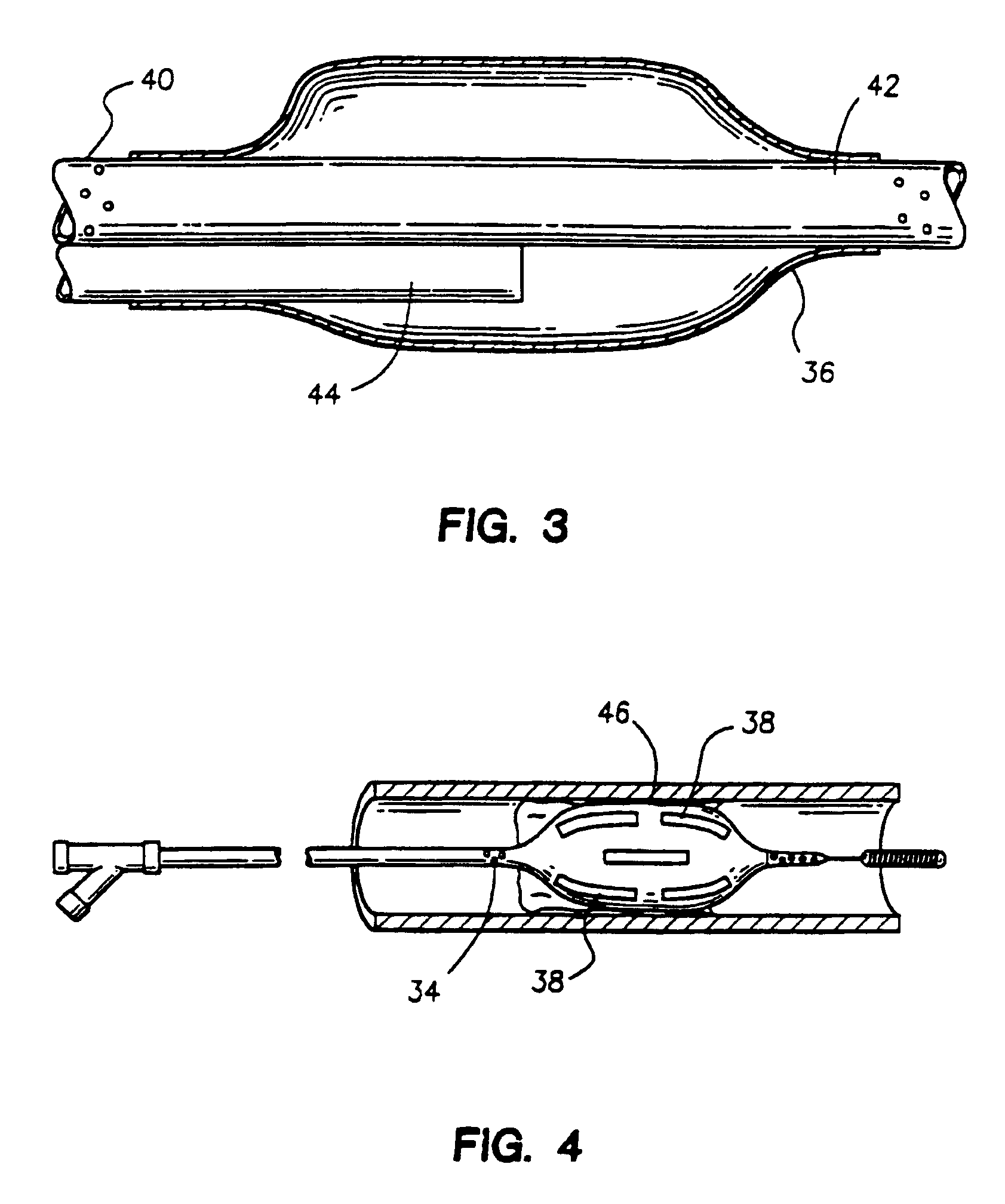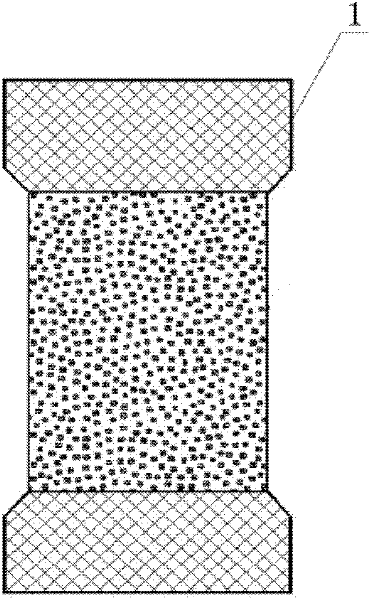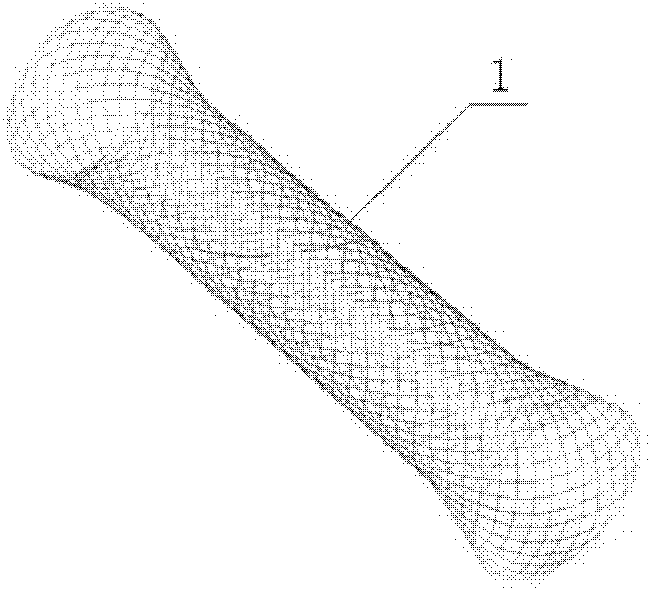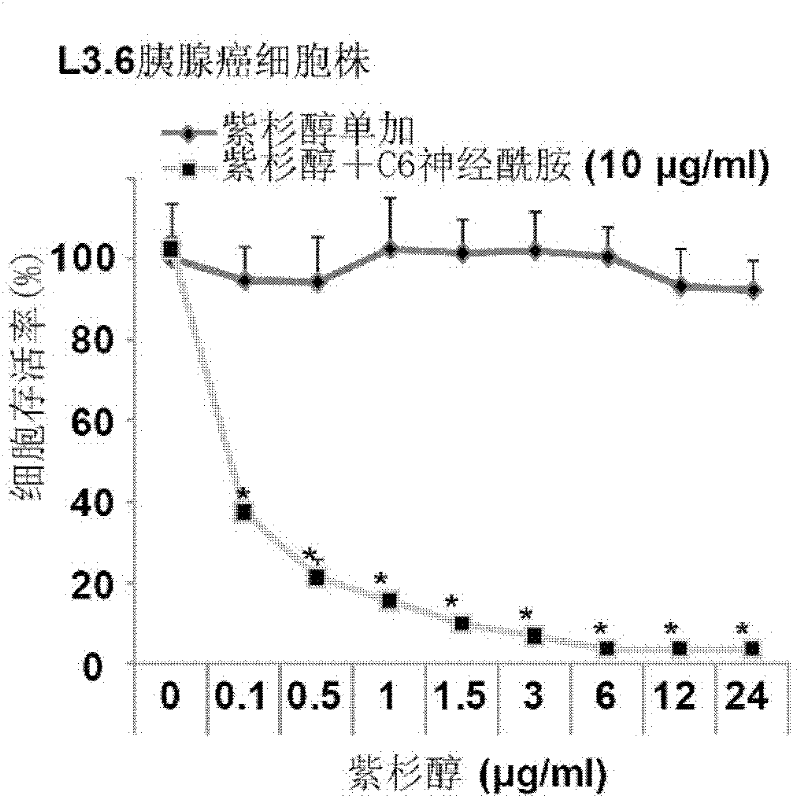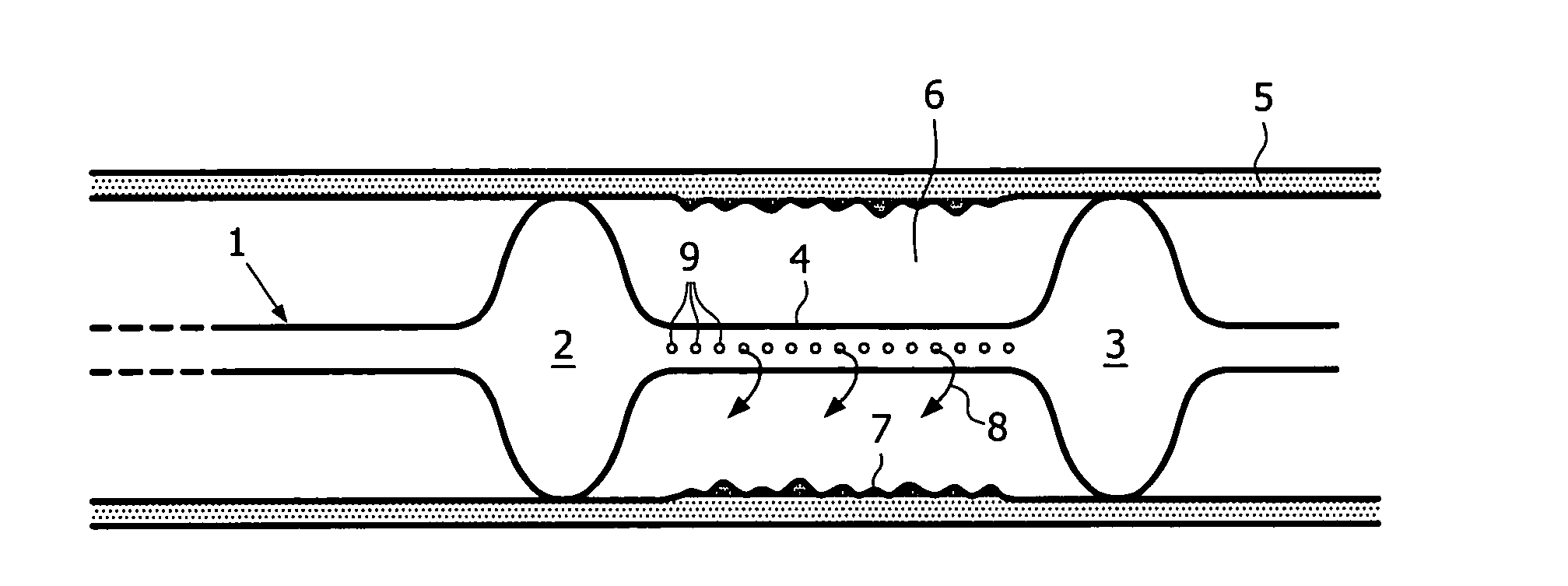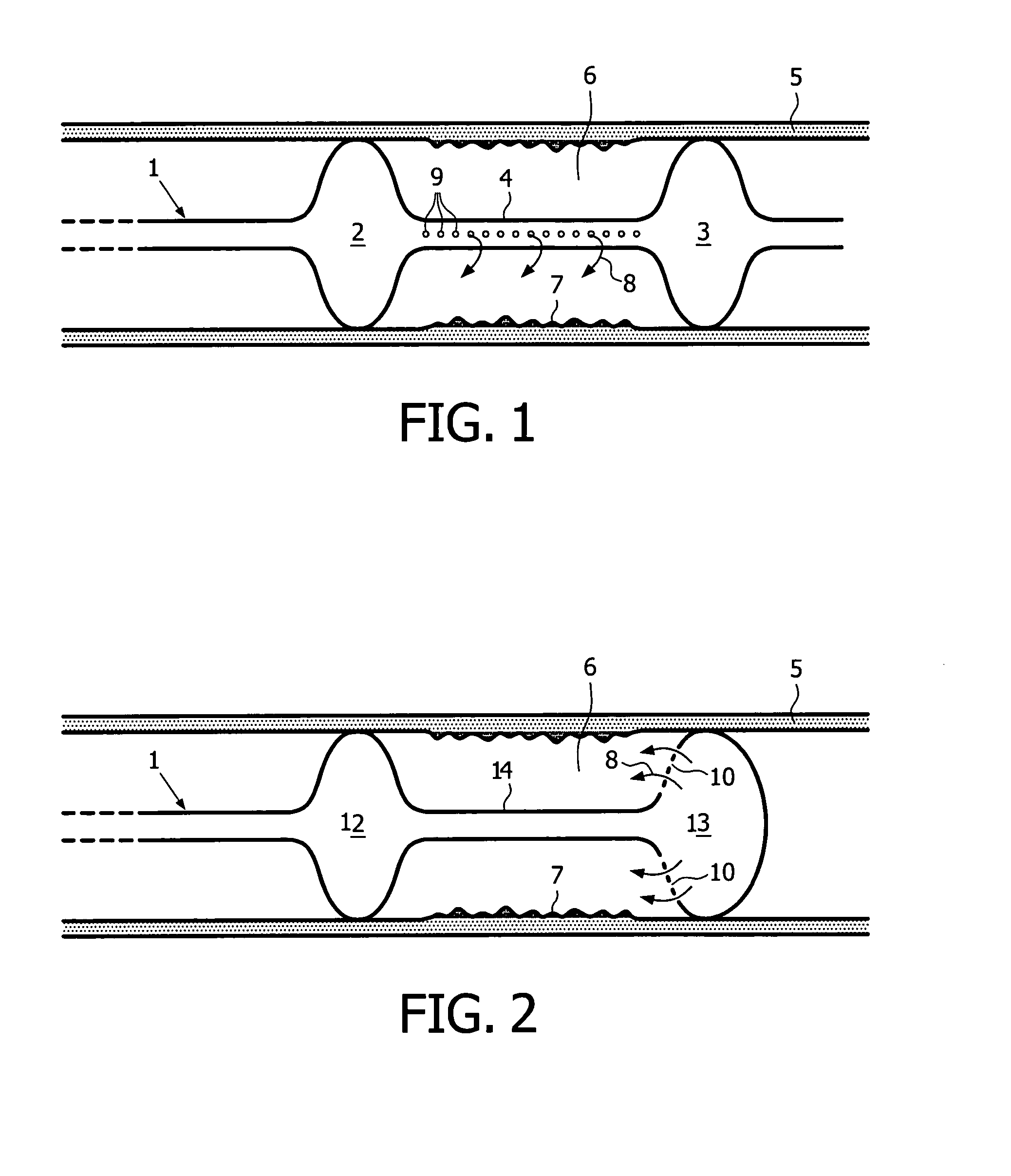Patents
Literature
Hiro is an intelligent assistant for R&D personnel, combined with Patent DNA, to facilitate innovative research.
71results about How to "Reduce restenosis rate" patented technology
Efficacy Topic
Property
Owner
Technical Advancement
Application Domain
Technology Topic
Technology Field Word
Patent Country/Region
Patent Type
Patent Status
Application Year
Inventor
Method and device for performing cooling or cryo-therapies, for, e.g., angioplasty with reduced restenosis or pulmonary vein cell necrosis to inhibit atrial fibrillation employing tissue protection
InactiveUS7001378B2Minimize and inhibit bio-chemical eventRobust designCatheterSurgical instruments for heatingPercent Diameter StenosisPercutaneous angioplasty
An enhanced method and device are provided to treat atrial fibrillation or inhibit or reduce restenosis following angioplasty or stent placement. A balloon-tipped catheter is disposed in the area treated or opened through balloon angioplasty immediately following angioplasty. The balloon, which can have a dual balloon structure, may be delivered through a guiding catheter and over a guidewire already in place. A fluid such as a perfluorocarbon flows into the balloon to freeze the tissue adjacent the balloon, this cooling being associated with reduction of restenosis. A similar catheter may be used to reduce atrial fibrillation by inserting and inflating the balloon such that an exterior surface of the balloon contacts at least a partial circumference of the portion of the pulmonary vein adjacent the left atrium. In another embodiment, blood perfusion is performed simultaneously. In another embodiment, tissue contacted by the cryoablation catheter, undesired to be ablated, is protected against damage by a separate heating step.
Owner:ZOLL CIRCULATION
Method and device for performing cooling- or cryo-therapies for, e.g., angioplasty with reduced restenosis or pulmonary vein cell necrosis to inhibit atrial fibrillation employing tissue protection
InactiveUS6905494B2Minimize and inhibit biochemical eventRobust designCatheterSurgical instruments for heatingPercent Diameter StenosisPercutaneous angioplasty
An enhanced method and device are provided to treat atrial fibrillation or inhibit or reduce restenosis following angioplasty or stent placement. A balloon-tipped catheter is disposed in the area treated or opened through balloon angioplasty immediately following angioplasty. The balloon, which can have a dual balloon structure, may be delivered through a guiding catheter and over a guidewire already in place. A fluid such as a perfluorocarbon flows into the balloon to freeze the tissue adjacent the balloon, this cooling being associated with reduction of restenosis. A similar catheter may be used to reduce atrial fibrillation by inserting and inflating the balloon such that an exterior surface of the balloon contacts at least a partial circumference of the portion of the pulmonary vein adjacent the left atrium. In another embodiment, blood perfusion is performed simultaneously. In another embodiment, tissue contacted by the cryoablation catheter, undesired to be ablated, is protected against damage by a separate heating step.
Owner:ZOLL CIRCULATION
Stents with amphiphilic copolymer coatings
One aspect of the invention relates to a stent, a surface of which is coated with an amphiphilic copolymer that includes both hydrophobic and hydrophilic polymer chains. An amphiphilic copolymer coating according to the invention can serve as a carrier for a very broad range of drugs. The release rates of the drugs can be controlled, for example, through the length of the polymer chains, through their ratio, or through the degree of crosslinking.
Owner:ICON INTERVENTIONAL SYST
Stent to be placed in vivo
InactiveUS20070038289A1Low rateHighly preventive effectStentsSurgeryLactidePercent Diameter Stenosis
As a treatment for angiostenosis, angioplasty (PTA or PTCA) of expanding a small-sized balloon in a vessel has been commonly conducted. However, this treatment easily causes repeated stenosis (restenosis) after the treatment. Placement of a stent in a vessel is also effective in decreasing restenosis, but this treatment may also cause restenosis. The present invention provides a stent containing a poly (lactide-co-glycolide) or both a poly (lactide-co-glycolide) and an immunosuppressive agent in at least a portion of a surface of the stent, and further containing a material nondegradable in vivo.
Owner:KANEKA CORP
Endovascular implant for the injection of an active substance into the media of a blood vessel
InactiveUS20050027350A1Low production costAlocal side-effects are very substantially excludedHeart valvesBlood vesselsBiomedical engineeringVascular wall
The invention concerns an endovascular implant for the application of an active substance into the media 22 of a blood vessel and two processes for the production thereof. A base body 42 of the implant has at least in portion-wise manner at a surface 40 which is towards the blood vessel, a plurality of microdevices 10 for injection of the active substance. Each microdevice 10 includes on the one hand at least one microcannula 38 which is raised out of the surface 40 of the implant to such an extent that, when the implant bears against a wall 12 of the blood vessel in surface contact, the microcannula penetrates into the media 22 of the blood vessel, and on the other hand at least one active substance deposit 36 which is in communication with at least one microcannula 38.
Owner:BIOTRONIK
Medical devices containing rapamycin analogs
InactiveUS20050175660A1Reduce restenosisReduce restenosis rateBiocideOrganic chemistryTherapeutic effectAnti platelet
A medical device comprising a supporting structure capable of containing or supporting a pharmaceutically acceptable carrier or excipient, which carrier or excipient may contain one or more therapeutic agents or substances, with the carrier preferably including a coating on the surface thereof, and the coating containing the therapeutic substances, such as, for example, drugs. Supporting structures for the medical devices that are suitable for use in this invention include, but are not limited to, coronary stents, peripheral stents, catheters, arterio-venous grafts, by-pass grafts, and drug delivery balloons used in the vasculature. Drugs that are suitable for use in this invention include, but are not limited to, This drug can be used in combination with another drug including those selected from anti-proliferative agents, anti-platelet agents, anti-inflammatory agents, anti-thrombotic agents, cytotoxic drugs, agents that inhibit cytokine or chemokine binding, cell de-differentiation inhibitors, anti-lipaedemic agents, matrix metalloproteinase inhibitors, cytostatic drugs, or combinations of these drugs.
Owner:ABBOTT LAB INC
Anti-coagulation stainless steel coronary arterial bracket and uses thereof
ActiveCN101385669AAvoid postoperative restenosisGood biological compatibilityStentsProsthesisMedicineWhole body
The invention relates to a medical apparatus, in particular to an anticoagulant stainless steel coronary support which is made from a high-nitrogen nickel-free austenitic stainless steel material with good blood compatibility. The support is of tubular structure with a mesh surface which is formed by orderly arranging a unit figure on the side surface of a tube along the circumference and axial direction, the primary supporting function is provided by U-shaped corrugated mesh wires extending along the axial direction, the corrugated mesh wires are connected into a whole body by soft mesh wires arranged at intervals, and the diameter of the mesh wire (width or thickness) is 40-100mum; and the surface of the support is passivated and coated with a medication. The anticoagulant stainless steel support has the advantages of good mechanical properties, good flexibility and good anticoagulant property, and can be used as a support for cardiovascular and cerebrovascular systems or a support for other cavity bodies.
Owner:ZHONGKE YIAN MEDICAL TECH BEIJING CO LTD
Medicament release structure carrying apertured and polyalcohol as well as its preparing method
ActiveCN101161299AReduce contentReduce the risk of long-term thrombosisSurgeryProsthesisControl releaseElution
The present invention relates to a hole for the medicine elution apparatus and a polymer carrying medicine releasing structure and the preparing method thereof. The invention includes an apparatus body which is arranged with large numbers of holes, the large number of holes are nano-scale holes with single dimension or double dimensions of a plurality of dimensions, namely n nano-scale holes with equal dimension arrangement or two or more asymmetrical dimension arrangement with the statistical average value including the pore diameter of pore depth, the holes are structure of medicine-carrying groove or pore, and the apparatus body includes or not includes an outermost membrane layer, the mixture of medicine and polymer exists in the hole and the mixture adheres to the surface of the apparatus body; the carrier carrying the medicine is no longer the simple hole or polymer, the holes and a few polymers commonly supports the active medicine and does controlled-releasing to the medicine, facilitates that the medicine has a strong adsorbability and a good controlled-releasing effect, as the content of the polymer is small the invention has the advantages of reducing the risk formed by the long-period thrombus and safer using and better treating effect.
Owner:LEPU MEDICAL TECH (BEIJING) CO LTD
Method for manufacturing artificial blood vessels with double-layered structures and application of artificial blood vessels
ActiveCN104921841AReduce restenosis rateHigh mechanical strengthNon-woven fabricsBlood vesselsIn vivoMechanical property
The invention provides a method for manufacturing artificial blood vessels with double-layered structures and application of the artificial blood vessels, and discloses a method for manufacturing artificial blood vessels with double-layered structures and a method for applying the artificial blood vessels. The method for manufacturing the artificial blood vessels with the double-layered structures includes a first step, manufacturing inner oriented micron fiber layers of the artificial blood vessels with the double-layered structures; a second step, manufacturing outer random nano-fiber layers of the artificial blood vessels with the double-layered structures. The method for applying the artificial blood vessels includes transplanting the double-layered artificial blood vessels in situ so as to replace lesion blood vessels. The methods have the advantages that vascular smooth muscle cells can be induced in vivo by oriented micron fibers of the inner layers of the artificial blood vessels to be regenerated just like oriented structures of natural blood vessels, sufficient suture strength and mechanical properties of the blood vessels can be guaranteed by the outer random nano-fiber layers, and accordingly the artificial blood vessels can be used for repairing and replacing the lesion natural blood vessels; the double-layered artificial blood vessels have excellent application prospects in the field of medical clinical vascular transplantation.
Owner:领博生物科技(杭州)有限公司
Medical degradable Zn-Cu-X alloy material and preparation method thereof
The invention discloses a medical degradable Zn-Cu-X alloy material and a preparation method thereof. The alloy material includes the following components in percentage by weight: 1-10% of Cu, 0-4% of X and the balance Zn, wherein the element X is one of Mg, Ca, Sr, Si, Fe, Mn, Ag, Y, Nd, Gd, Er, Ho and Dy or is a mixture of more of Mg, Ca, Sr, Si, Fe, Mn, Ag, Y, Nd, Gd, Er, Ho and Dy. The invention further relates to the preparation method of the alloy material. The alloy material provided by the invention is a multi-element degradable Zn-based alloy material composed of the human nutrient elements Zn, Cu and X, which completely have biosecurity, has favorable biocompatibility, excellent mechanical properties and an adjustable and controllable corrosion rate, and has a favorable application prospect in the field of medical degradable inner implantation material.
Owner:SHANGHAI JIAO TONG UNIV
Use of bioactive and radiopaque material for stent coating
InactiveUS20100047312A1High dissolution rateReduce restenosis rateBiocideSurgeryInsertion stentBiological activity
Owner:BIOTRONIK VI PATENT
Method and device for performing cooling- or cryo-therapies for, e.g., angioplasty with reduced restenosis or pulmonary vein cell necrosis to inhibit atrial fibrillation employing tissue protection
InactiveUS20050228368A1Reduce restenosis rateMinimize or inhibit the bio-chemical eventsCatheterSurgical instruments for heatingPercent Diameter StenosisLeft atrium
Owner:ZOLL CIRCULATION
Medicine coating balloon, preparation method and medicine coating balloon dilatation catheter
InactiveCN111298272AAvoid the risk of microembolismStrong penetrating powerBalloon catheterMedical devicesBalloon dilatation catheterPharmacy medicine
The invention discloses a medicine coating balloon. The medicine coating balloon comprises a balloon body and a medicine coating covering the surface of the balloon body, wherein the medicine coatingis formed by spraying a medicine spraying solution to the surface of the balloon body; and the medicine spraying solution is obtained by dissolving medicine, a fat-soluble excipient and a hydrophilicexcipient in a solvent. The invention further discloses a preparation method of the medicine coating balloon and a medicine coating balloon dilatation catheter. According to the medicine coating balloon, the firmness of the medicine coating is higher, the granularity of the medicine is small, the medicine loss can be greatly reduced in the medicine balloon crossing and dilatation process, the tissue absorption rate is high, and the medicine utilization rate is increased.
Owner:KOSSEL MEDTECH SUZHOU
Medicine coated balloon and preparation method thereof
ActiveCN106237395APromote absorptionExtended durationCatheterCoatingsWater methanolPolyethylene glycol
The invention relates to a medicine coated balloon and a preparation method thereof. The coating is prepared from the following raw materials in parts by weight: 5-9 parts of a medicine, 1-5 parts of excipient and 1-15 parts of a solvent, wherein the medicine is at least one of taxanes and macrolides; the excipient is at least one of iopromide, polyvinylpyrrolidone, polysorbate and polyethylene glycol; and the solvent is at least one of water, methanol, ethanol, acetone, isopropanol, acetonitrile, ethyl acetate and methyl formate. According to the method, by optimizing the composition of coating raw materials, the proportion of raw materials and the process parameter in the coating preparation method, the coating cannot be easily separated before reaching the target site and can quickly release the medicine when reaching the target site, the target tissue can be promoted to absorb the medicine in the coating, the medicine duration in the target tissue can be improved, and the vessel restenosis rate after interventional therapy can be reduced.
Owner:DK MEDICAL TECH CO LTD
Novel Drug-Eluting Coronary Artery Stent Coated With Anti-Platelet-Derived Growth Factor Antibodies Overlaying Extracellular Matrix Proteins With an Outer Coating of Anti-Inflammatory (Calcineurin Inhibitor) and/or Anti-Proliferatives
ActiveUS20090157173A1Prevent acute thrombosisPromote growthStentsSurgeryCell-Extracellular MatrixPercent Diameter Stenosis
The present invention relates to a combination of agents, including an anti-proliferative agent, an anti-inflammatory agent, an anti-growth factor, and an extracellular matrix (ECM) molecule coated on a stent to prevent acute and subacute thrombosis, enhance endothelial in-growth, and prevent neointimal hyperplasia, and / or suppress neovascularization, and thereby reduce restenosis rates for drug eluting stents. The present invention also relates to methods of using such multiple drug eluting stents for the treatment of heart disease and other vascular conditions.
Owner:BJORK JR ROBERT L
Multiple drug-eluting coronary artery stent for percutaneous coronary artery intervention
InactiveUS20080172124A1Promote growthReduce restenosis rateStentsSurgeryCell-Extracellular MatrixRenal artery stent
The present invention relates to a combination of agents, including an anti-proliferative agent, an anti-inflammatory agent, an anti-growth factor, and an extracellular matrix (ECM) molecule coated on a stent to prevent acute and subacute thrombosis, enhance endothelial in-growth, and prevent neointimal hyperplasia, and / or suppress neovascularization, and thereby reduce restenosis rates for drug eluting stents. The present invention also relates to methods of using such multiple drug eluting stents for the treatment of heart disease and other vascular conditions.
Owner:BJORK ROBERT LAMAR
Biocidal treatment method for biological coating medical device
The invention relates to a sterilization treatment method for a biological coating medical device, wherein a biological activity protective coating is coated outside a biological coating on the surface of the medical device, is subjected to freeze-drying treatment and is sterilized by the radiation of Co60-gamma rays. The germicidal treatment method provided by the invention adopts the biologicalactivity protective coating, and can avoid the radiation of Co60-gamma rays from damaging biological activity compositions while ensuring the sterilization effect; moreover, the method also has the advantages of simple process, safe use and high industrial practicability.
Owner:乐普(深圳)国际发展中心有限公司
Nano micropore structure capable of storing and releasing various kinds of medicament for medicament eluting instrument and preparation method
ActiveCN101474455AReduce the risk of long-term thrombosisNo effect on mechanical propertiesStentsSurgerySurgical operationAlfaxalone
The invention relates to a nanometer medicinal elution apparatus in microcellular structure for storing and releasing multiple medicines and a preparation method thereof. The multiple medicines in the invention are selected from medicine therapeutic agents, carrier therapeutic genes and bioactive substances, wherein one or two of the medicine therapeutic agents is / are taxol and / or probucol. The preparation method of the medicinal elution apparatus in the invention mainly comprises the followings: 1) nanometer holes are prepared on the surface of the apparatus body; 2) multiple medicines are coated in the nanometer holes and on the surface of the apparatus body. The apparatus body in the invention does not contain polymers, thereby reducing the risk of long-term thrombus possibly caused by polymers; the nanometer holes on the surface of the apparatus body do not have any influence for mechanical property of the body, thereby being capable of efficiently controlling the releasing rate of medicines and obviously reducing the restenosis rate after surgical operations. The invention can be applied to various medicinal elution implanting apparatuses, particularly having good effects for curing vascular lesion and preventing blood vessel restenosis in vascular stents.
Owner:BEIJING TARGET TECH
Reticulated endovascular stent
The invention discloses a reticulated endovascular stent which comprises a plurality of supporting unit rings and connecting bars, wherein the supporting unit rings consist of a plurality of wave-shaped bars with wave-shaped structures; the connecting bars are connected to the adjacent supporting unit rings to form the cylindrical reticulated endovascular stent, the axial length of each supporting unit ring is less than 1.36mm, and the optimal range is between 0.65mm and 1.03mm; the distance between every two adjacent supporting unit rings is less than 0.5mm, and the optimal range is between 0.1mm and 0.44mm; the connecting bars positioned among different supporting unit rings are axially crossly arranged; the connecting bars connected with the supporting unit rings at two axial ends of the stent are set to be n-shaped connecting bars, and other connecting bars are blocky entity bars and / or short curved bars; and wave crests and / or troughs of the curved bars are provided with strengthening rings strengthening the supporting force. The stent has smaller mesh, can effectively lower the postoperative restenosis rate, and improves the medical treatment effect. The reticulated endovascular stent is suitable to the interventional technique, and is especially suitable to the percutaneous coronary intervention.
Owner:MICROPORT NEUROTECH SHANGHAI
Drugs With Improved Hydrophobicity For Incorporation in Medical Devices
InactiveUS20090130163A1Inhibit cell proliferationInhibit migrationBiocideOrganic chemistryMedical deviceBiomedical engineering
The invention provides a medical device comprising a hydrophobic analog of a medicament known to inhibit cell proliferation and migration. The invention also provides a method of treating a narrowing in a body passageway comprising placing an implantable medical device comprising a hydrophobic analog of a medicament known to inhibit cell proliferation and migration. The medicaments can be incorporated within or coated on the device. The invention further provides hydrophobic analogs of medicaments known to inhibit cell proliferation and migration.
Owner:ABRAXIS BIOSCI LLC
Vascular undercoat stent
InactiveCN101411899AGood biocompatibilityAnticoagulation is goodStentsSurgeryMedicinePercent Diameter Stenosis
The invention relates to a medical product for interventional therapy, in particular to a novel intravascular coated stent which comprises a stent body and a coat. The coat comprises a polymer bottom layer formed by coating on the surface of the stent body and multilayer silk peptide layers and chitosan layers which are formed by coating on the surface of the polymer bottom layer, wherein the silk peptide layers and the chitosan layers are arranged alternately. A stent coat is prepared by a method of layer upon layer electrostatic self-assembly, has better compatibility with blood, and can reduce late restenosis rate of stent post-operative heart.
Owner:RENJI HOSPITAL AFFILIATED TO SHANGHAI JIAO TONG UNIV SCHOOL OF MEDICINE
Application of salvianolic acid A in preparation of medicine for resisting tunica intima thickening, post-angioplasty restenosis and/or in-stent restenosis
InactiveCN105434417AReduce the degree of intimal hyperplasiaPrevent proliferationOrganic active ingredientsCardiovascular disorderBalloon injuryPercent Diameter Stenosis
The invention discloses application of salvianolic acid A in preparation of medicine for resisting tunica intima thickening, post-angioplasty restenosis and / or in-stent restenosis. Experimental research finds that salvianolic acid A can restrain proliferation of umbilical cord artery blood vessel smooth muscle cells of a person and reduce the tunica intima thickening rate and the blood vessel lumen restenosis rate of a tunica intima thickening animal model after balloon injury, has the remarkable effects of resisting tunica intima thickening and post-angioplasty restenosis and / or in-stent restenosis, can be used for preparing the medicine for restraining tunica intima thickening, post-angioplasty restenosis and / or in-stent restenosis and is particularly used for preparing medicine for preventing post-percutaneous coronary angioplasty restenosis and in-stent restenosis or used for preparing a drug eluting stent. In this way, efficient, safe and economical prevention and treatment medicine and an efficient, safe and economical solution are provided for prevention and treatment of post-angioplasty, particularly post-percutaneous coronary angioplasty restenosis and in-stent restenosis.
Owner:INST OF MATERIA MEDICA CHINESE ACAD OF MEDICAL SCI
Method for preparing stent with coating in blood vessel
InactiveCN101411901AGood biocompatibilityAnticoagulation is goodStentsPharmaceutical containersMedicineInsertion stent
The invention relates to a preparation method for a medical product for interventional therapy, in particular to a preparation method for a novel intravascular coated stent. The preparation method comprises the following steps: coating on the surface of a stent body through a method of electrostatic self-assembly layer upon layer to form a polymer bottom layer, and alternately coating on the surface of the polymer bottom layer to form multilayer silk peptide layers and chitosan layers. A stent coat obtained by the preparation method has better compatibility with blood, and can reduce late restenosis rate of post-operative heart.
Owner:RENJI HOSPITAL AFFILIATED TO SHANGHAI JIAO TONG UNIV SCHOOL OF MEDICINE
Coating stents with cyclic rgd peptides or mimetics
InactiveUS20090053280A1Improve re endothelialization abilityReduce rate of restenosisStentsSurgeryDrug-eluting stentDrug
It is an object of the present invention to overcome certain disadvantages of stents, such as drug eluting stents. In particular, it is an object to provide a stent with improved re-endothelialization ability and / or simultaneous reduced rate of restenosis and / or minimal or no inflammatory potential.
Owner:CVPATH INST
Degradable vascular stent structure with negative Poisson ratio
ActiveCN109893295AAvoid long-term retentionAvoid damageStentsBlood vesselsInjury causeMedical equipment
The invention discloses a degradable vascular stent structure with a negative Poisson ratio to make up defects of design of degradable vascular stents in the prior art and belongs to the field of medical equipment. The vascular stent structure is formed by arranging concave hexagonal base structure units in the annular and axial directions of a stent and is made of a degradable material. The vascular stent structure is designed on the specificity of the degradable material and has a negative Poisson ratio effect. A degradable vascular stent with the structure can be matched with the negative Poisson ratio effect of tunica intima tissue after being implanted into blood vessels, so that injury caused by the stent to vascular tissue and the probability of in-stent restenosis are reduced, thestent can be completely degraded in vivo finally, and degradation products of the stent are absorbed and metabolized by the human body.
Owner:BEIHANG UNIV
High-nitrogen austenitic stainless steel for vascular stent and application thereof
The invention provides a high-nitrogen austenitic stainless steel material for a vascular stent, which comprises the following chemical components in percentage by weight: 16-20% of Cr, 12-20% of Mn, 1-3% of Mo, 0.5-2% of Cu, no more than 0.05% of Ni, 0.7-1.2% of N, 0.5-8% of W, 0.05-0.5% of RE, no more than 0.08% of C, 0.3-4% of Si, no more than 0.010% of S, no more than 0.02% of P and the balance of Fe, wherein RE is a rare-earth element. The high-nitrogen stainless steel provided by the invention is mainly used for vascular stent processing; the elements of copper, nitrogen and rare earth are added to increase the blood compatibility of the stainless steel; and the tungsten alloy is added to increase the density of the stainless steel. The stainless steel has excellent visibility under X rays, contains no potential toxic element nickel, can be used in the aspects of surgical implants, medical appliances, food and catering appliances, jewelry and other stainless steel products which are always in contact with a human body, and can also be used in the fields of chemical engineering, environment protection and the like.
Owner:ZHONGKE YIAN MEDICAL TECH BEIJING CO LTD
Drugs with improved hydrophobicity for incorporation in medical devices
InactiveUS20150190556A1Reduce restenosis rateReduce hyperplasiaBiocideSurgeryMedical deviceBiomedical engineering
The invention provides a medical device comprising a hydrophobic analog of a medicament known to inhibit cell proliferation and migration. The invention also provides a method of treating a narrowing in a body passageway comprising placing an implantable medical device comprising a hydrophobic analog of a medicament known to inhibit cell proliferation and migration. The medicaments can be incorporated within or coated on the device. The invention further provides hydrophobic analogs of medicaments known to inhibit cell proliferation and migration.
Owner:ABRAXIS BIOSCI LLC
Apparatus for restenosis treatment
InactiveUSRE39157E1Reduce the incidence of restenosisInhibit rapid growthBalloon catheterSurgical instrument detailsRadiologyPercent Diameter Stenosis
Method and apparatus for treatment and post-treatment of the stenosed region of an artery after reduction of the region by angioplasty or other means by applying a radioactive dose to said reduced region of the artery by positioning a radioactive dose to the reduced region is disclosed.
Owner:CALMEDICA
Drug-eluting stent carrying short-chain ceramide
The invention relates to a drug-eluting stent carrying therapeutically effective dose of short-chain ceramide. The stent comprises a stent body. The stent is characterized in that: the stent body carries therapeutically effective dose of short-chain ceramide. The ceramide medicine carried by the stent body provided by the invention can directly contact tumor tissues. When the stent is used in combination with total body paclitaxel anti-microtubule cytotoxic drug chemotherapy, tumor growth can be substantially inhibited, tumor cell apoptosis can be promoted, and lumen restenosis rate can be reduced. The stent body is produced from a high-molecular polymer material. The stent has good histocompatibility. When mechanical supporting with a certain period of time is accomplished, the stent is automatically degraded. The degradation product brings no toxic or side-effect to tissues, and is not necessary to be taken out by a secondary operation. A degradable polymer auxiliary agent can be added into the stent body for improving the toughness, plasticity and workability of the stent body. Degradation speed and medicine releasing speed of the stent can be regulated according to clinical requirements, such that the stent can satisfy clinical requirements, and controllability of the stent can be improved.
Owner:陆培华 +1
Use of Keratinocyte Composition for the Treatment of Restenosis
InactiveUS20080311086A1Enhance binding of keratinocytesHigh densityBiocideBalloon catheterMedicinePercent Diameter Stenosis
Methods for treating and / or preventing restenosis in a subject by local administration to the subject of a composition that includes keratinocytes is disclosed. Administration is preferably by way of a catheter having an inflatable balloon, such as a double or dumbbell-shaped balloon.
Owner:INTERSTITIAL THERAPEUTICS
Features
- R&D
- Intellectual Property
- Life Sciences
- Materials
- Tech Scout
Why Patsnap Eureka
- Unparalleled Data Quality
- Higher Quality Content
- 60% Fewer Hallucinations
Social media
Patsnap Eureka Blog
Learn More Browse by: Latest US Patents, China's latest patents, Technical Efficacy Thesaurus, Application Domain, Technology Topic, Popular Technical Reports.
© 2025 PatSnap. All rights reserved.Legal|Privacy policy|Modern Slavery Act Transparency Statement|Sitemap|About US| Contact US: help@patsnap.com
